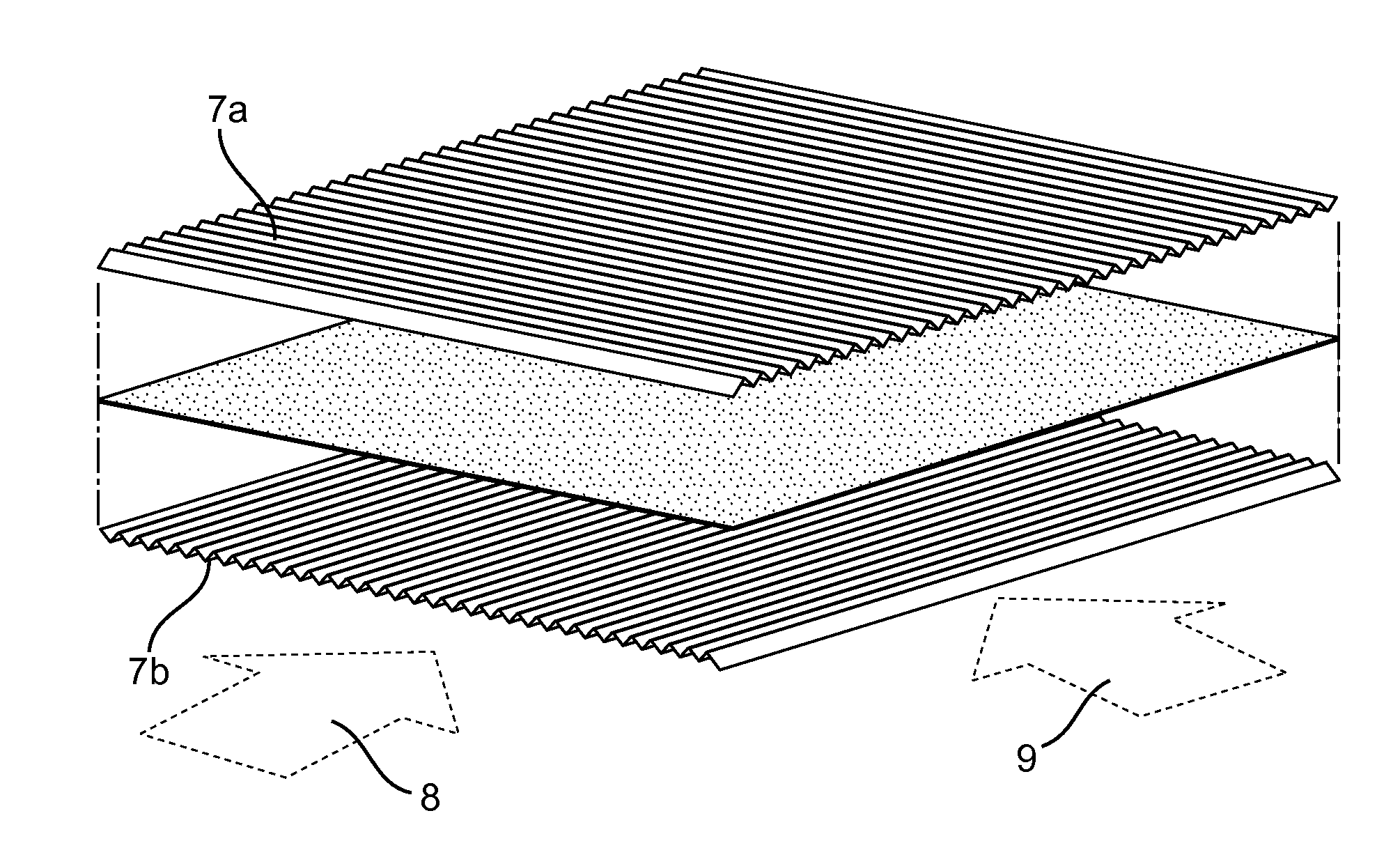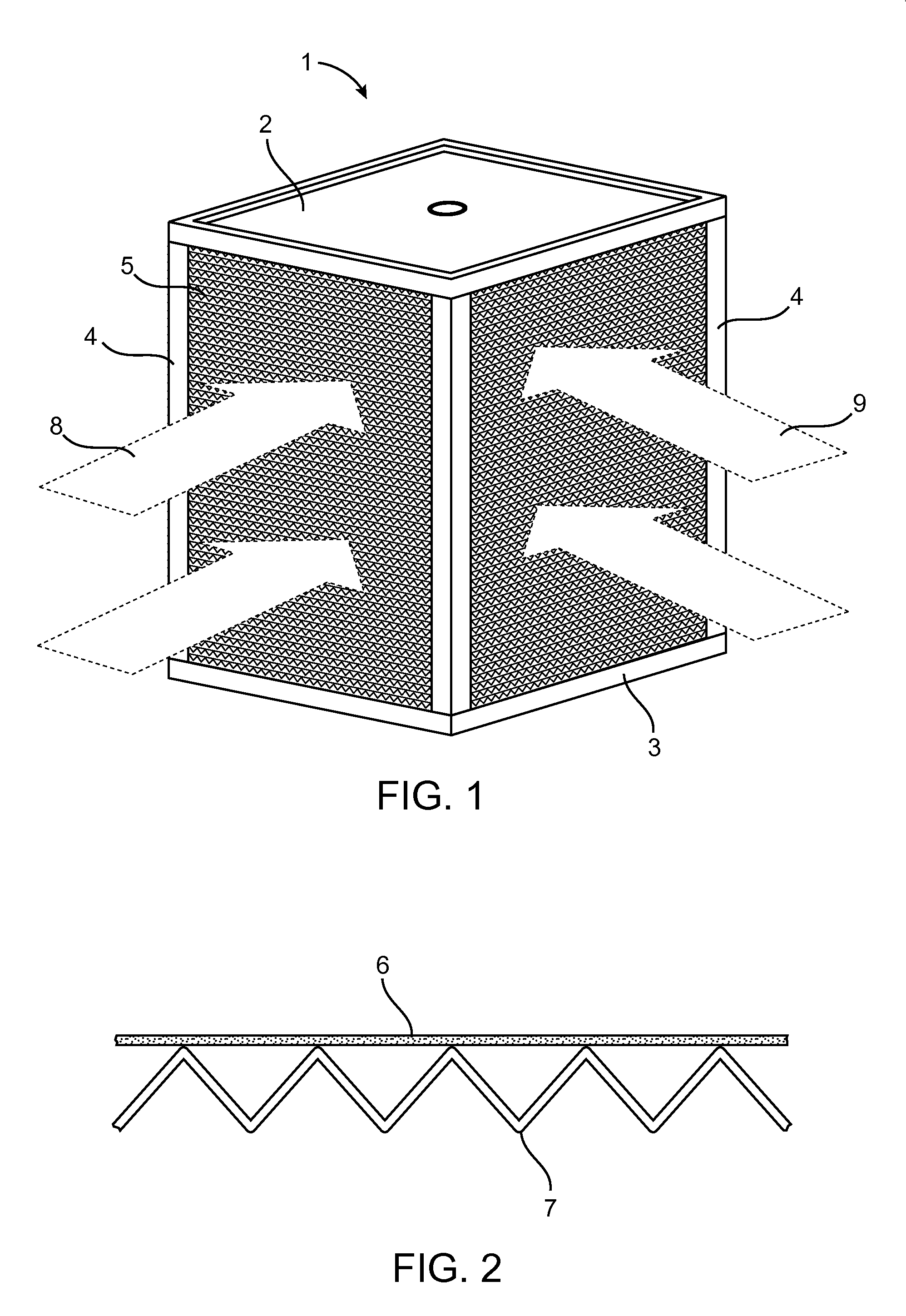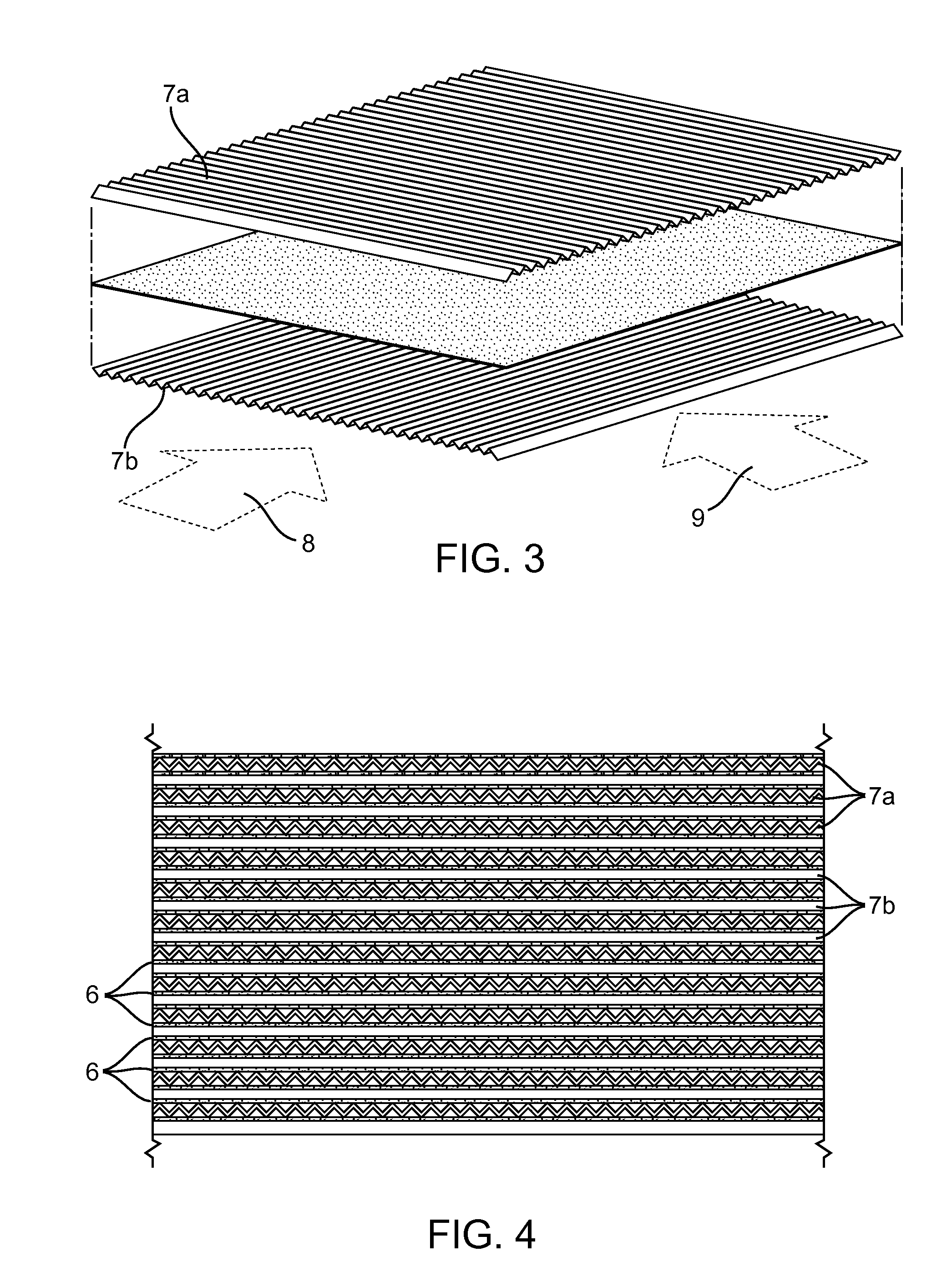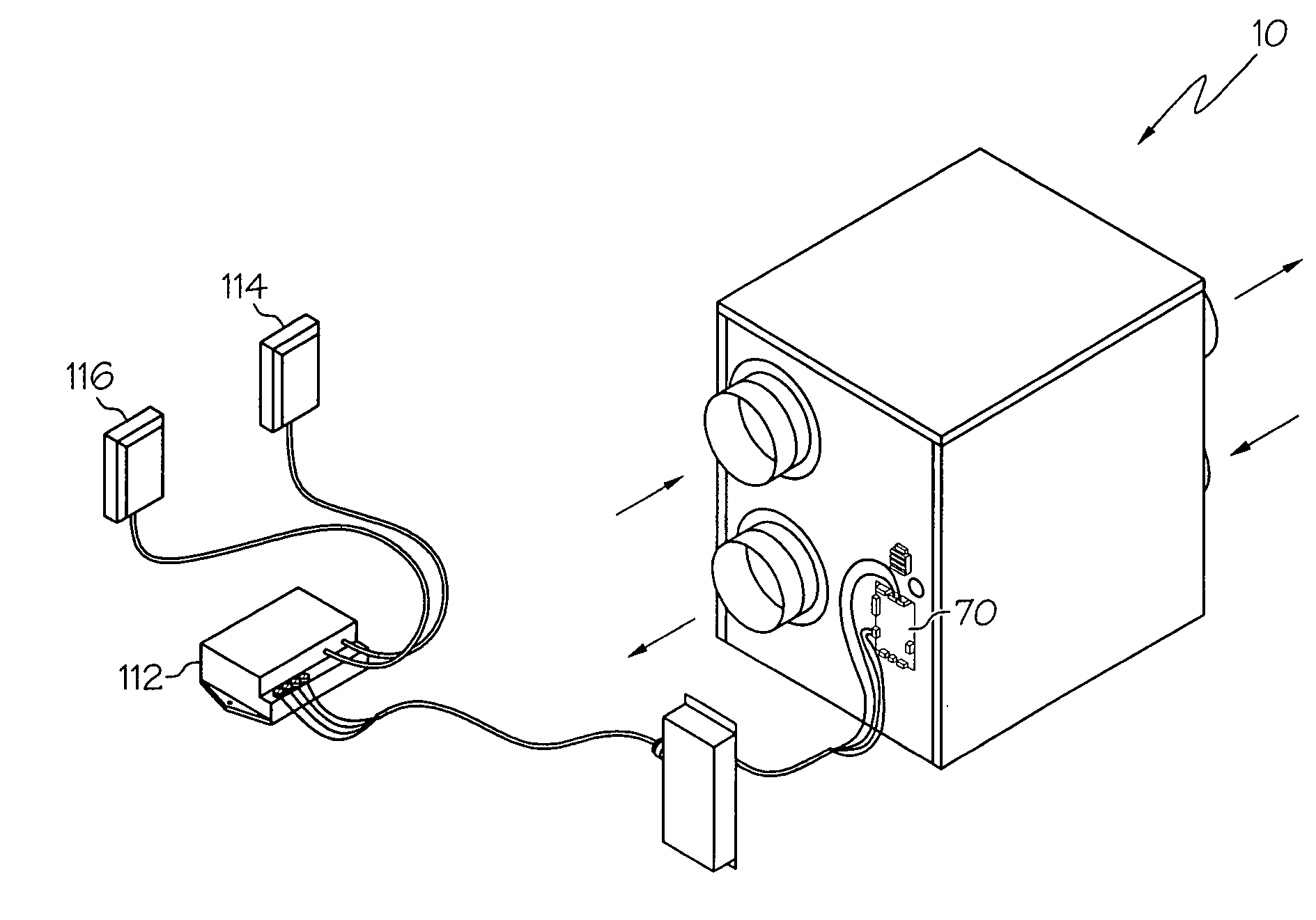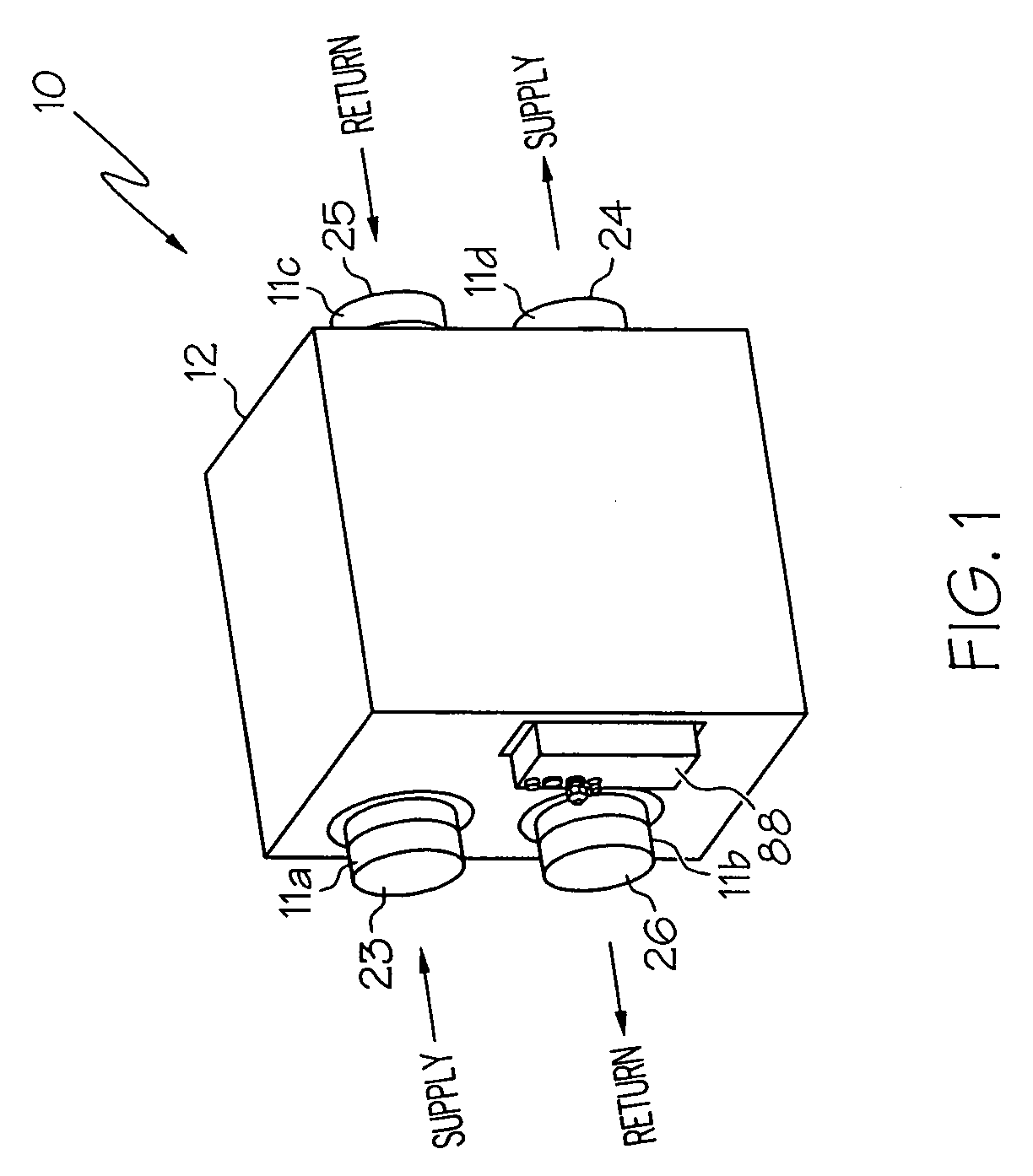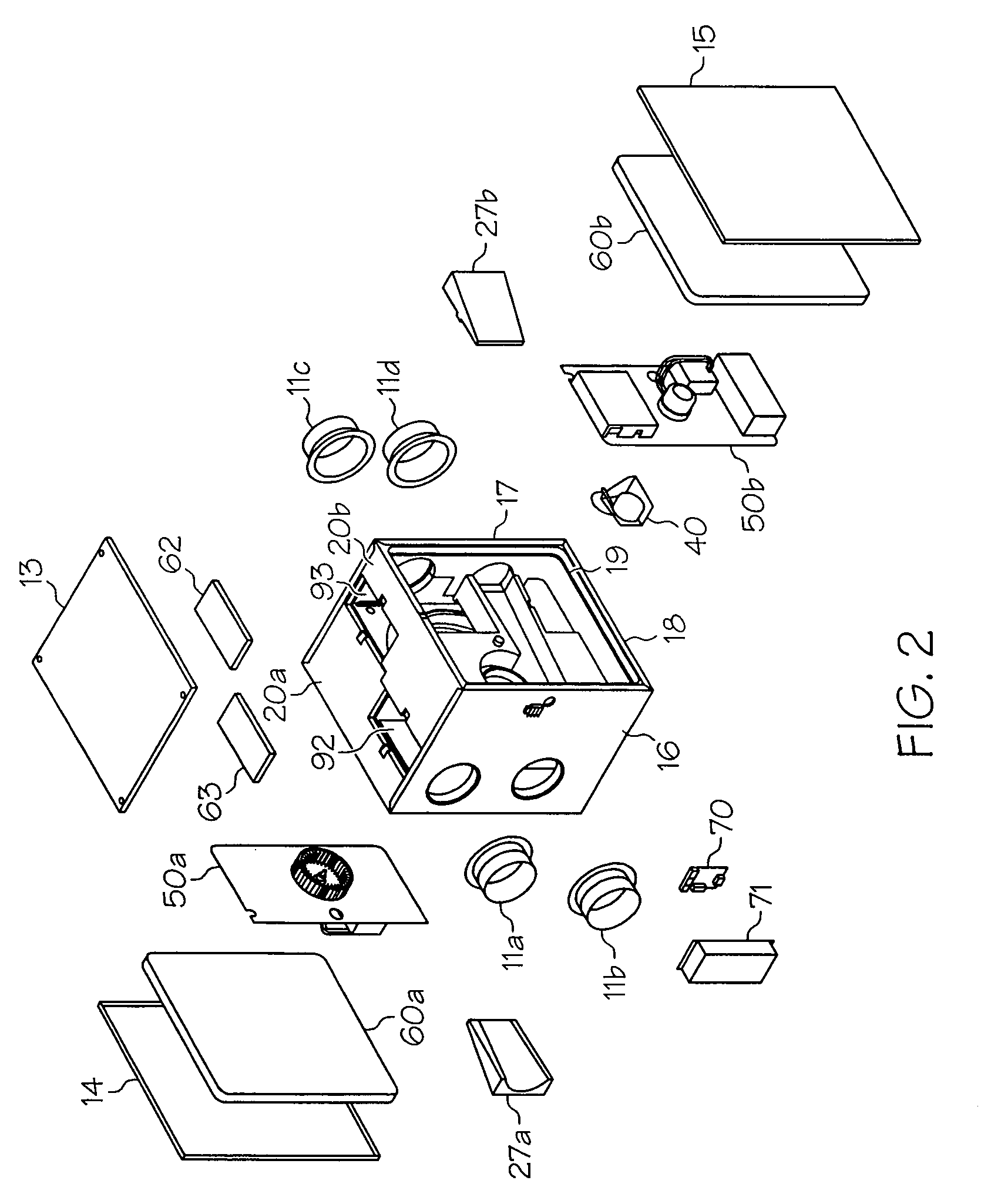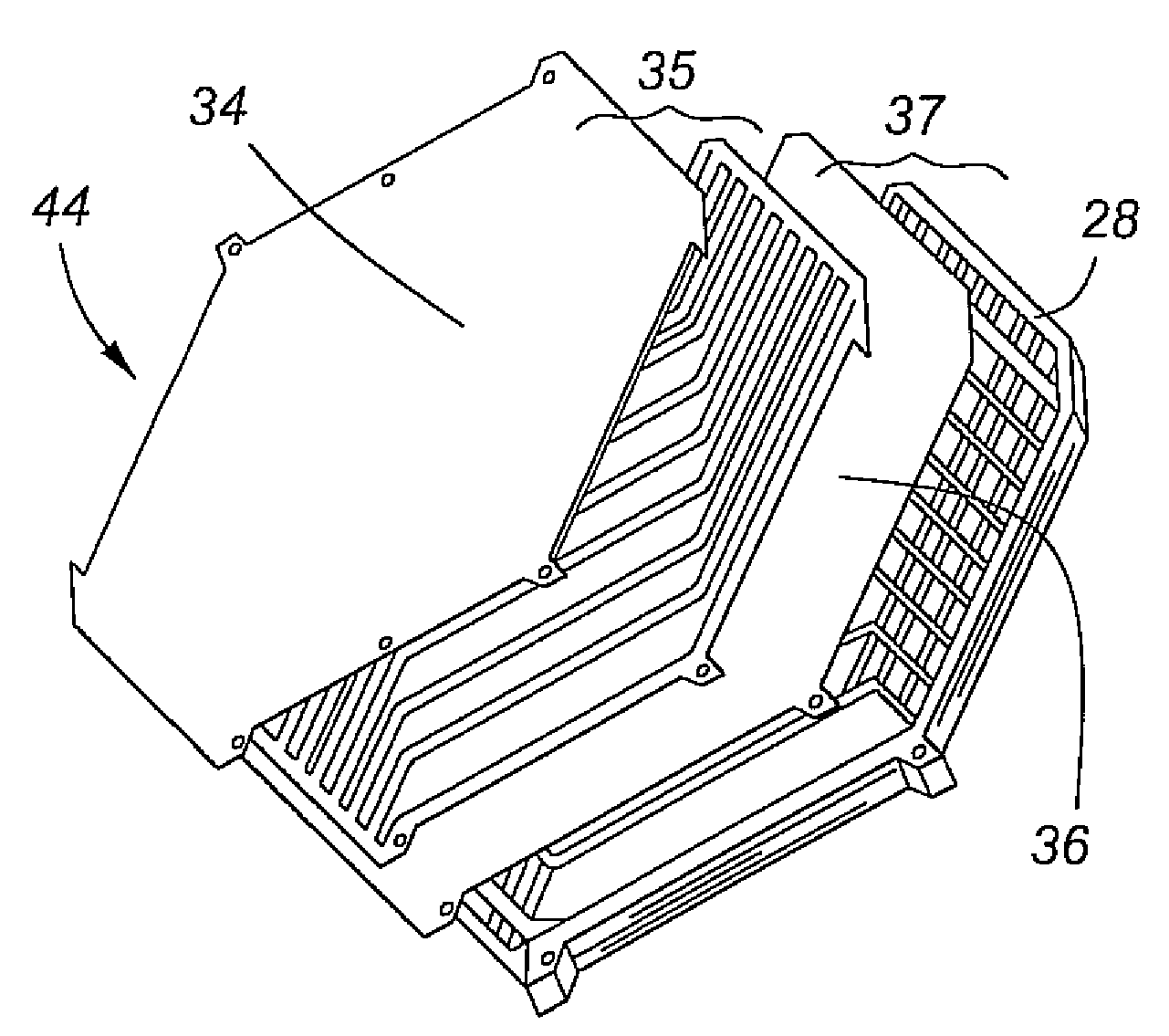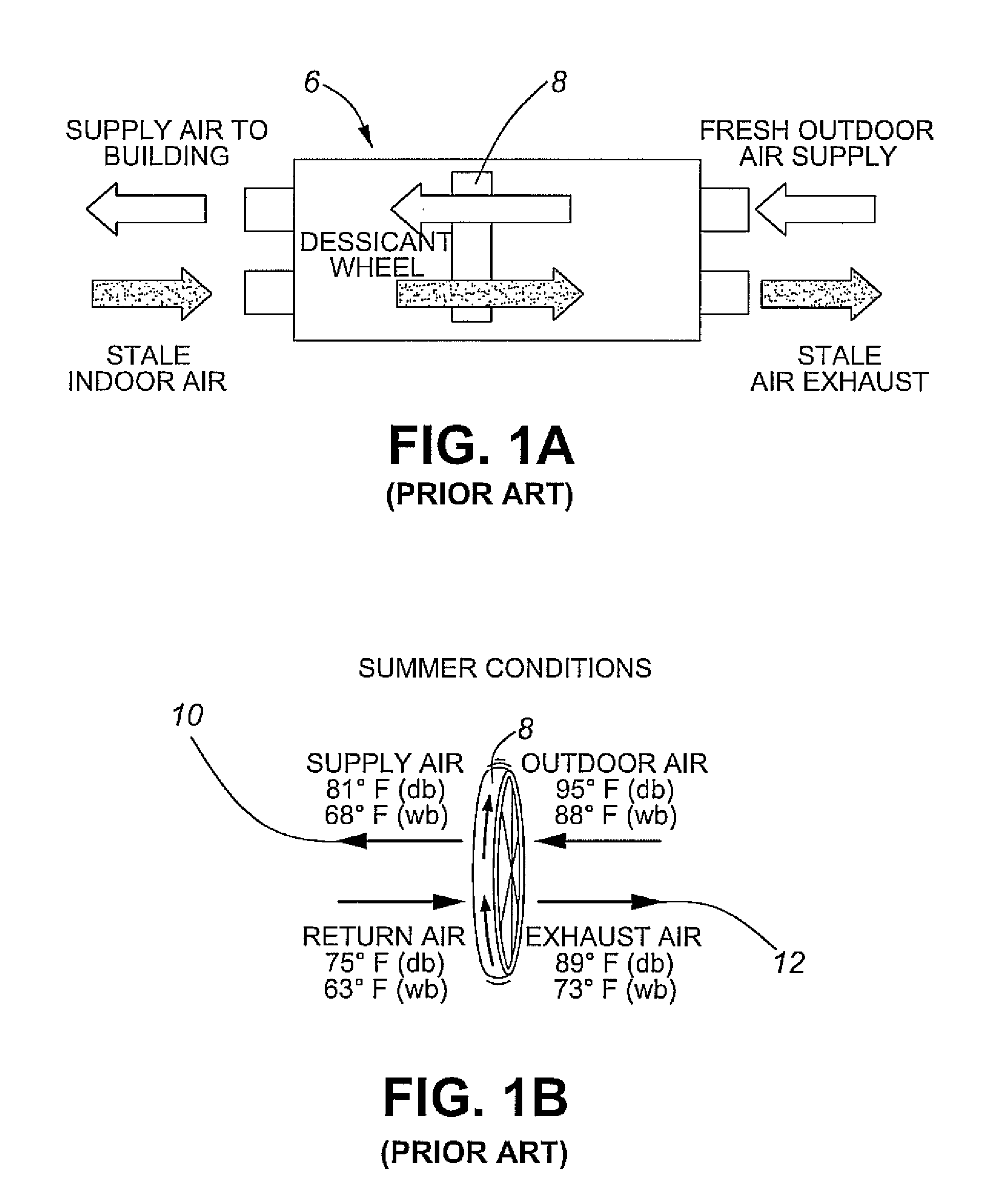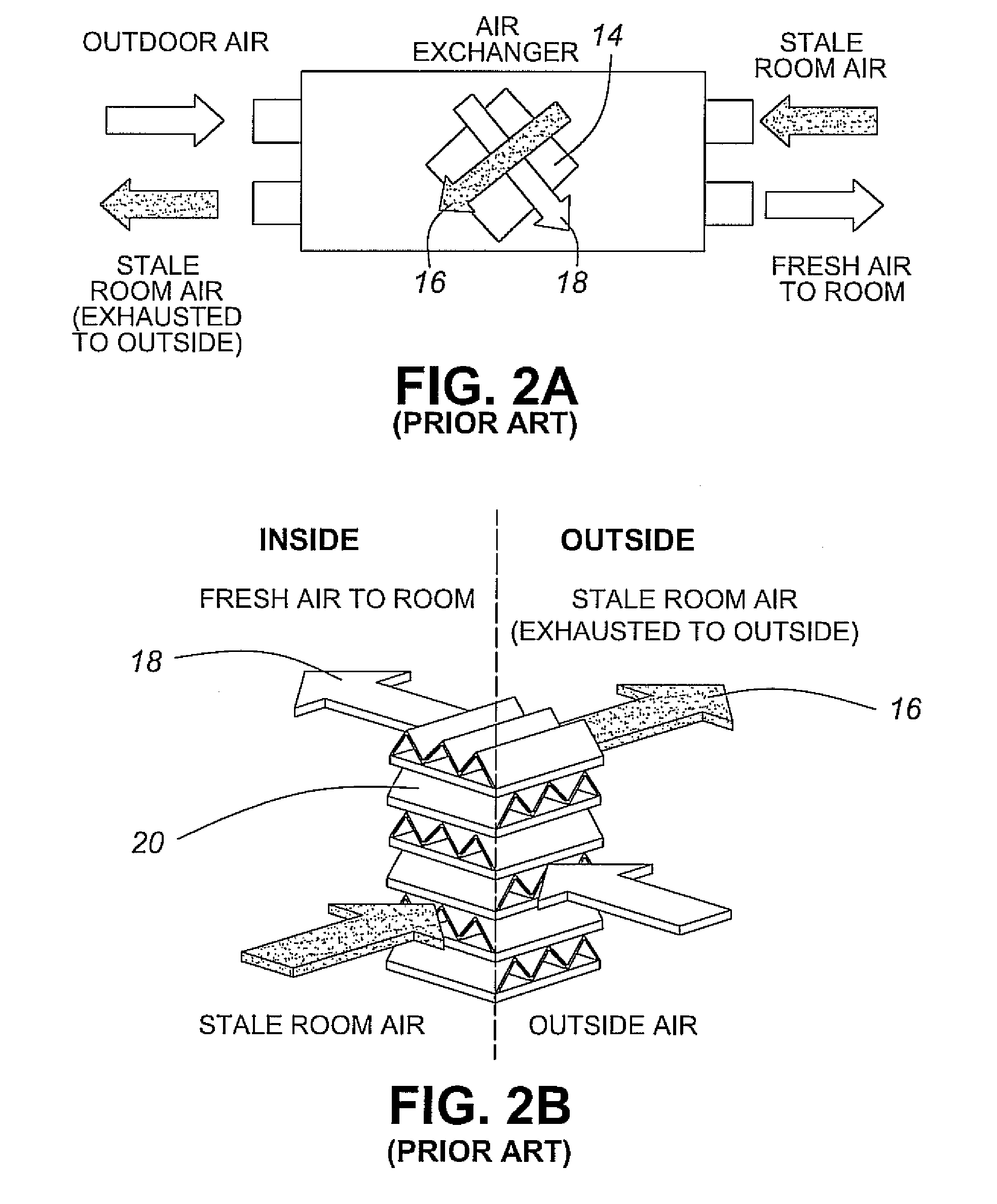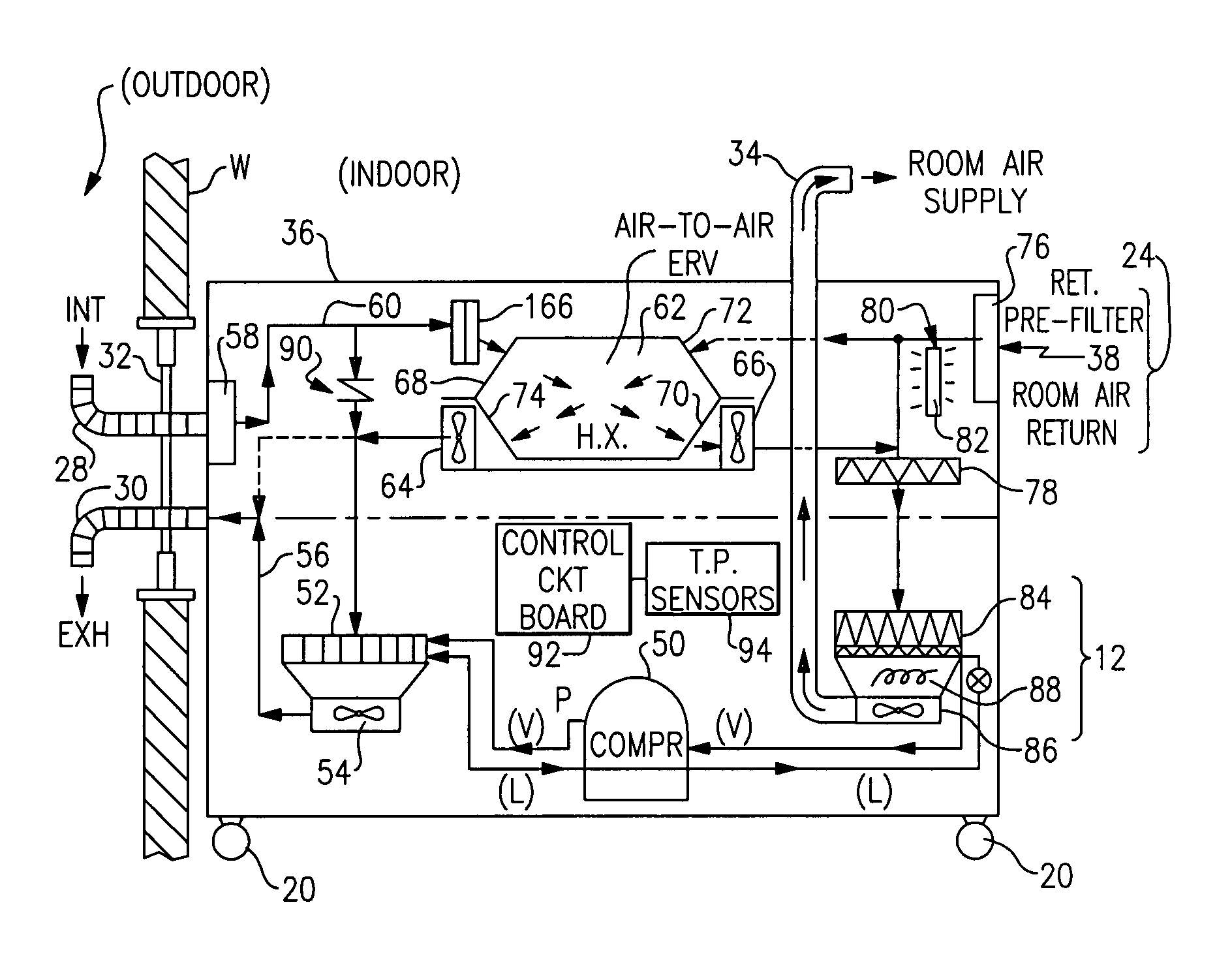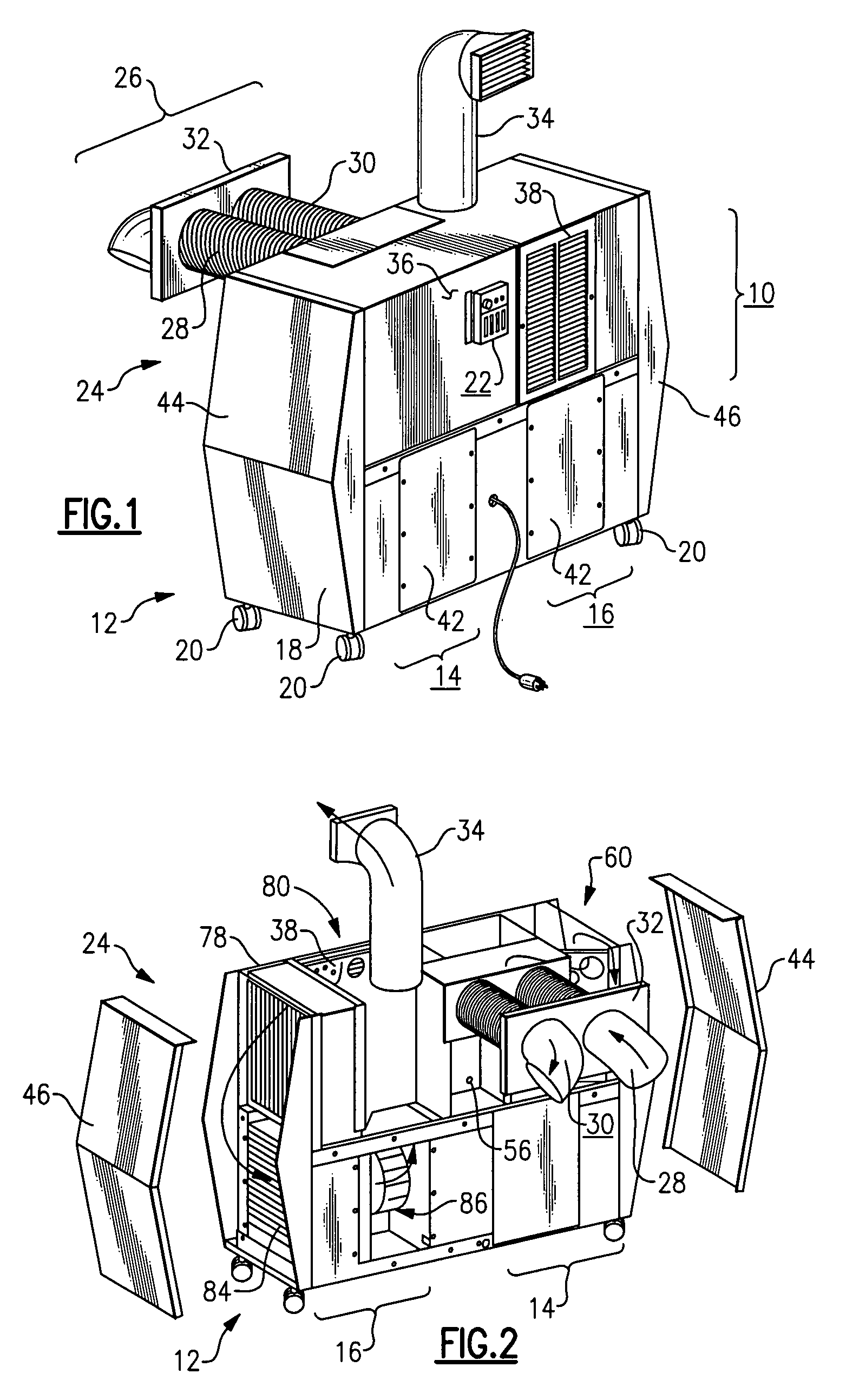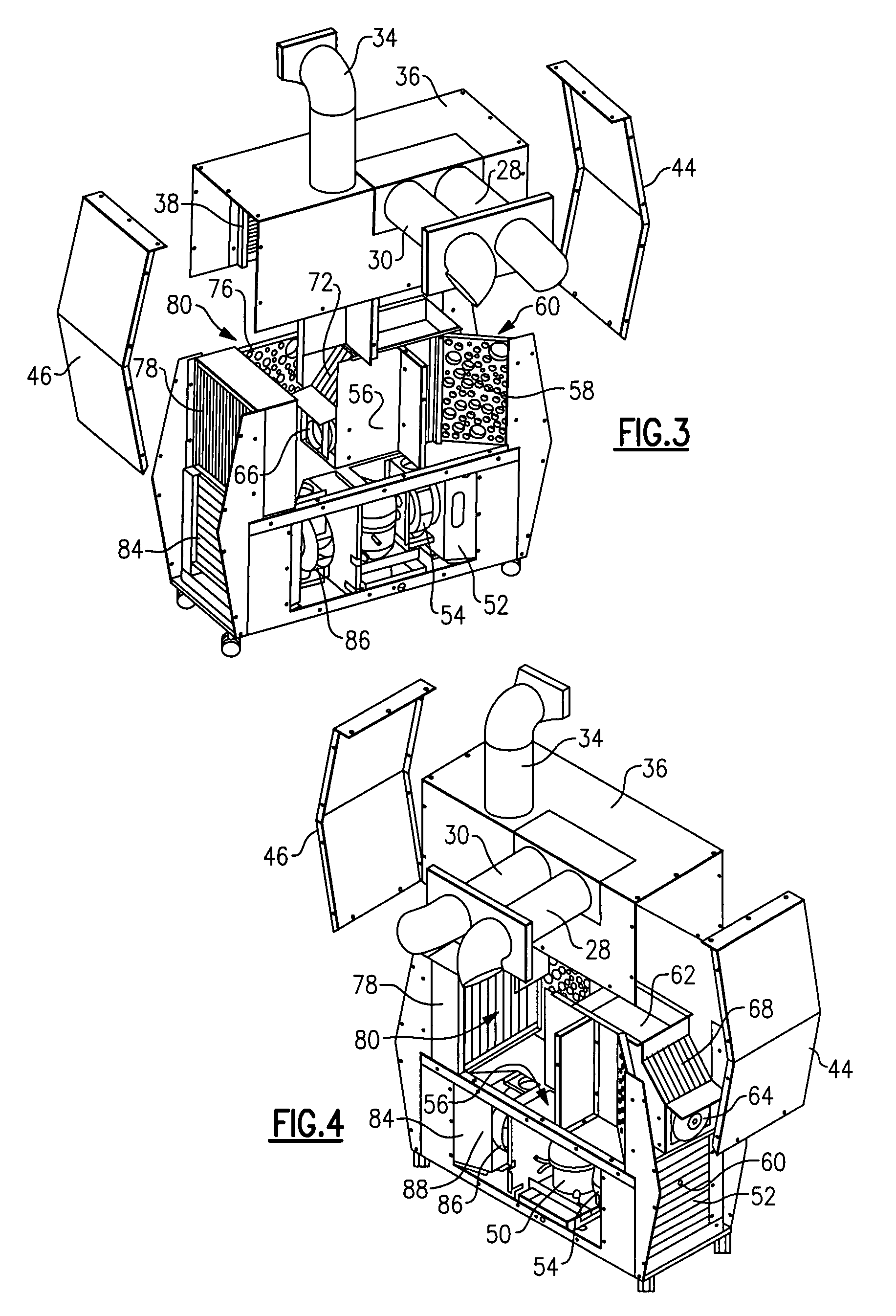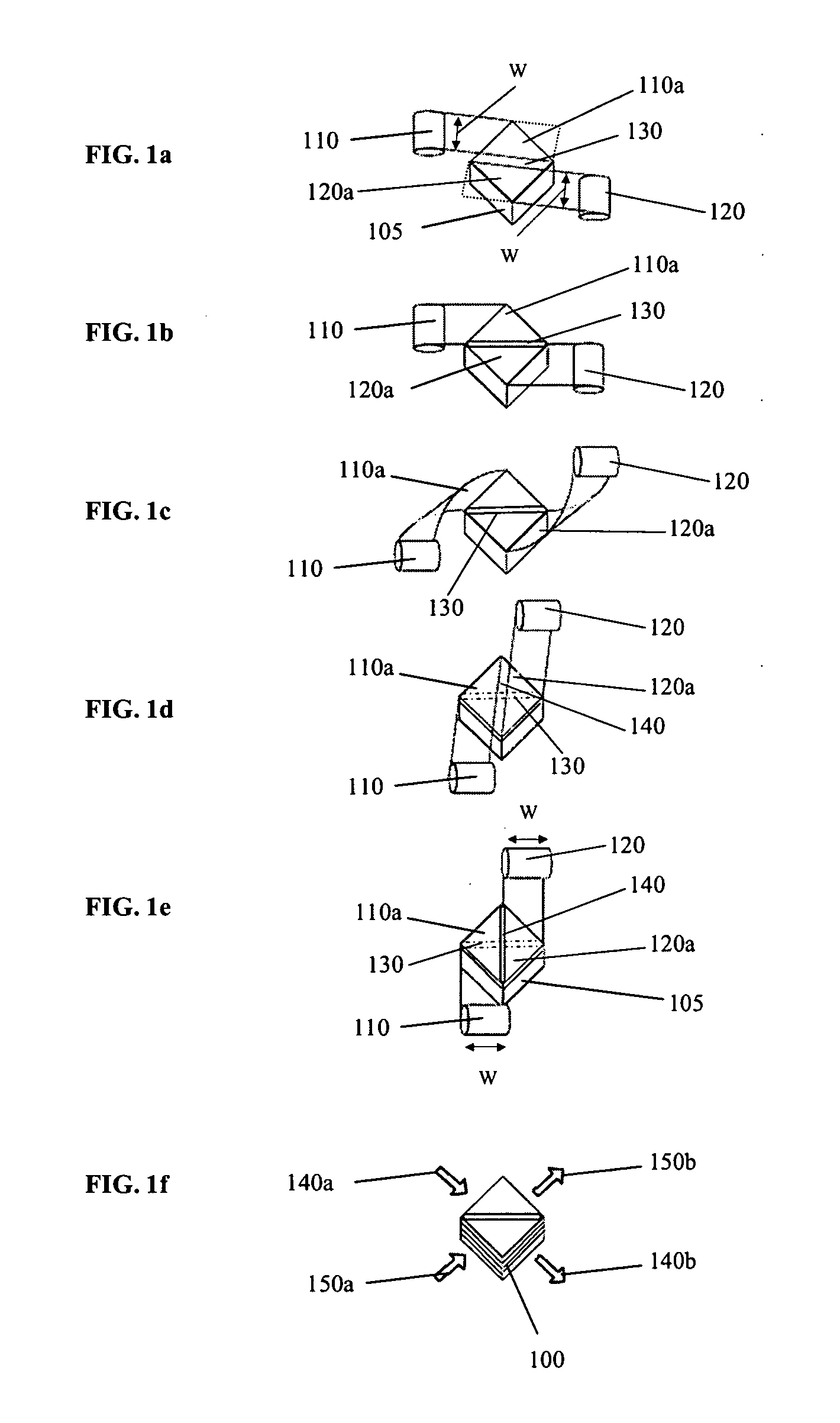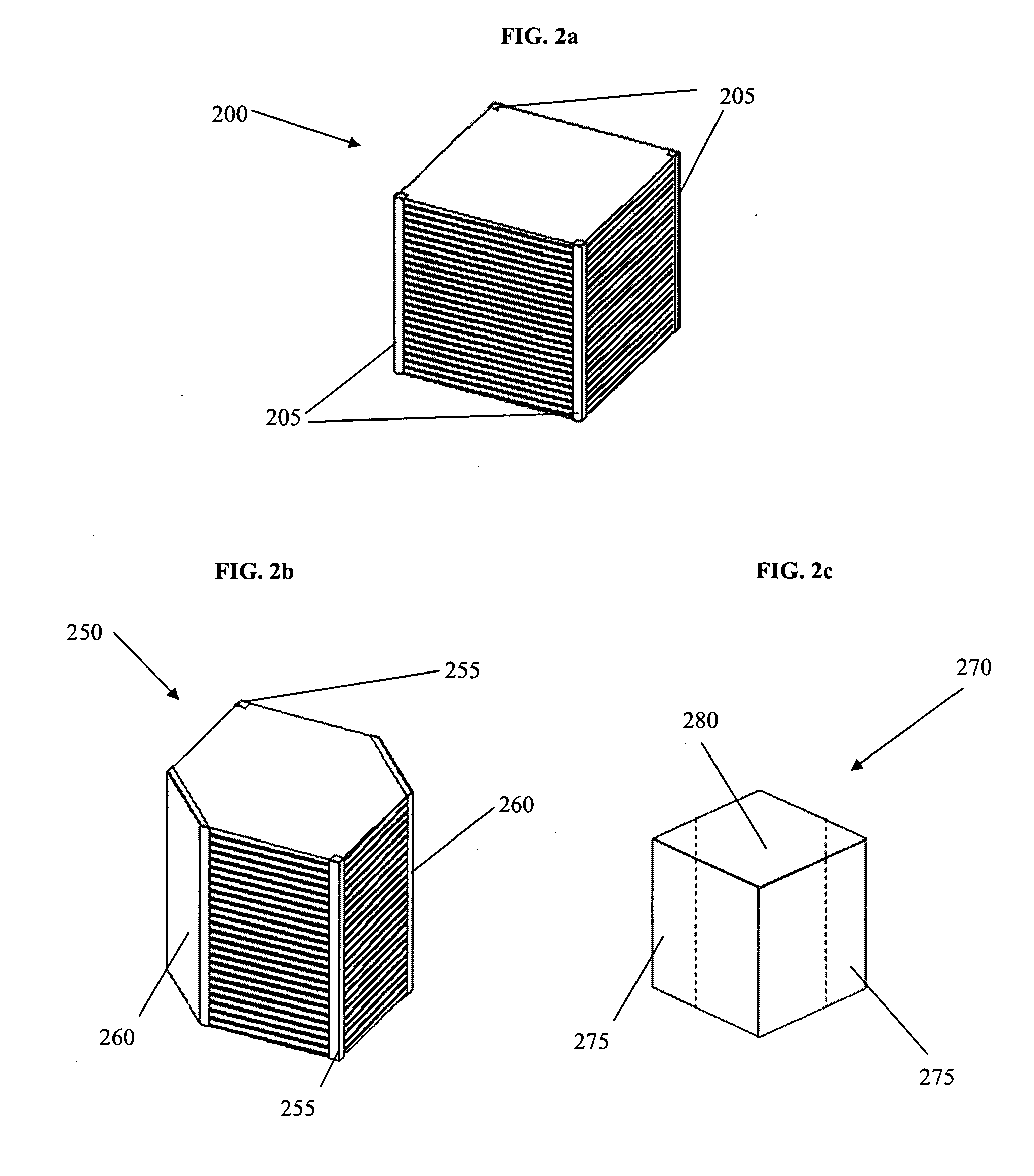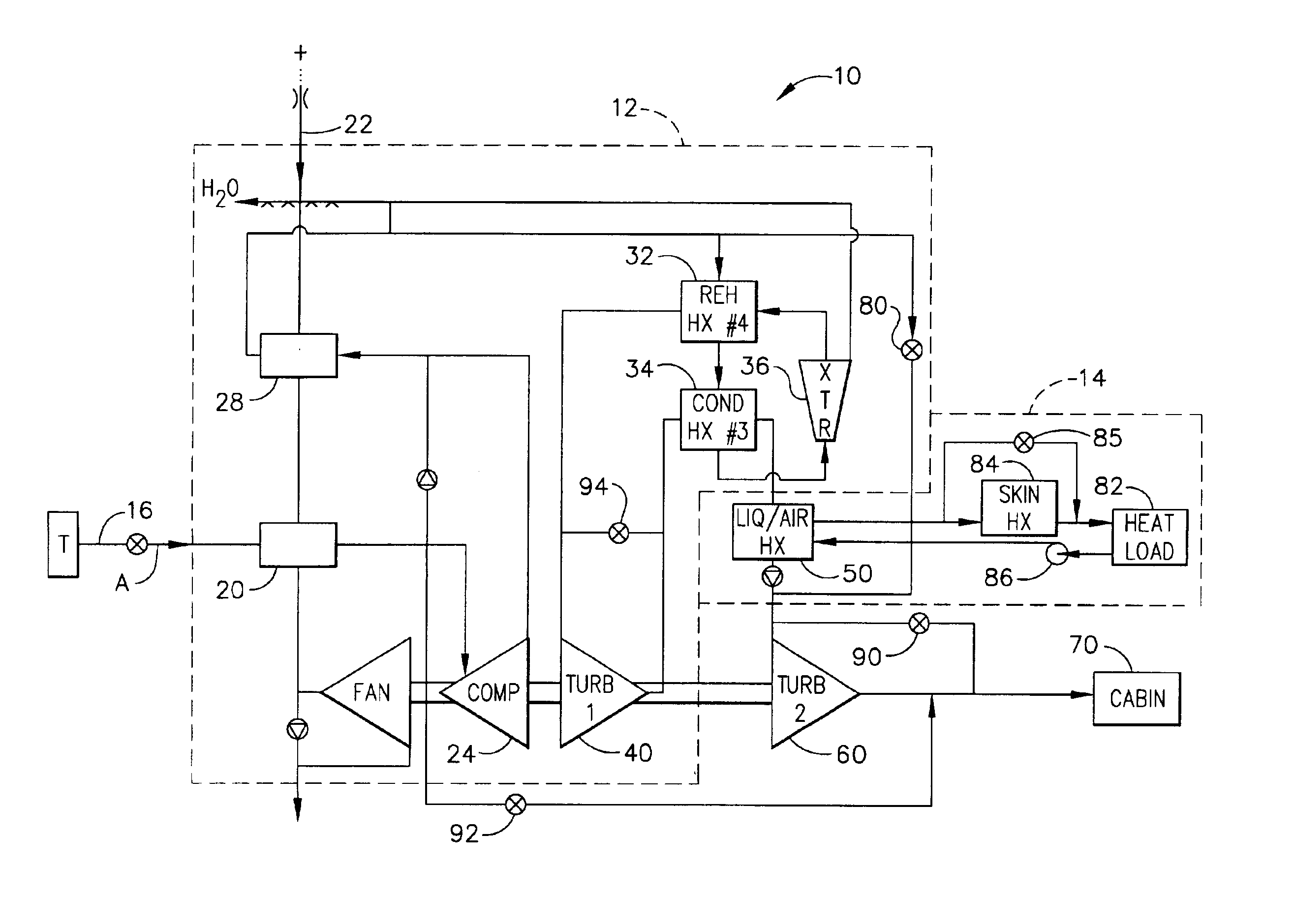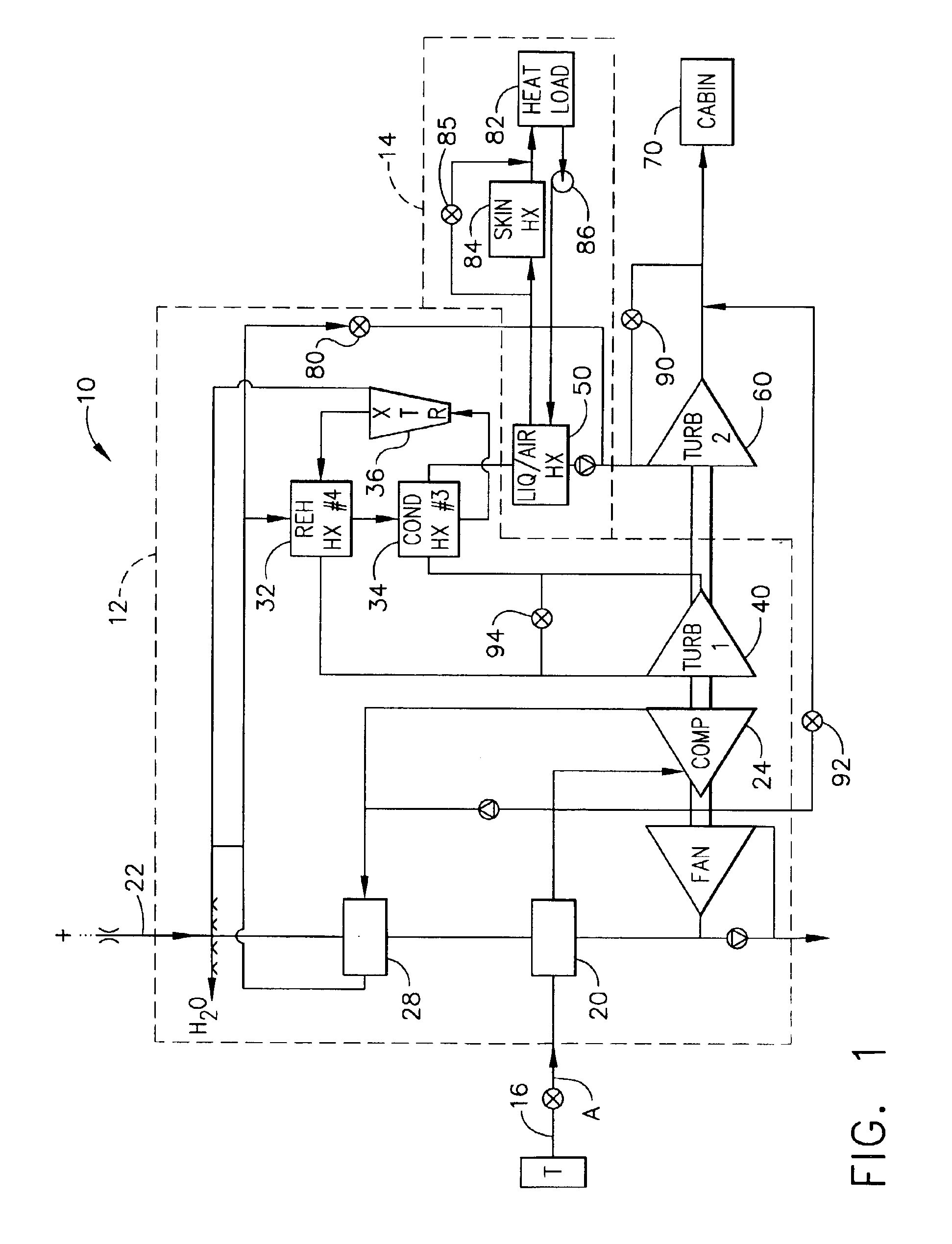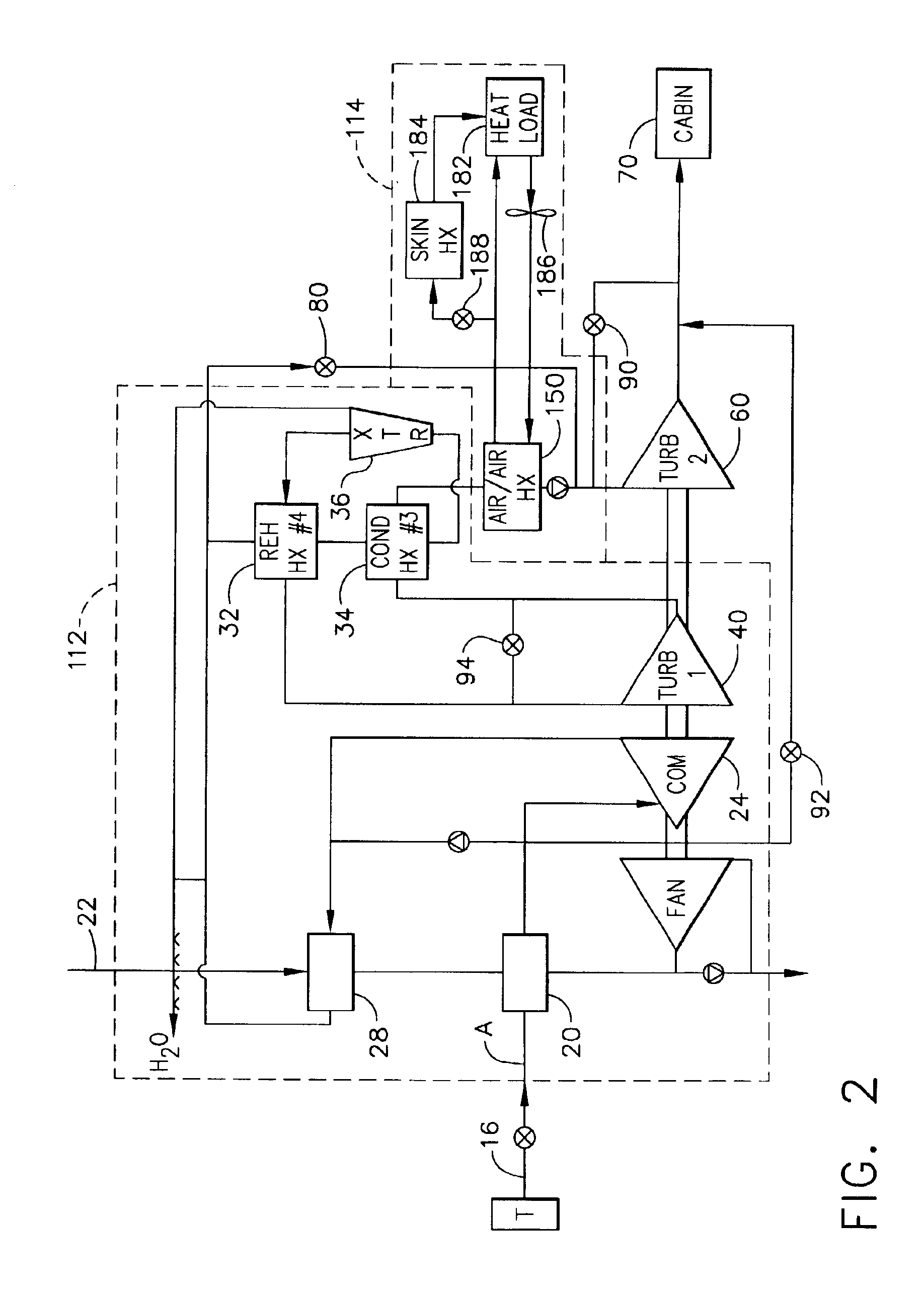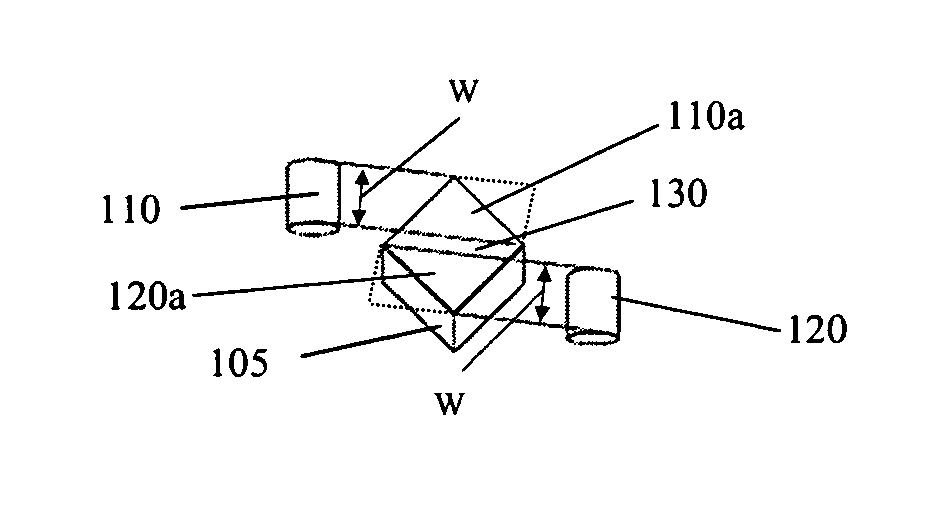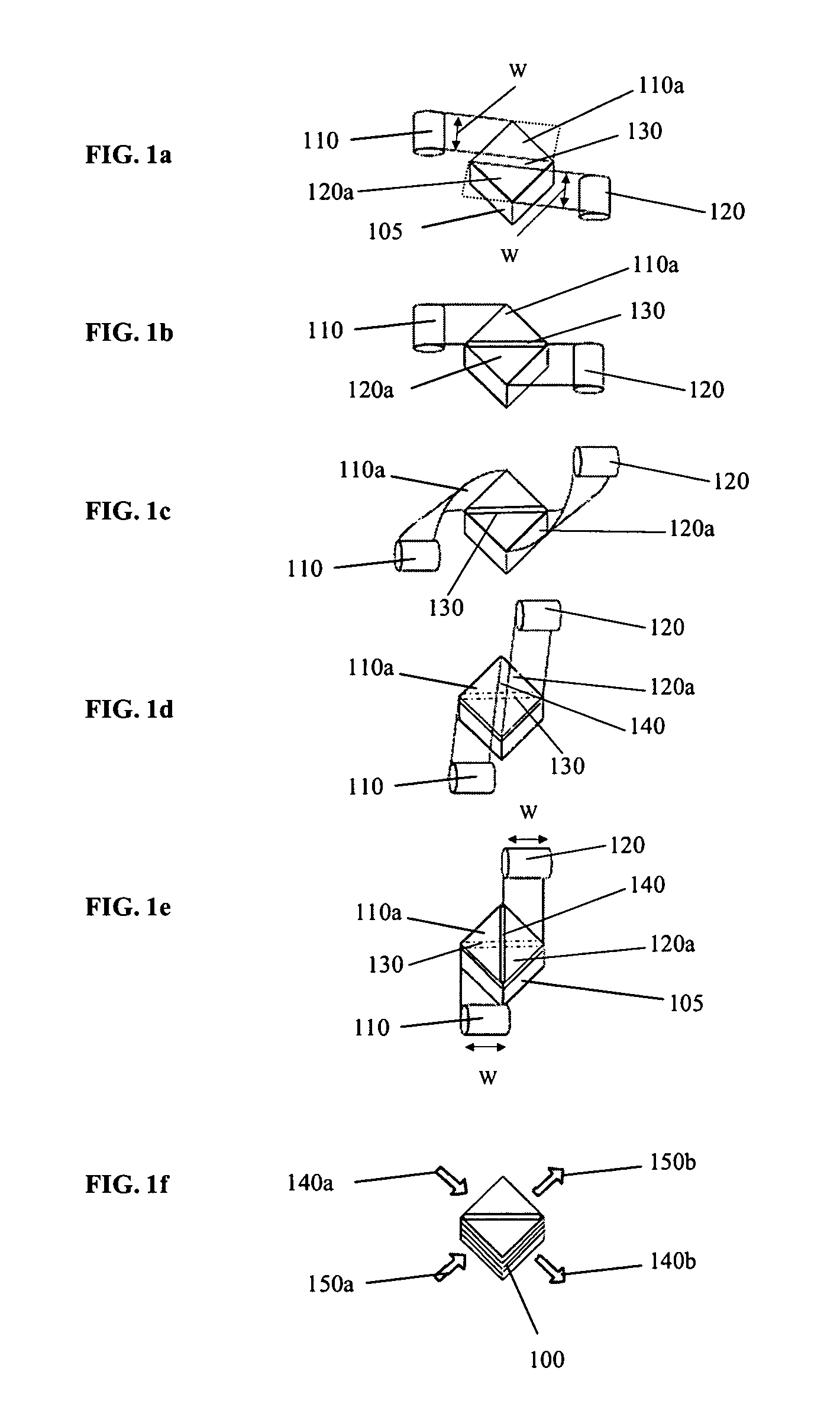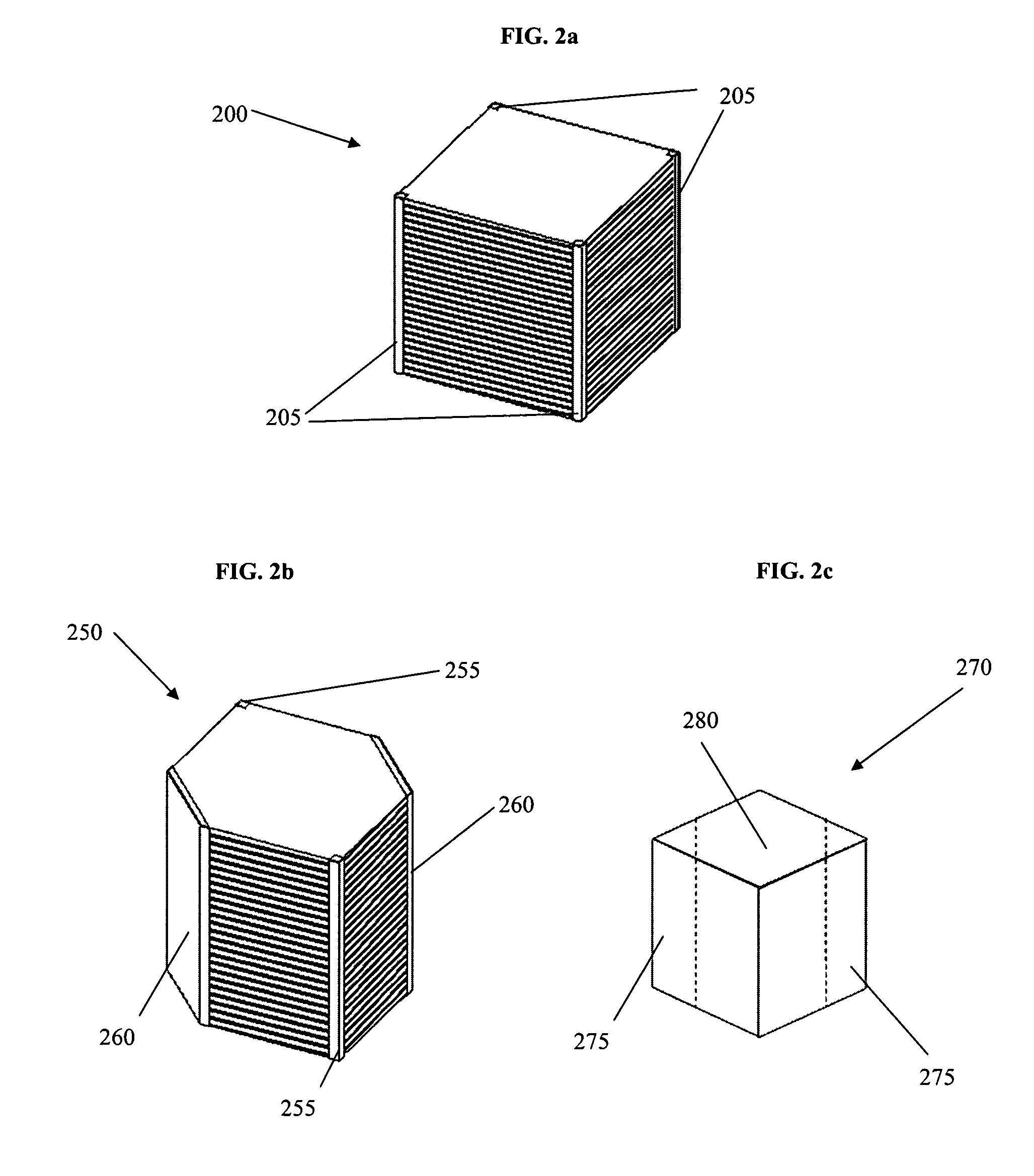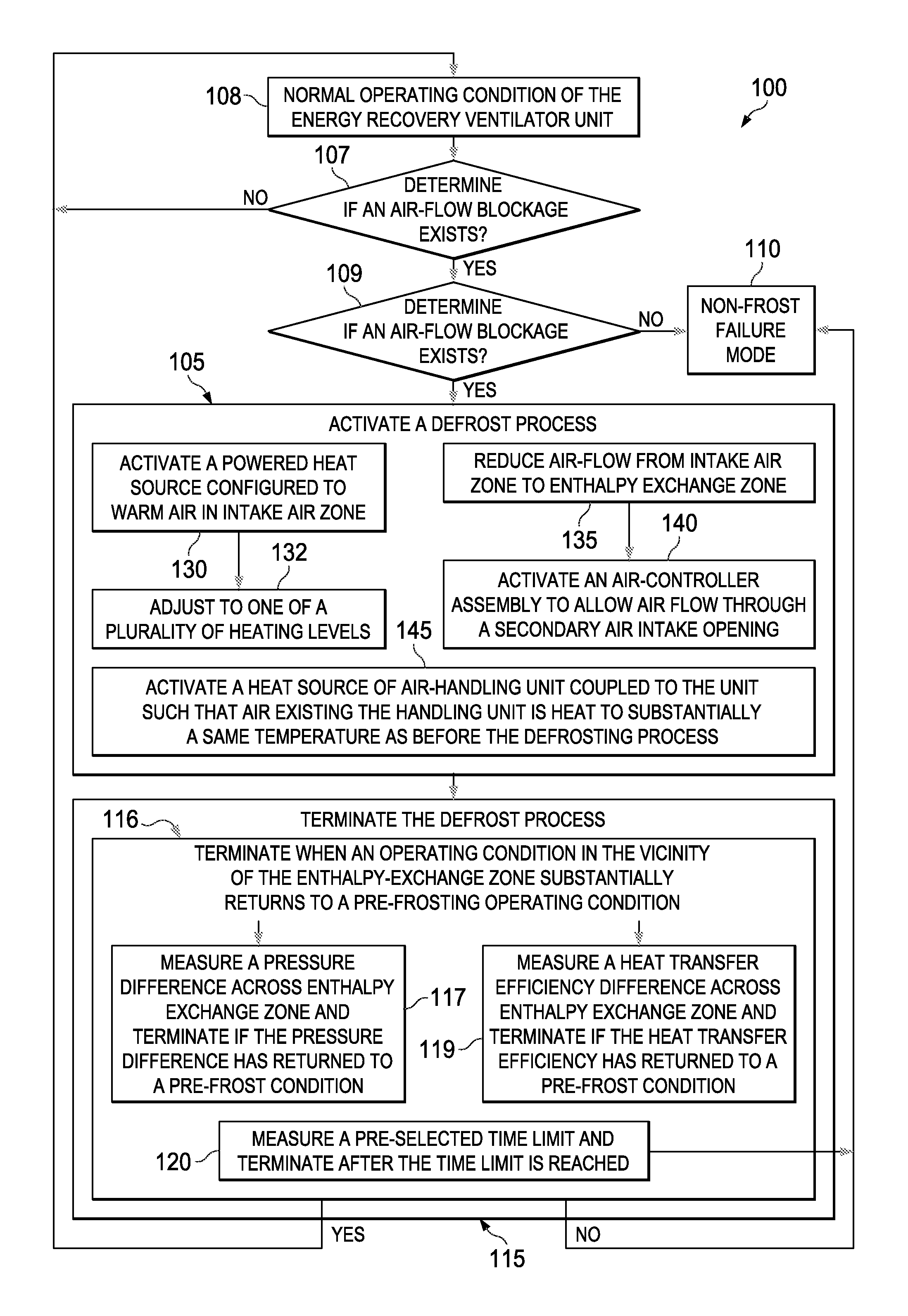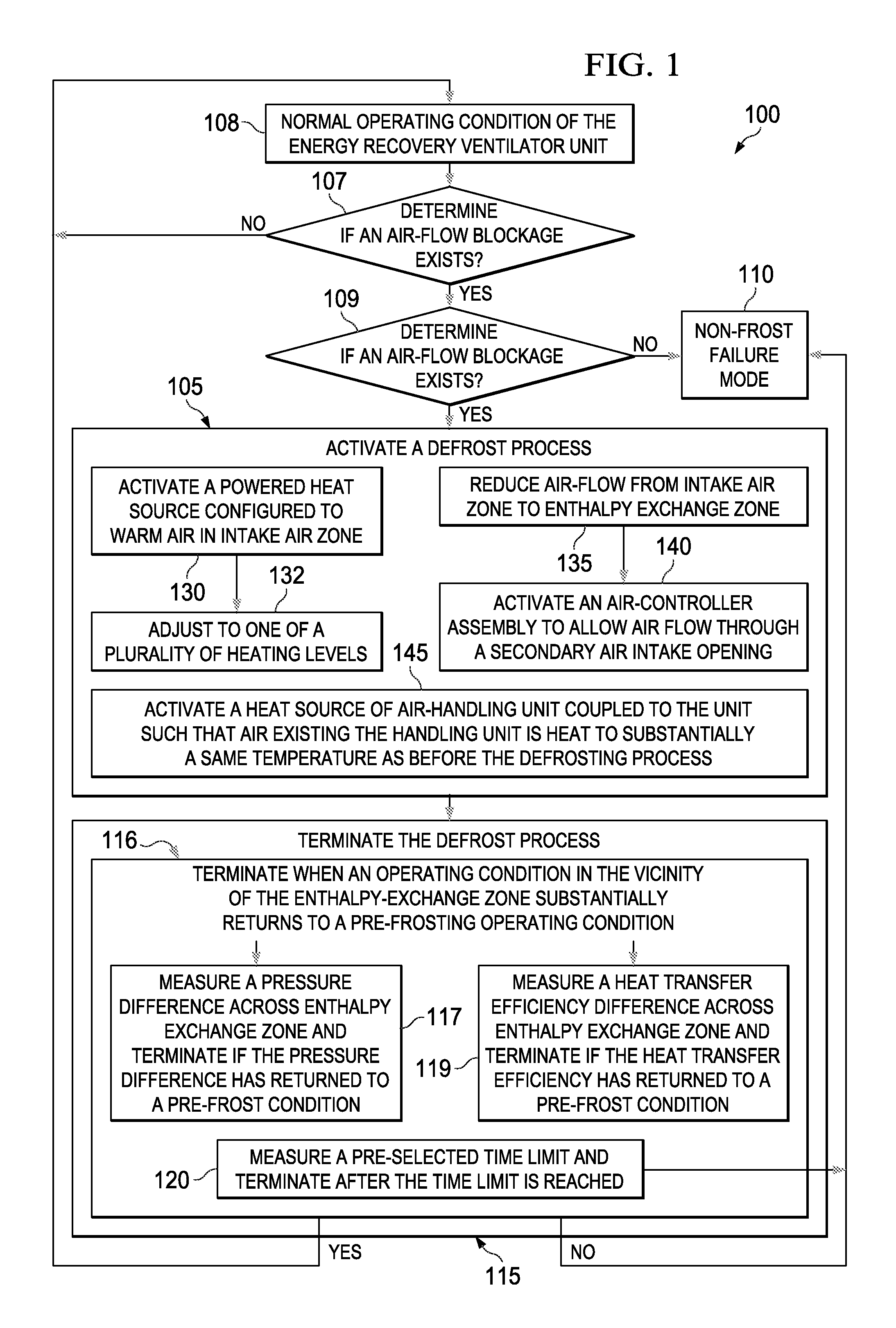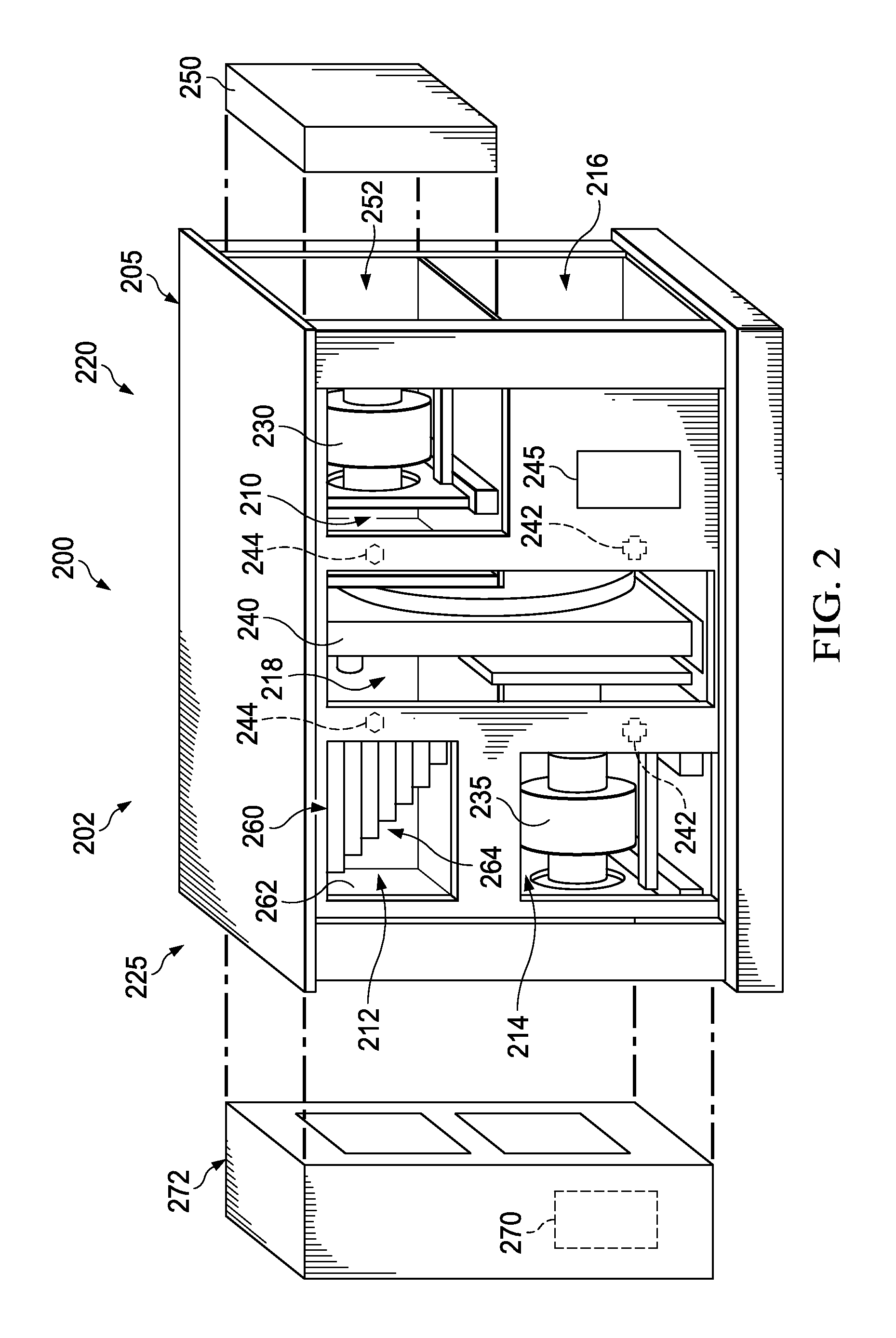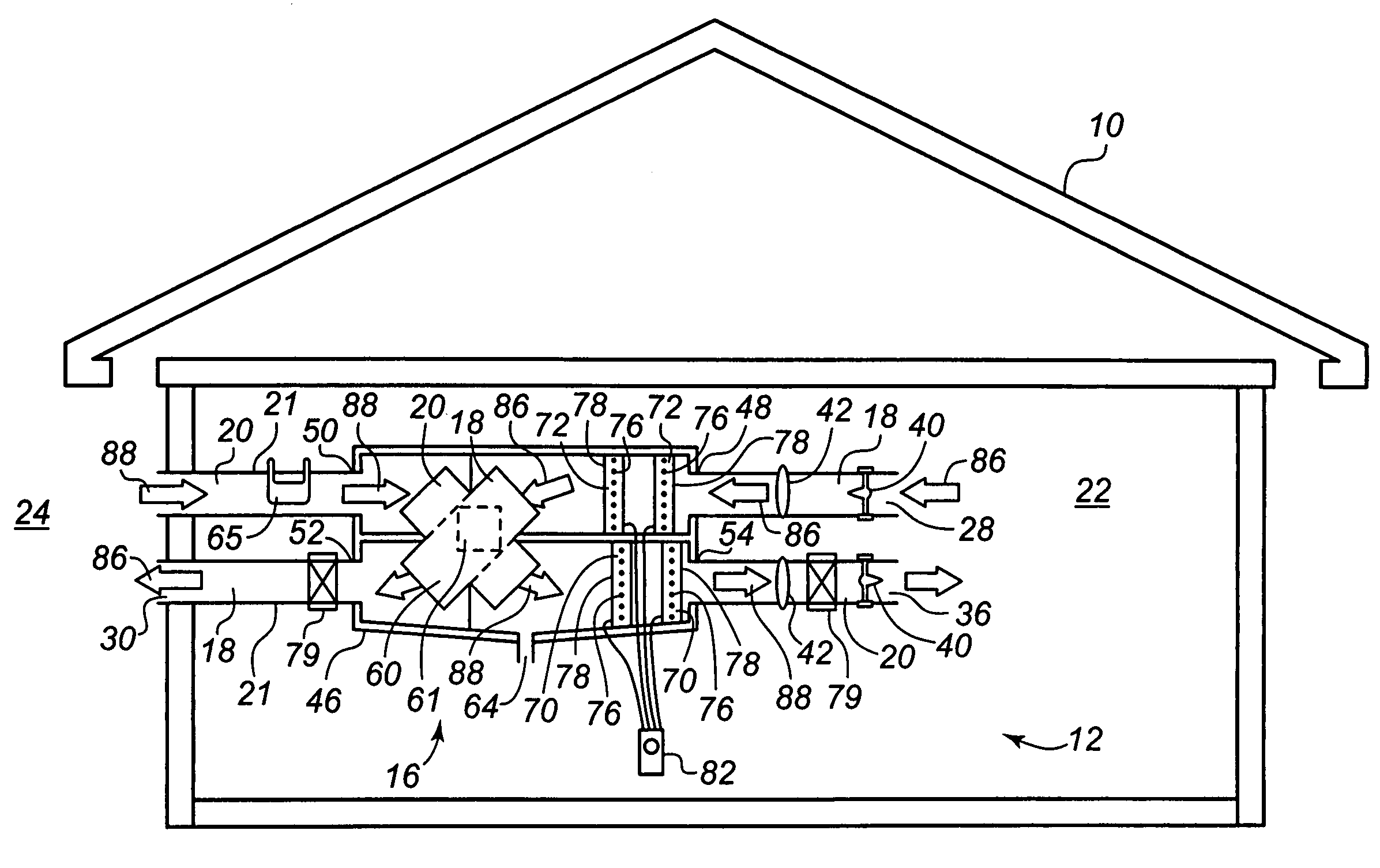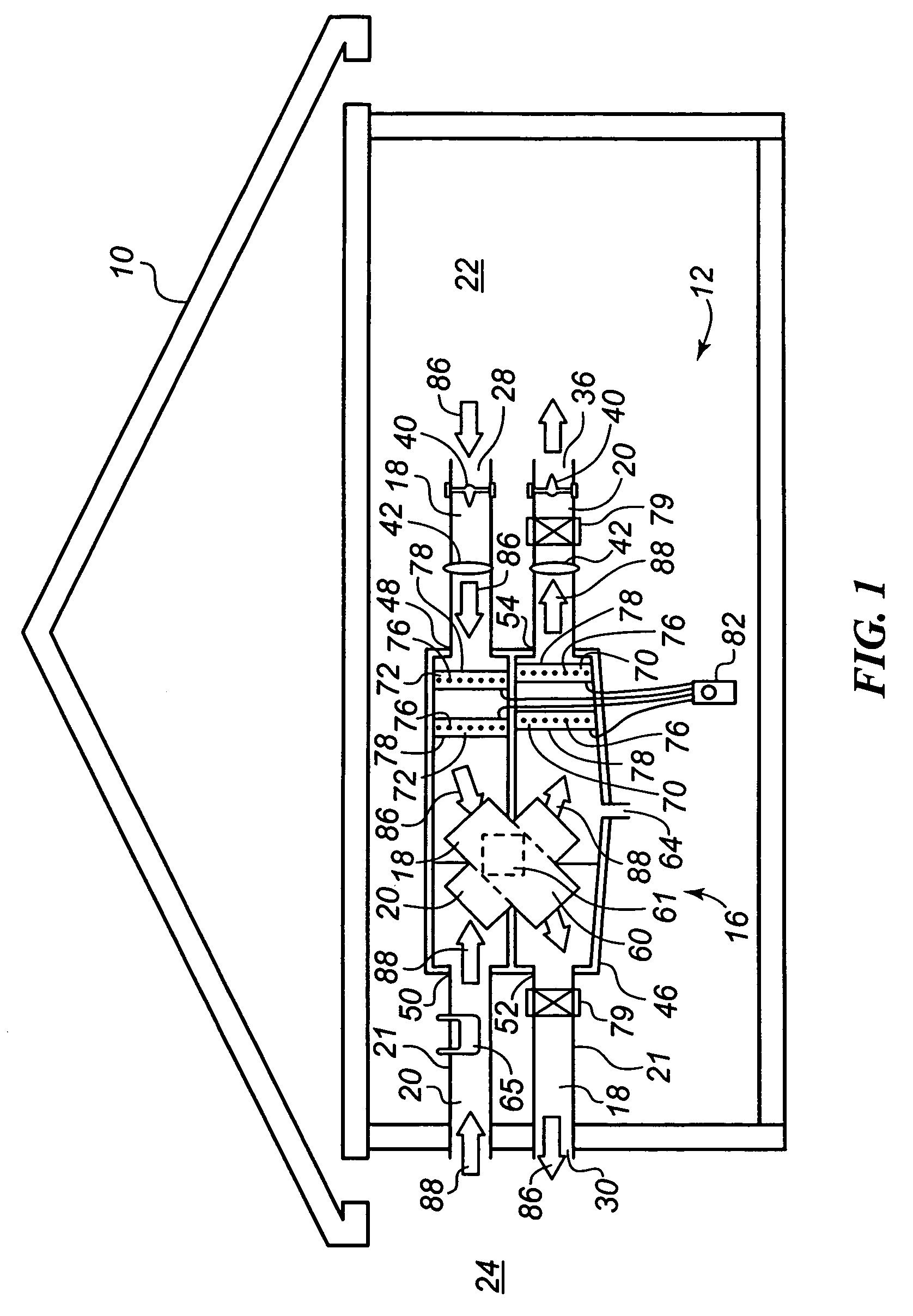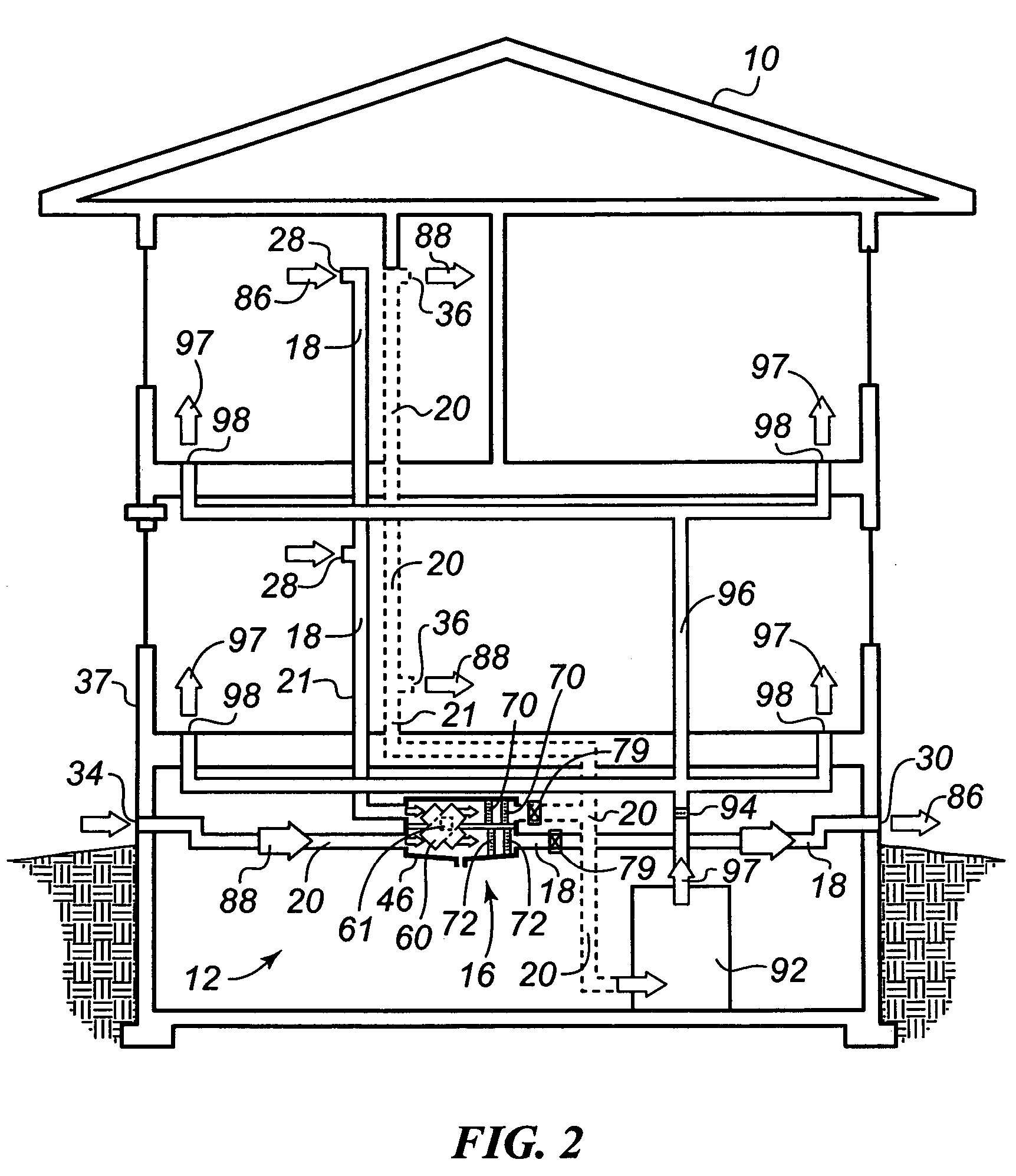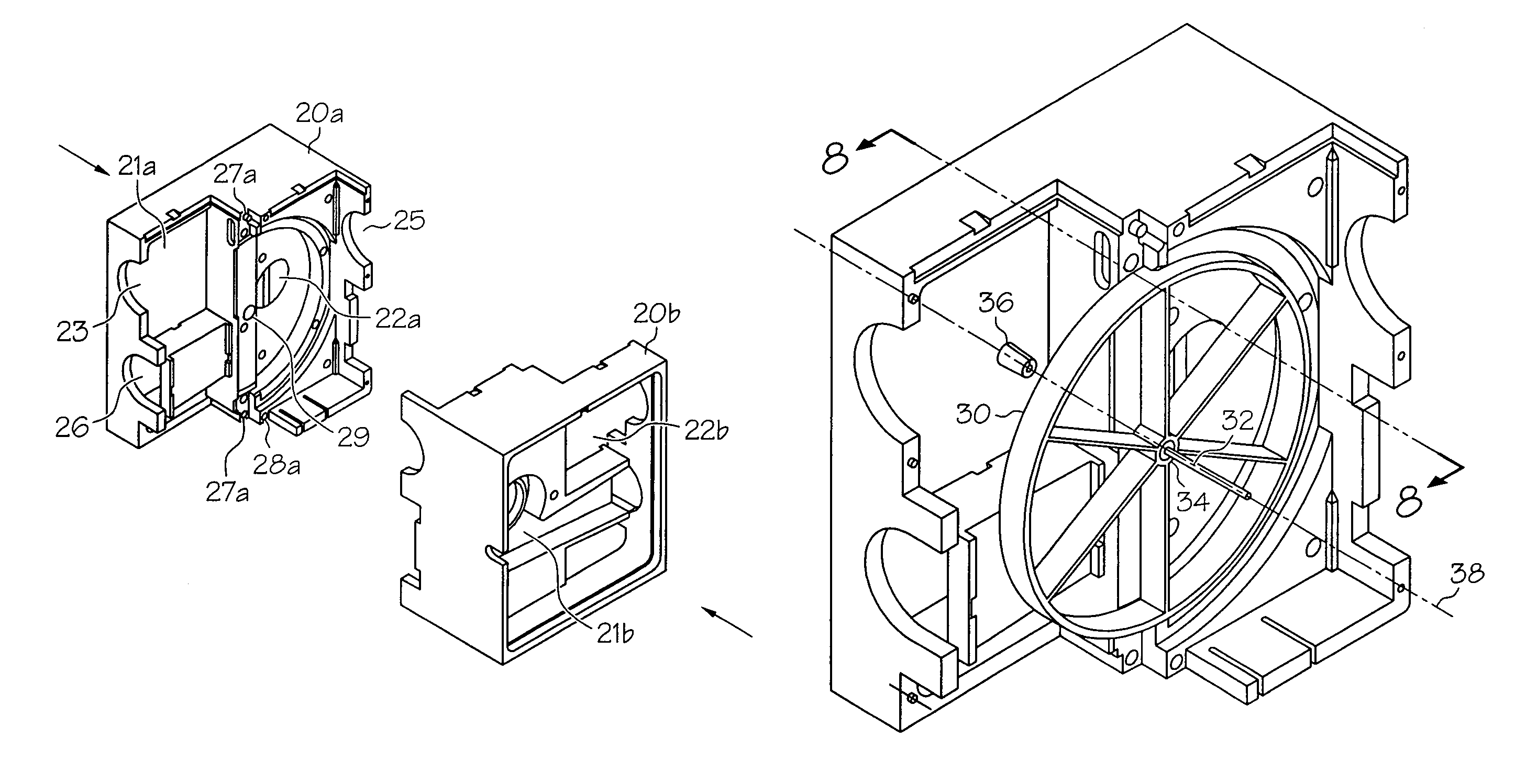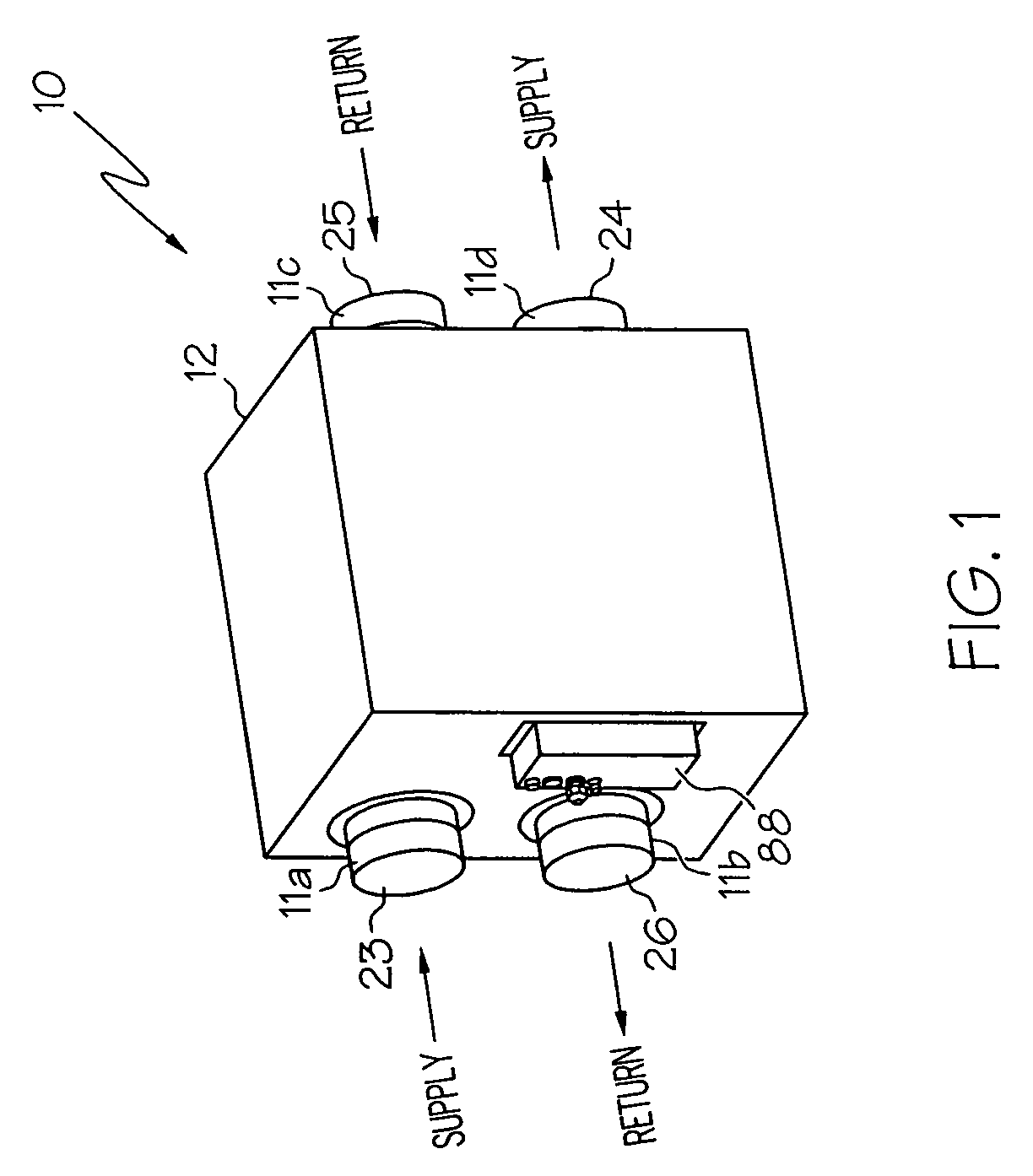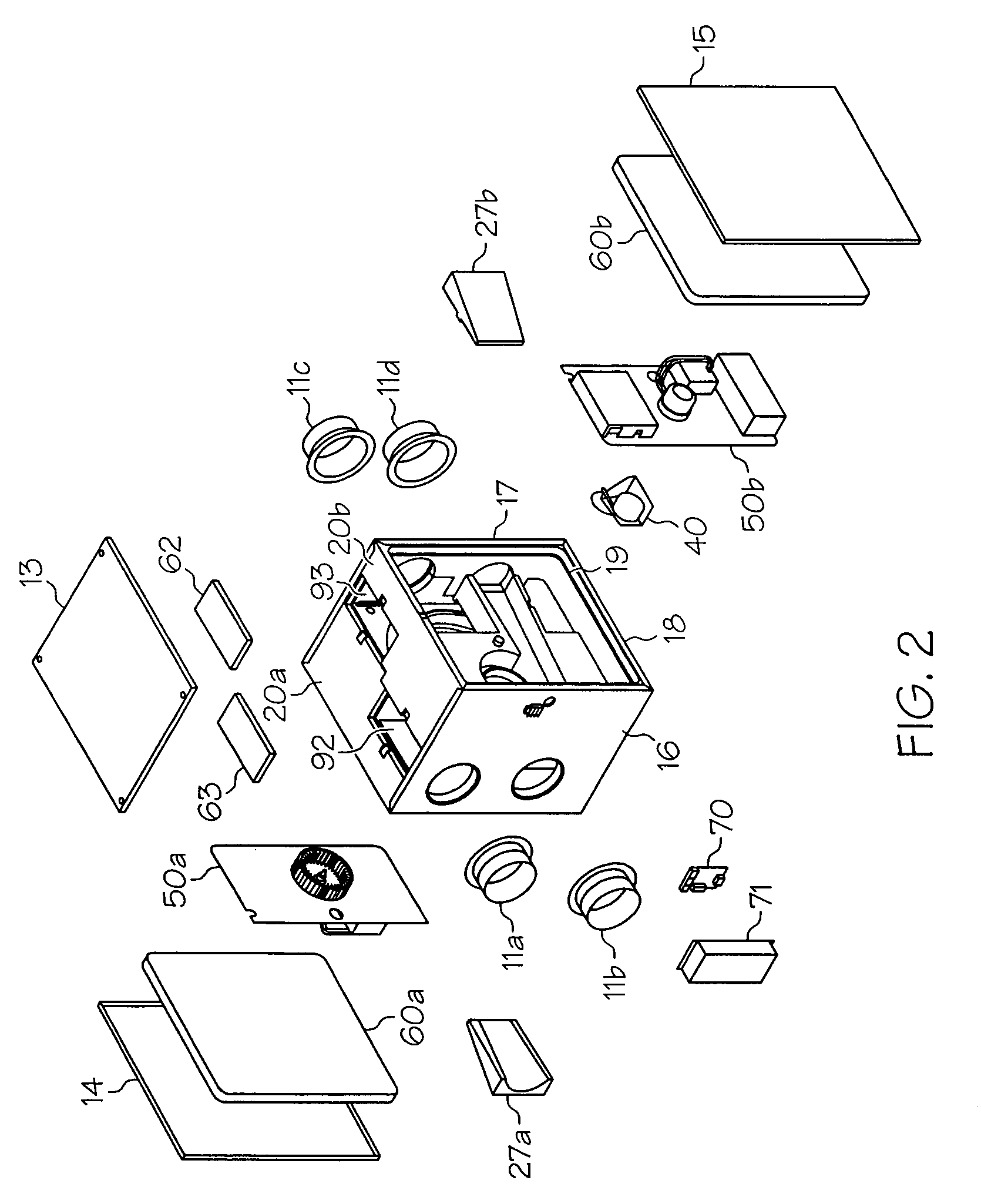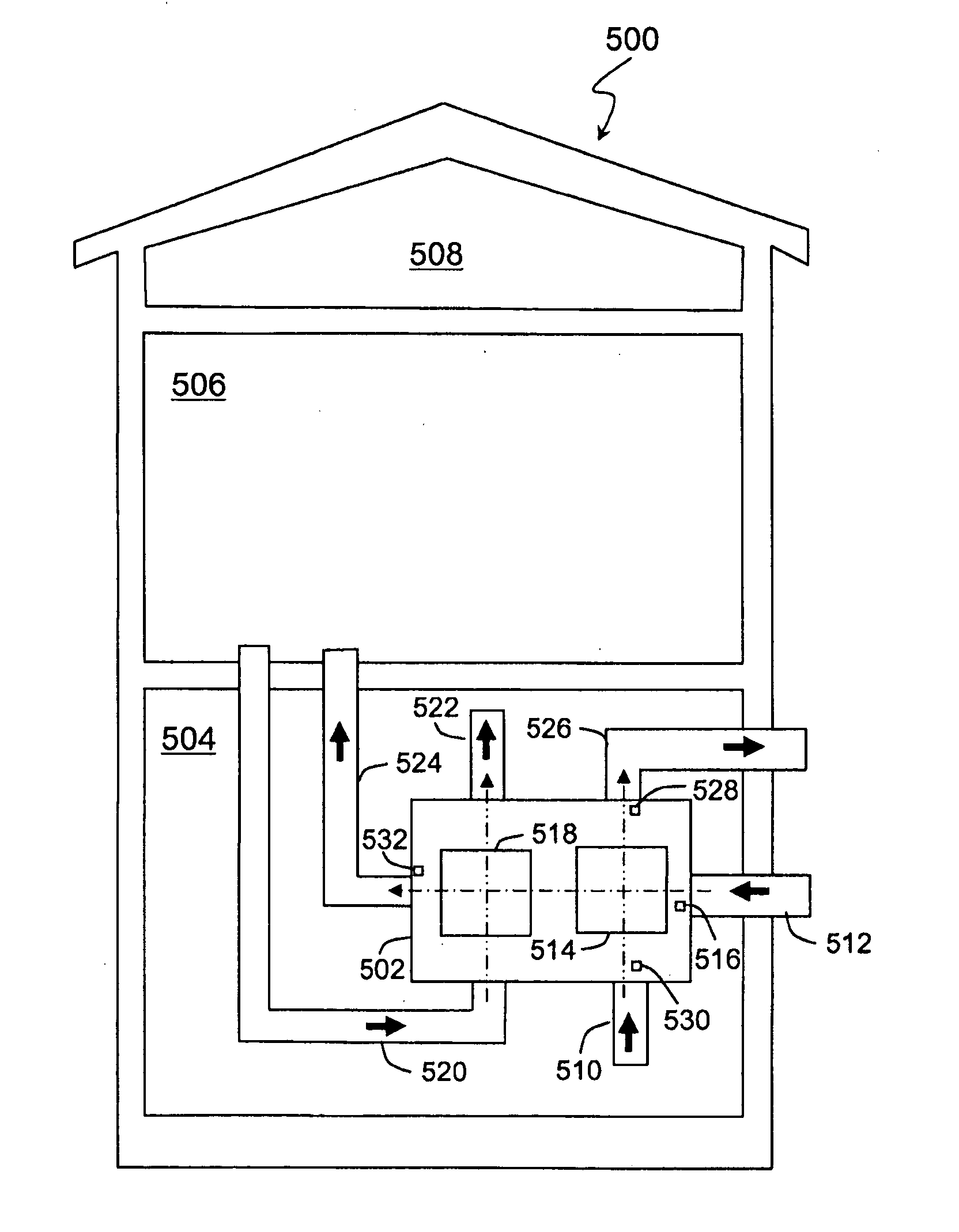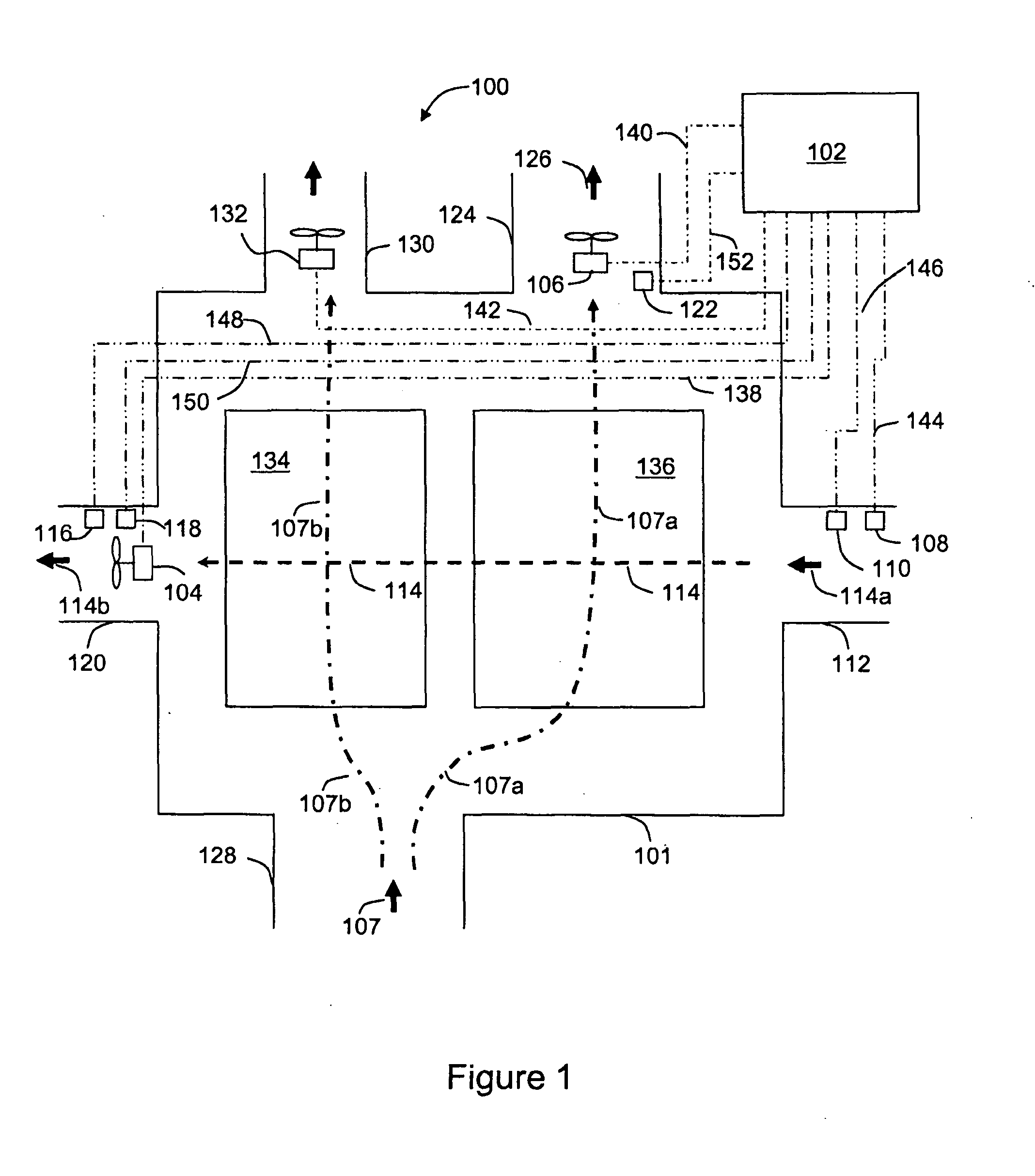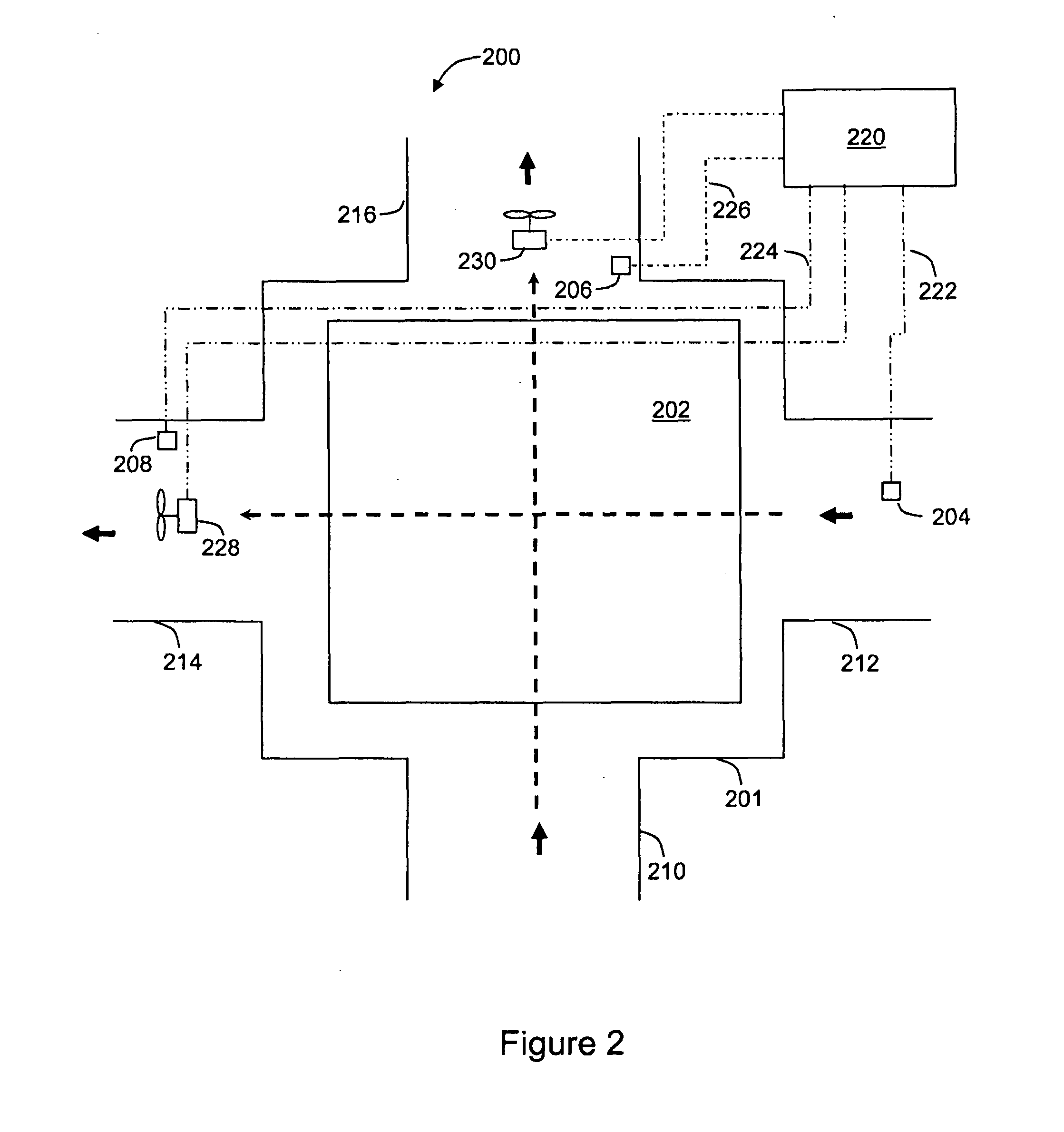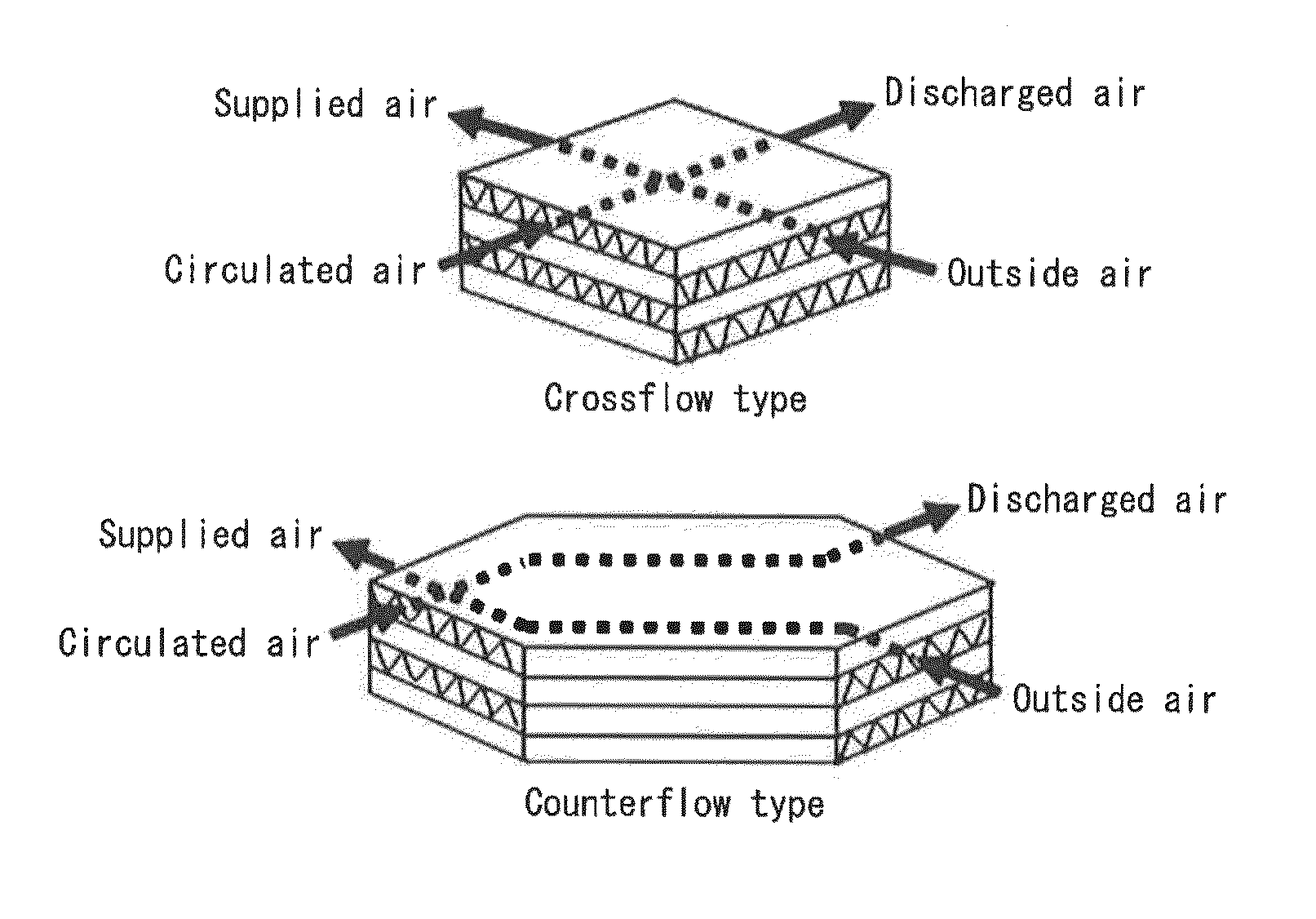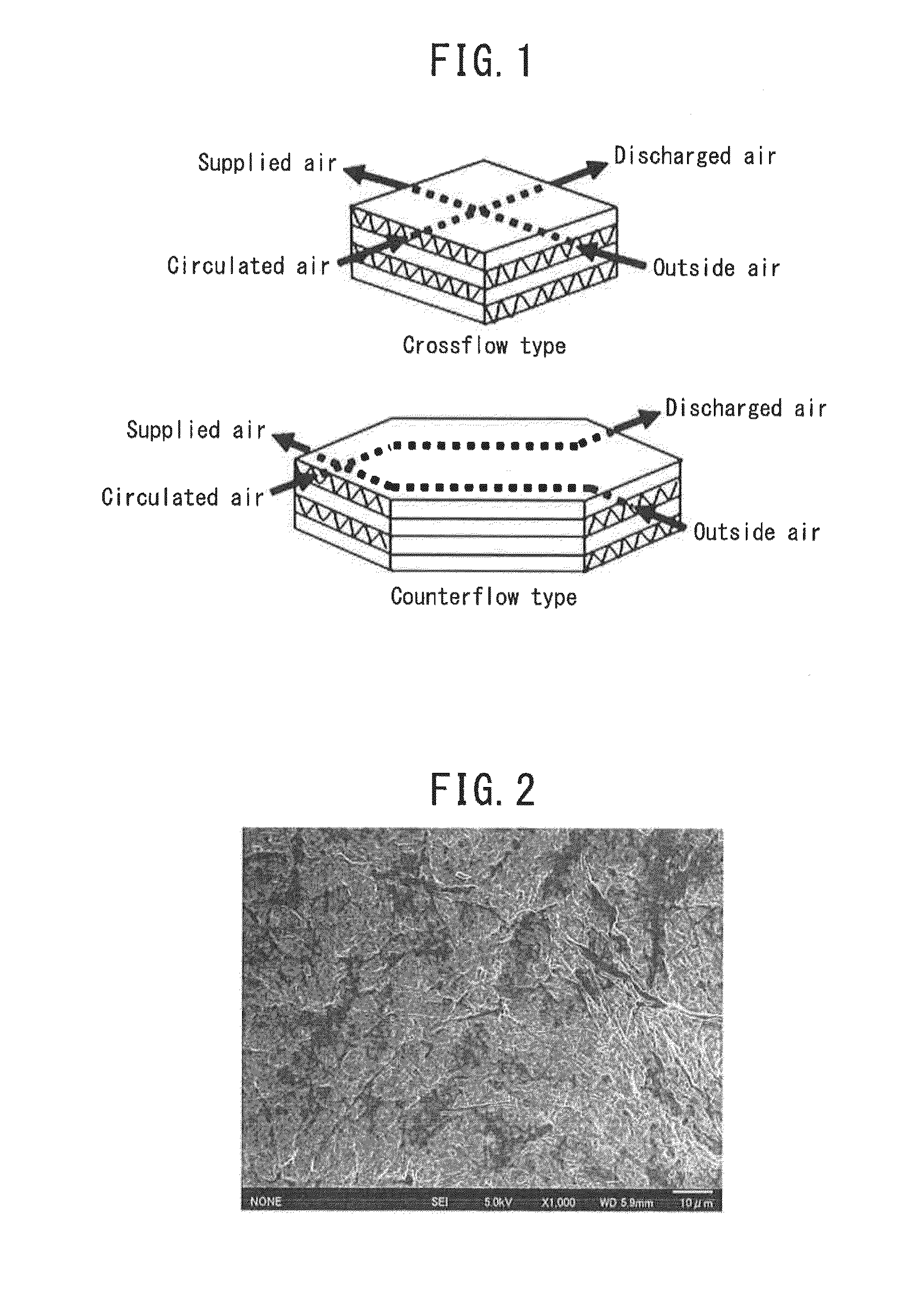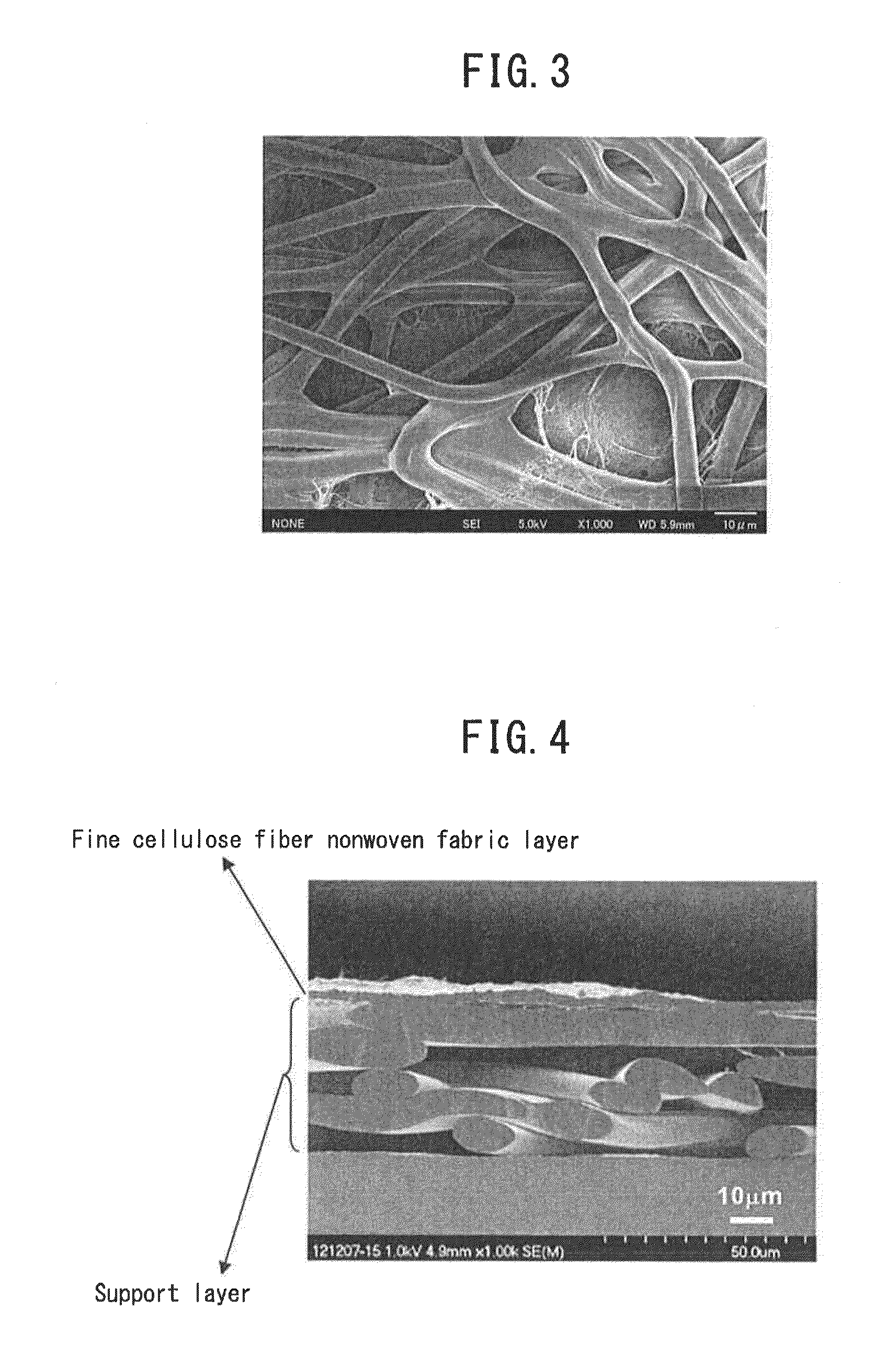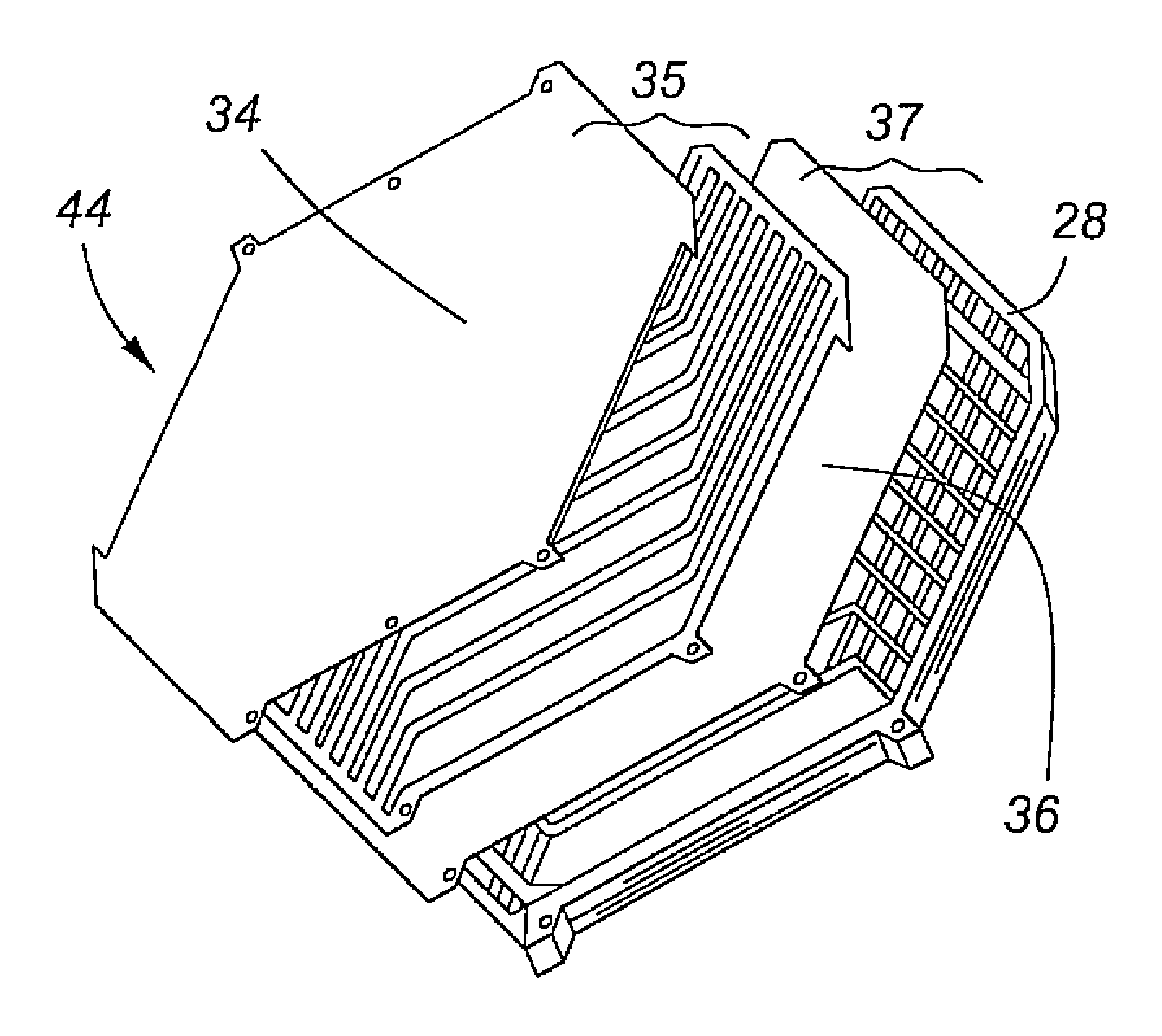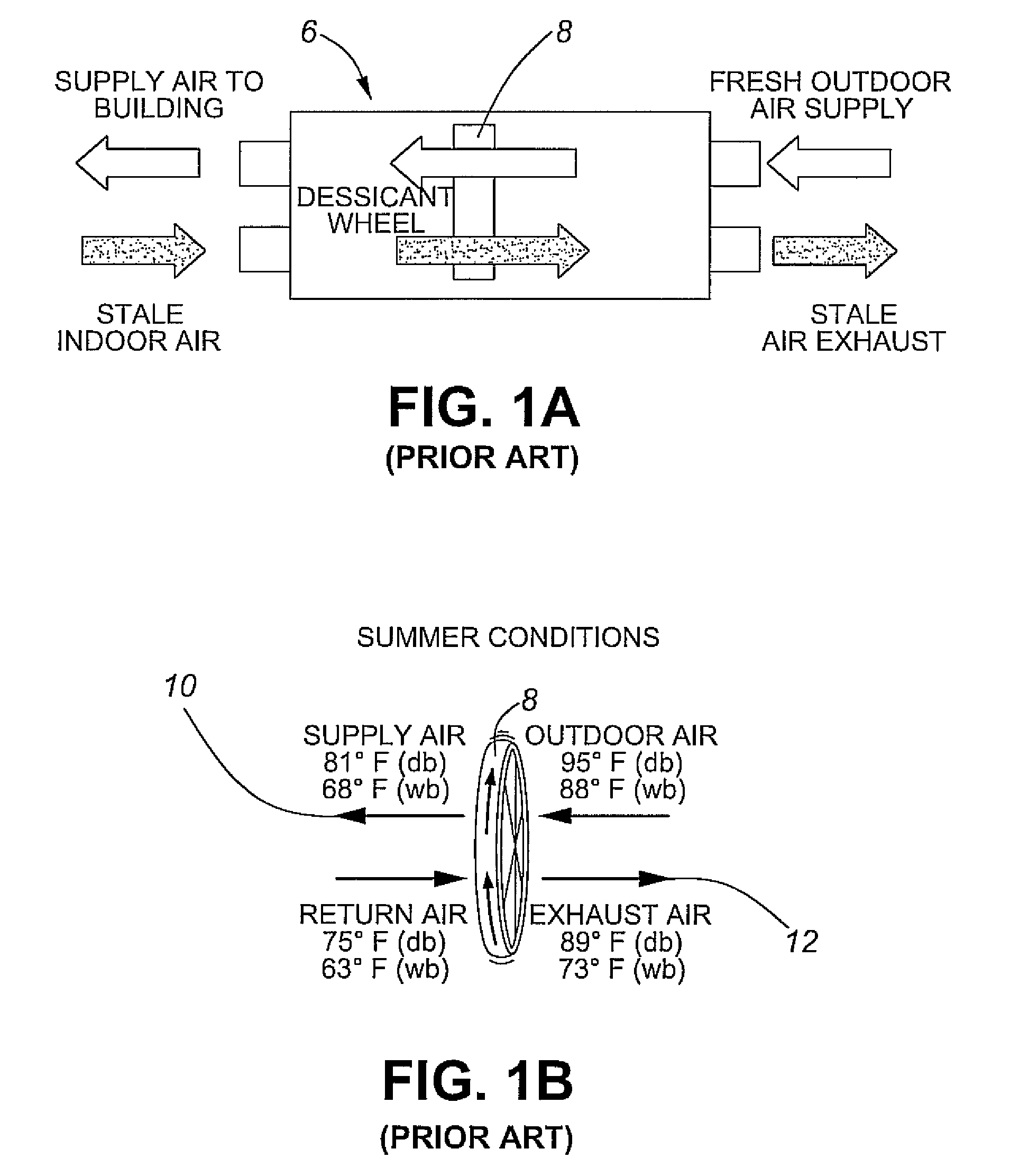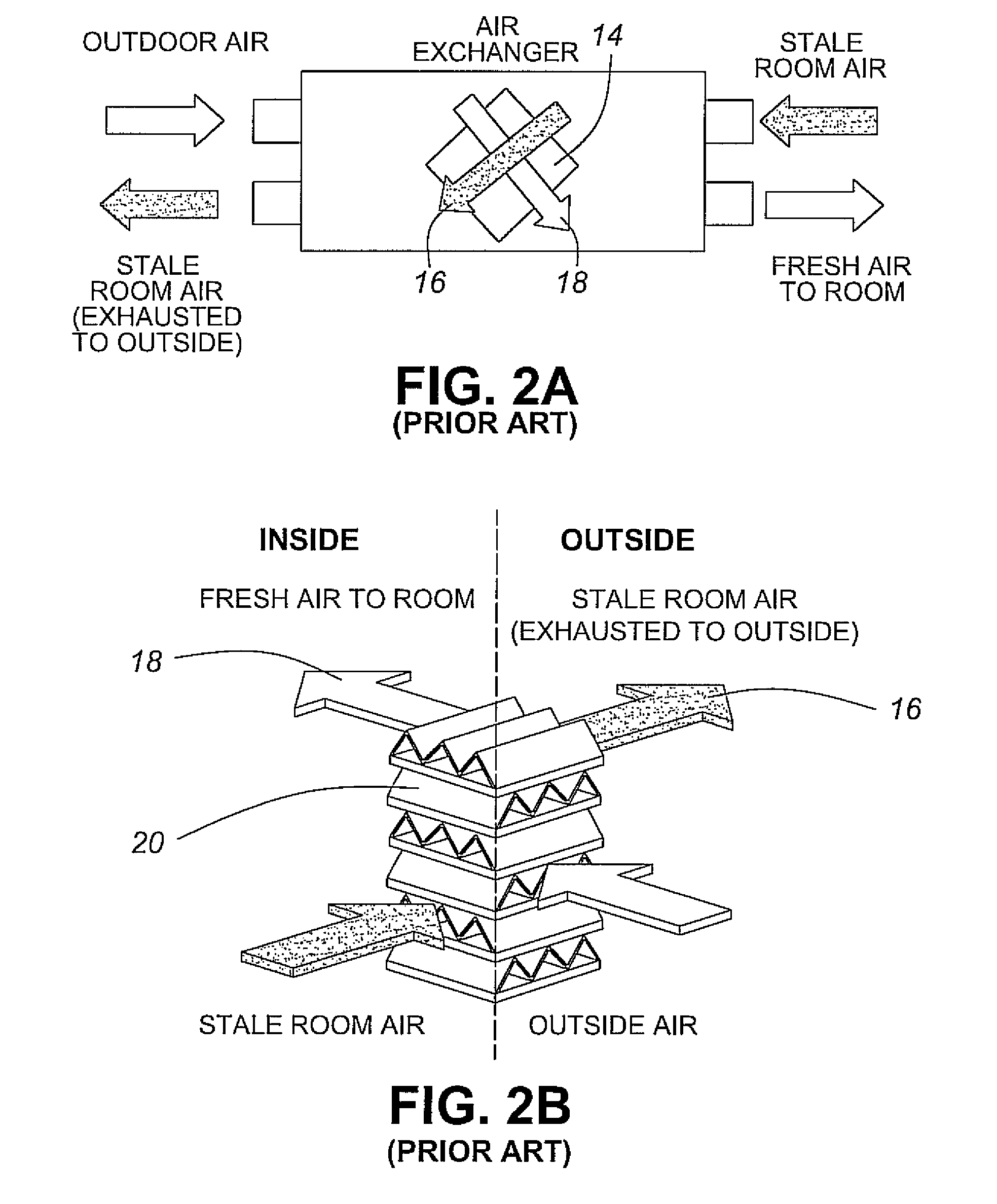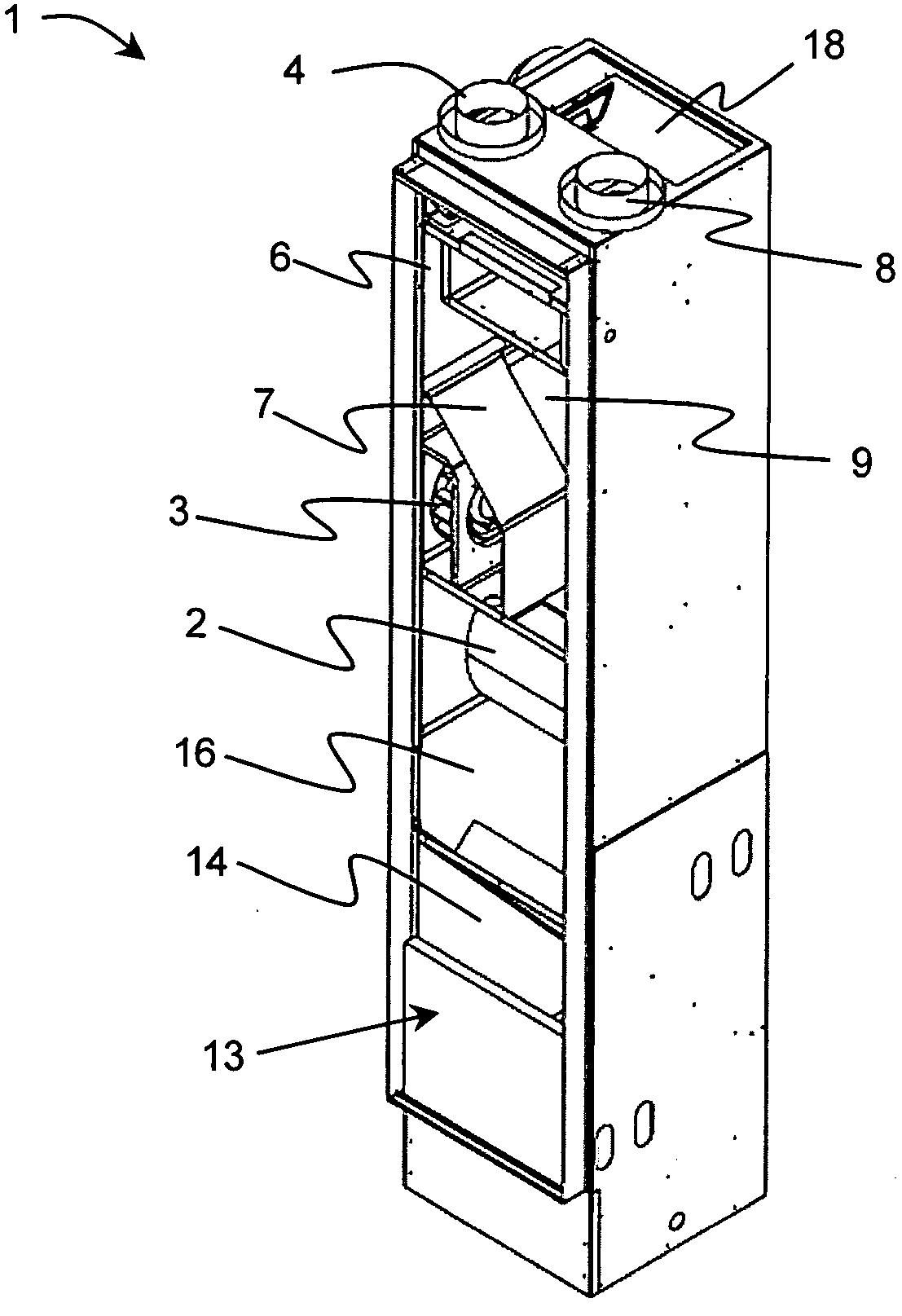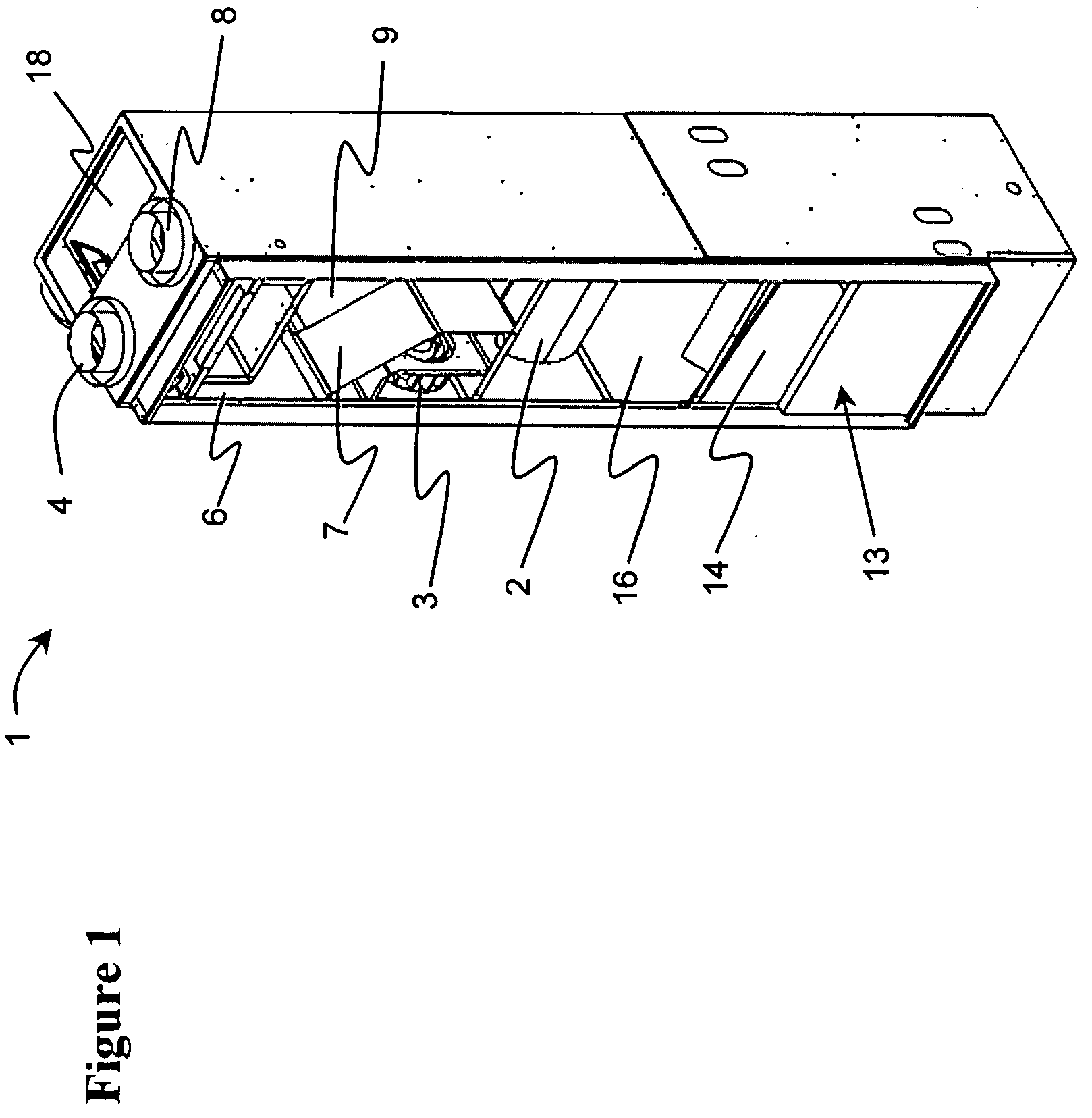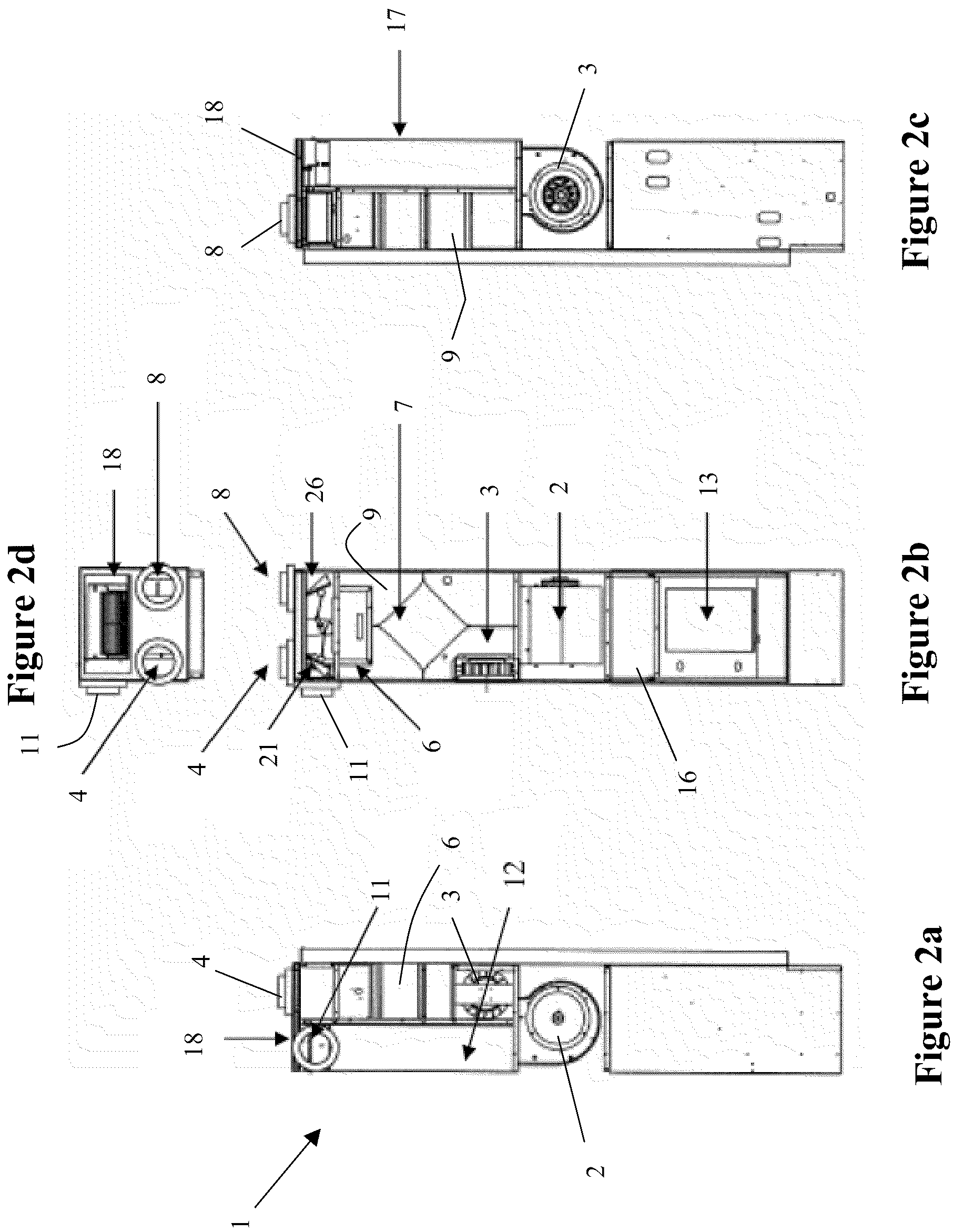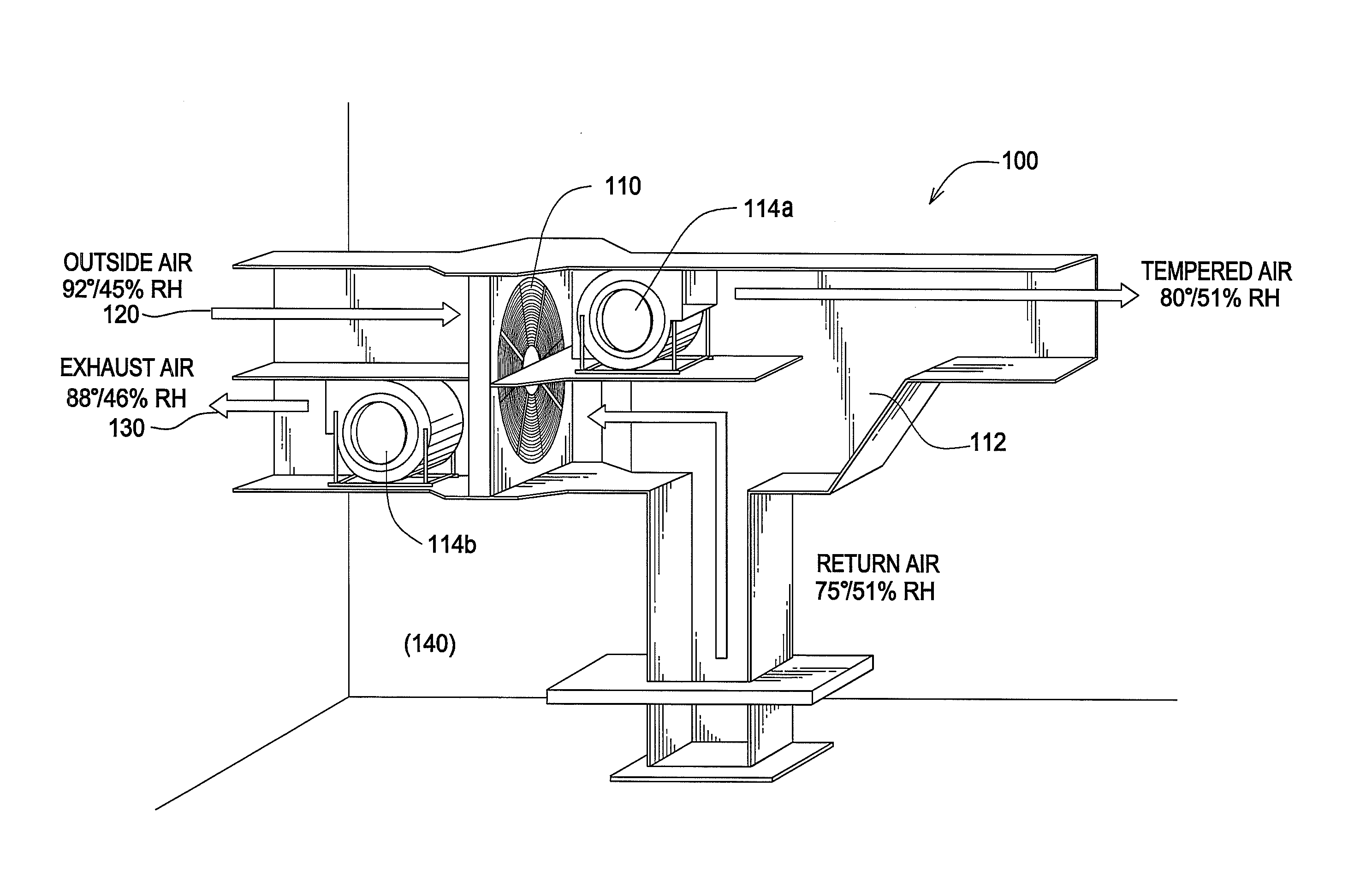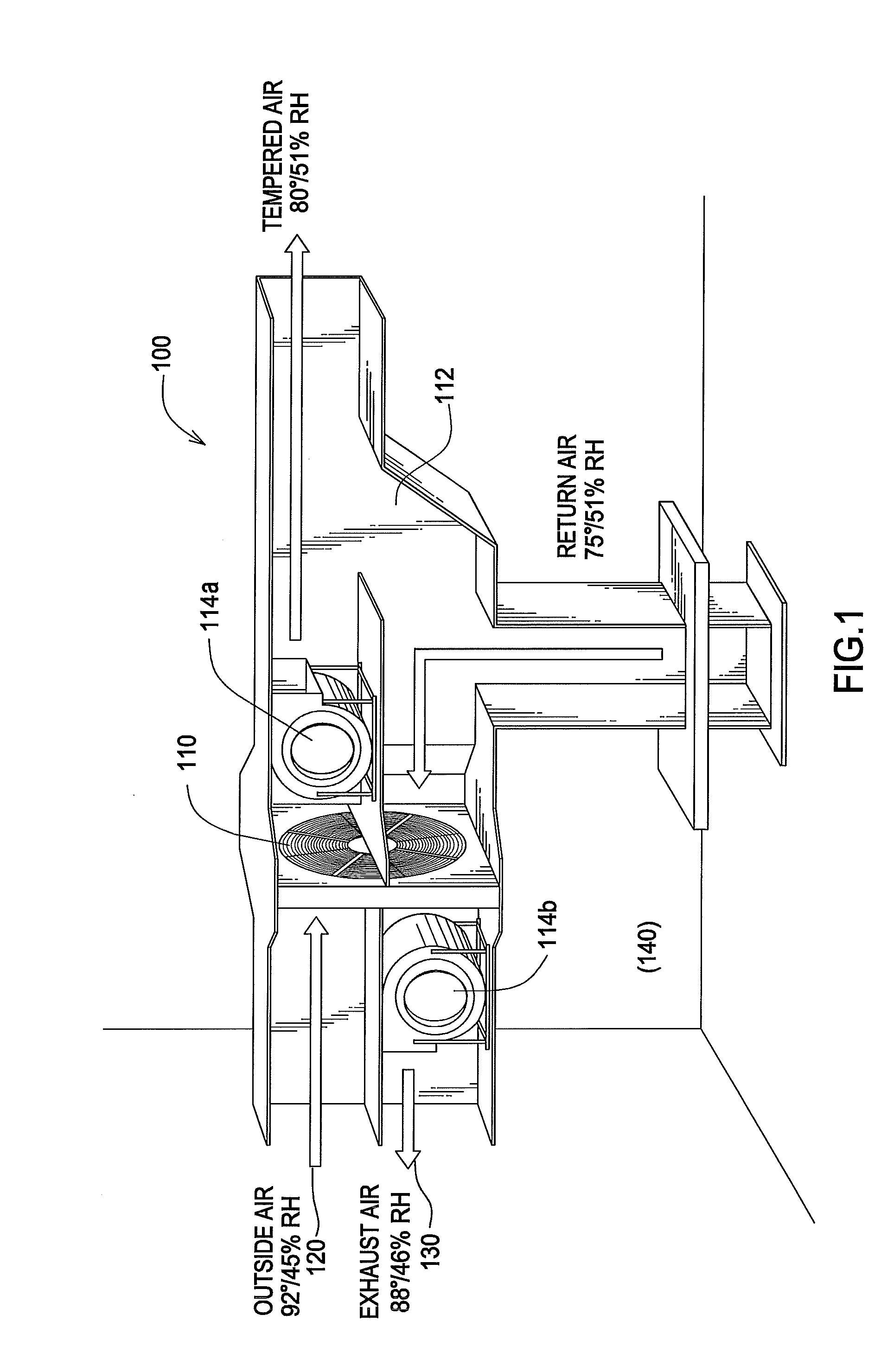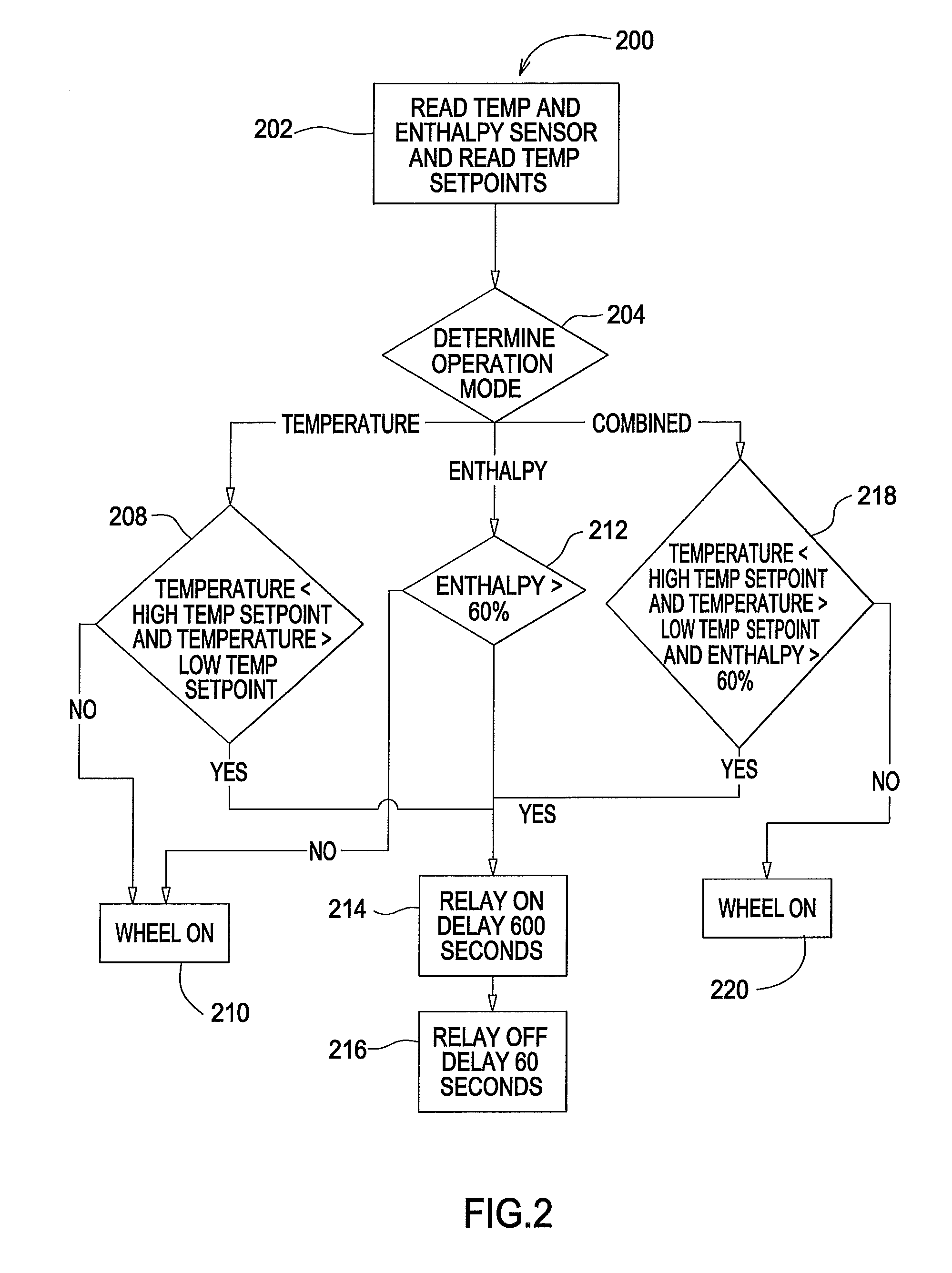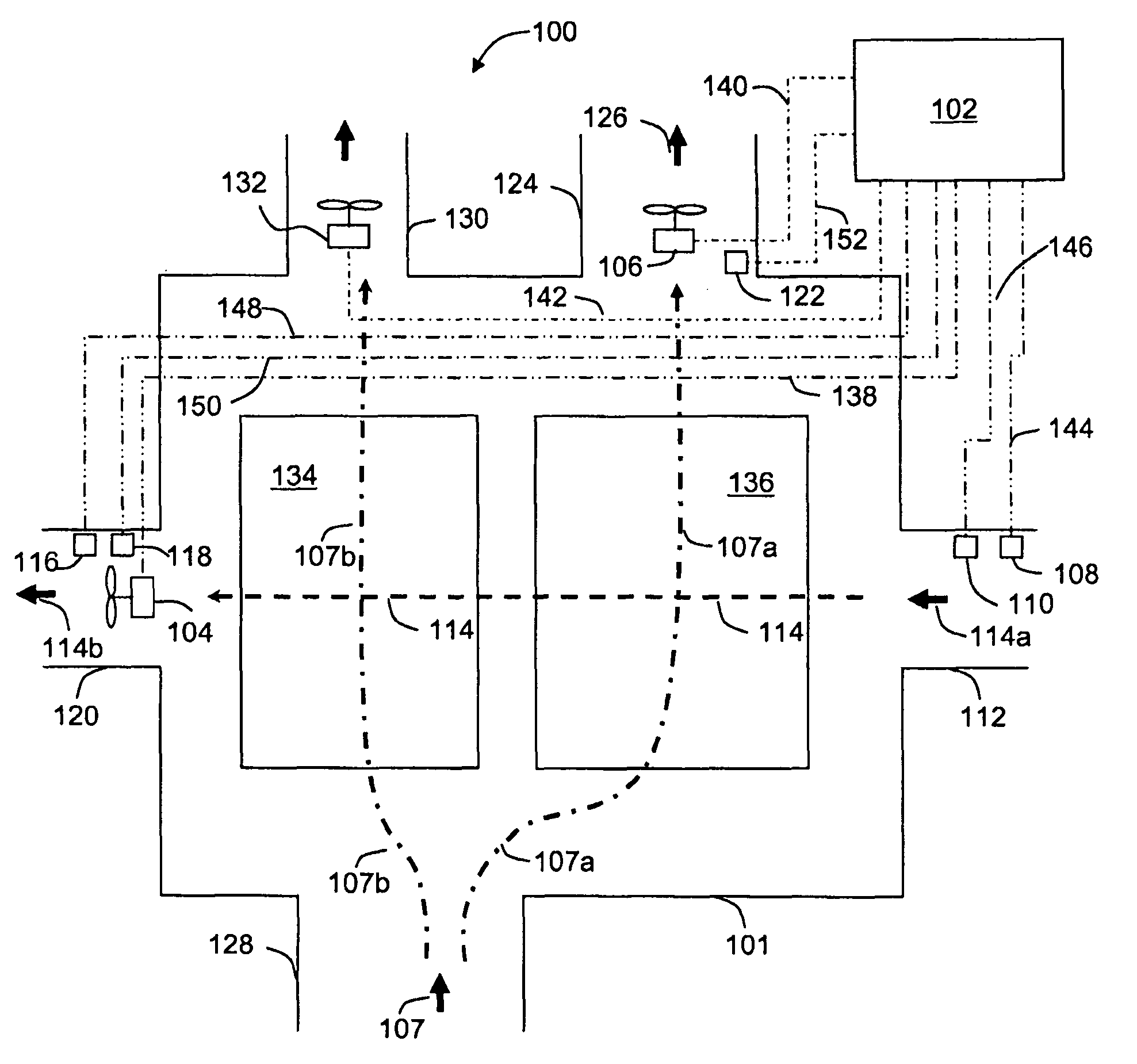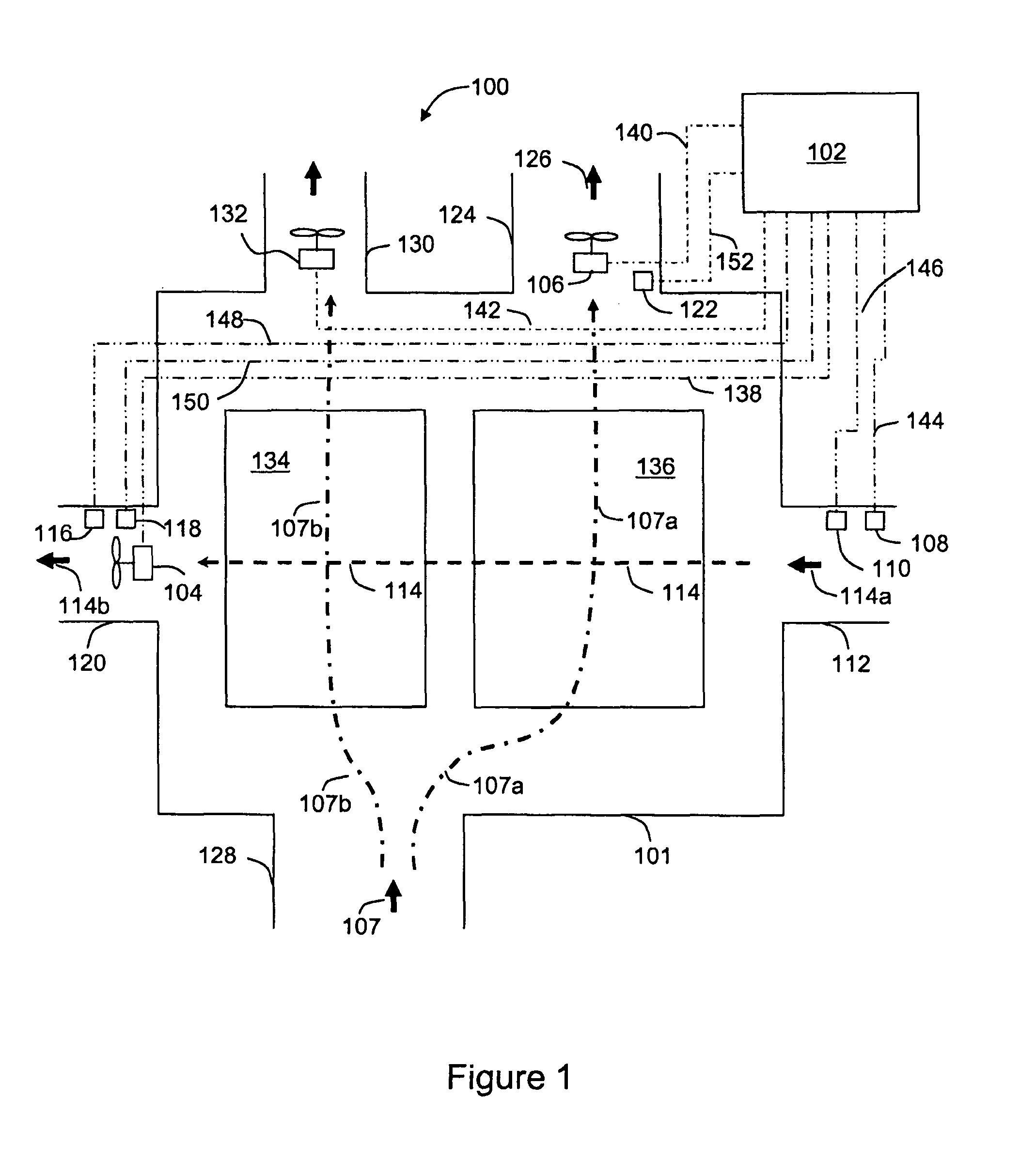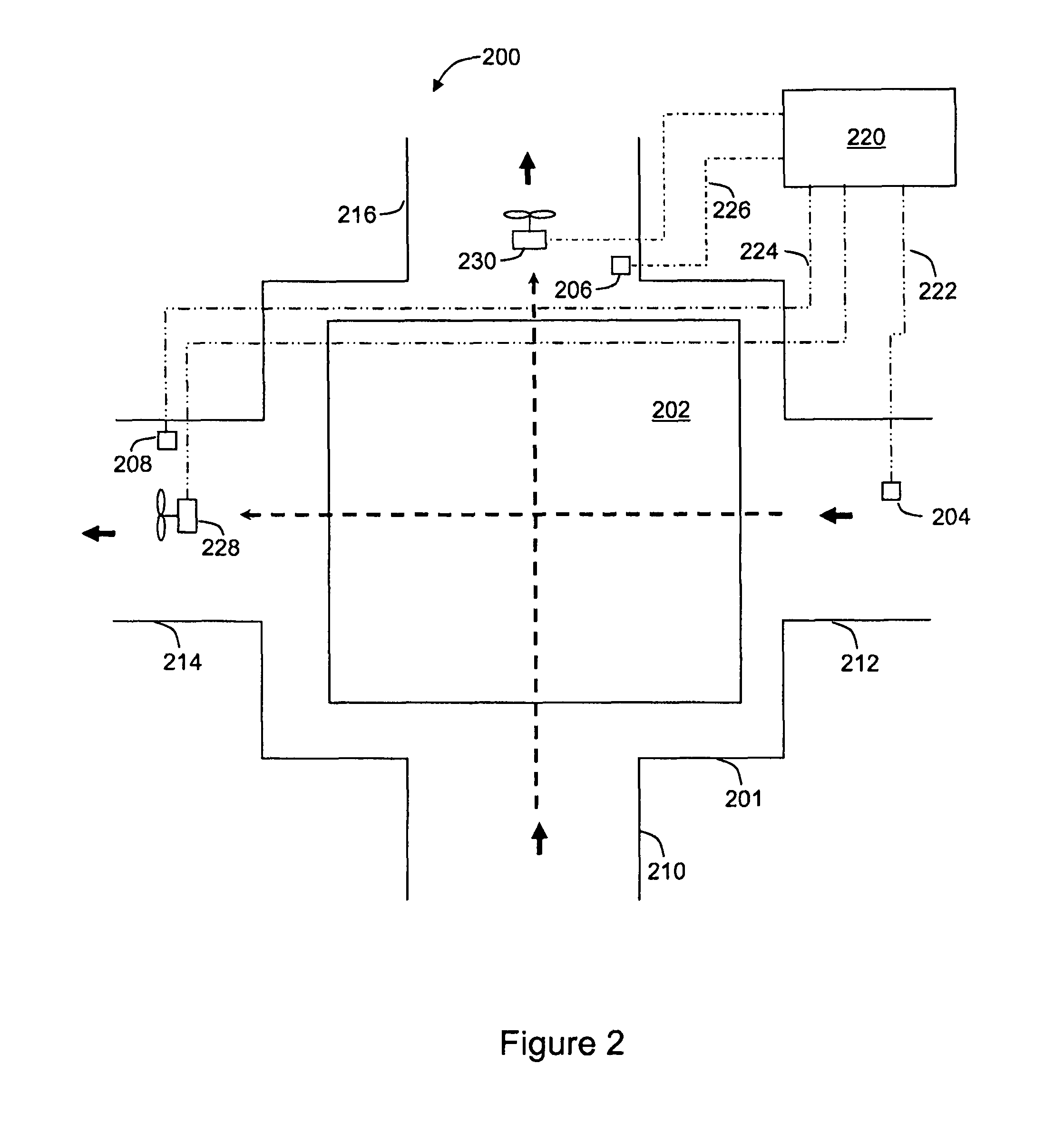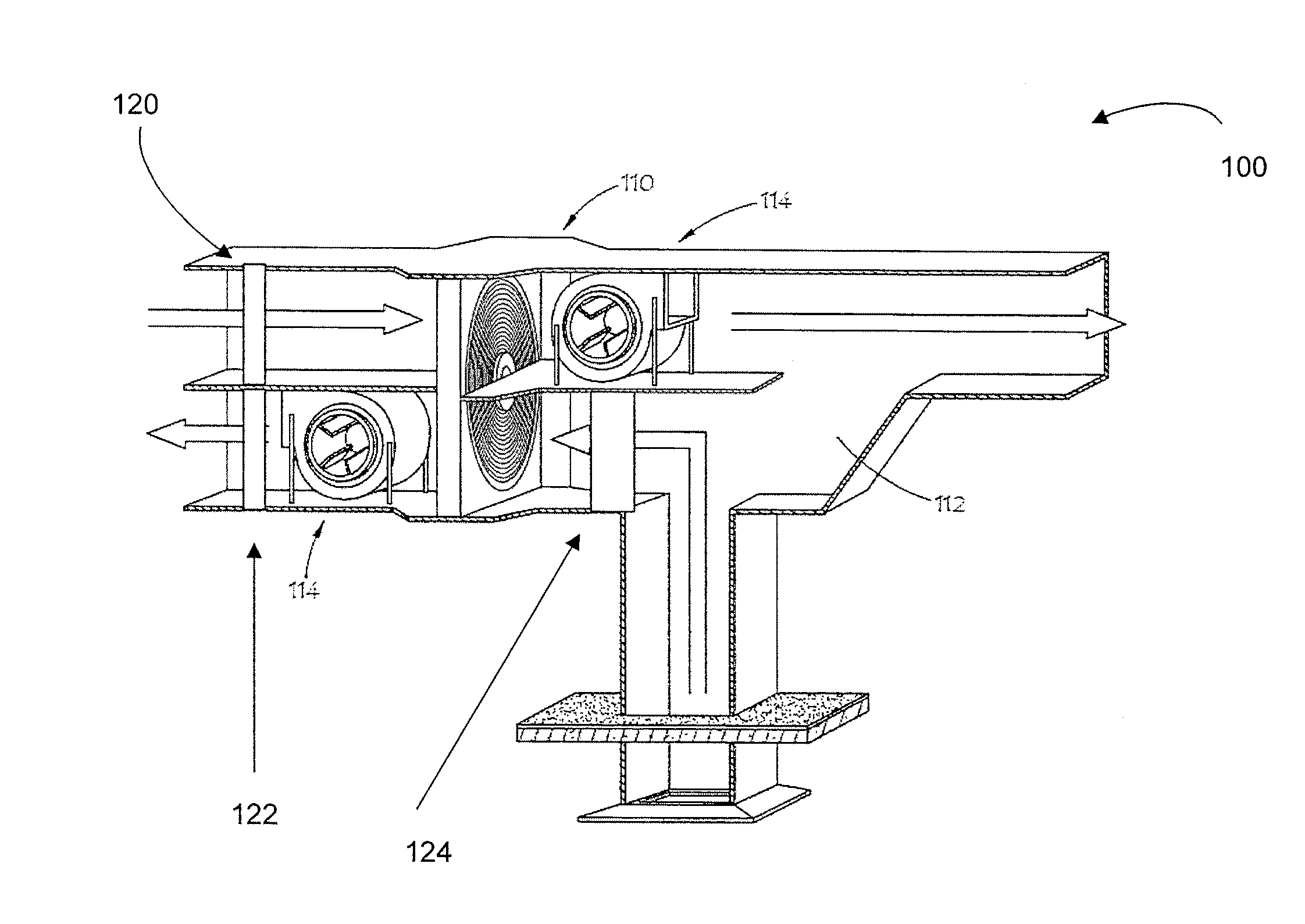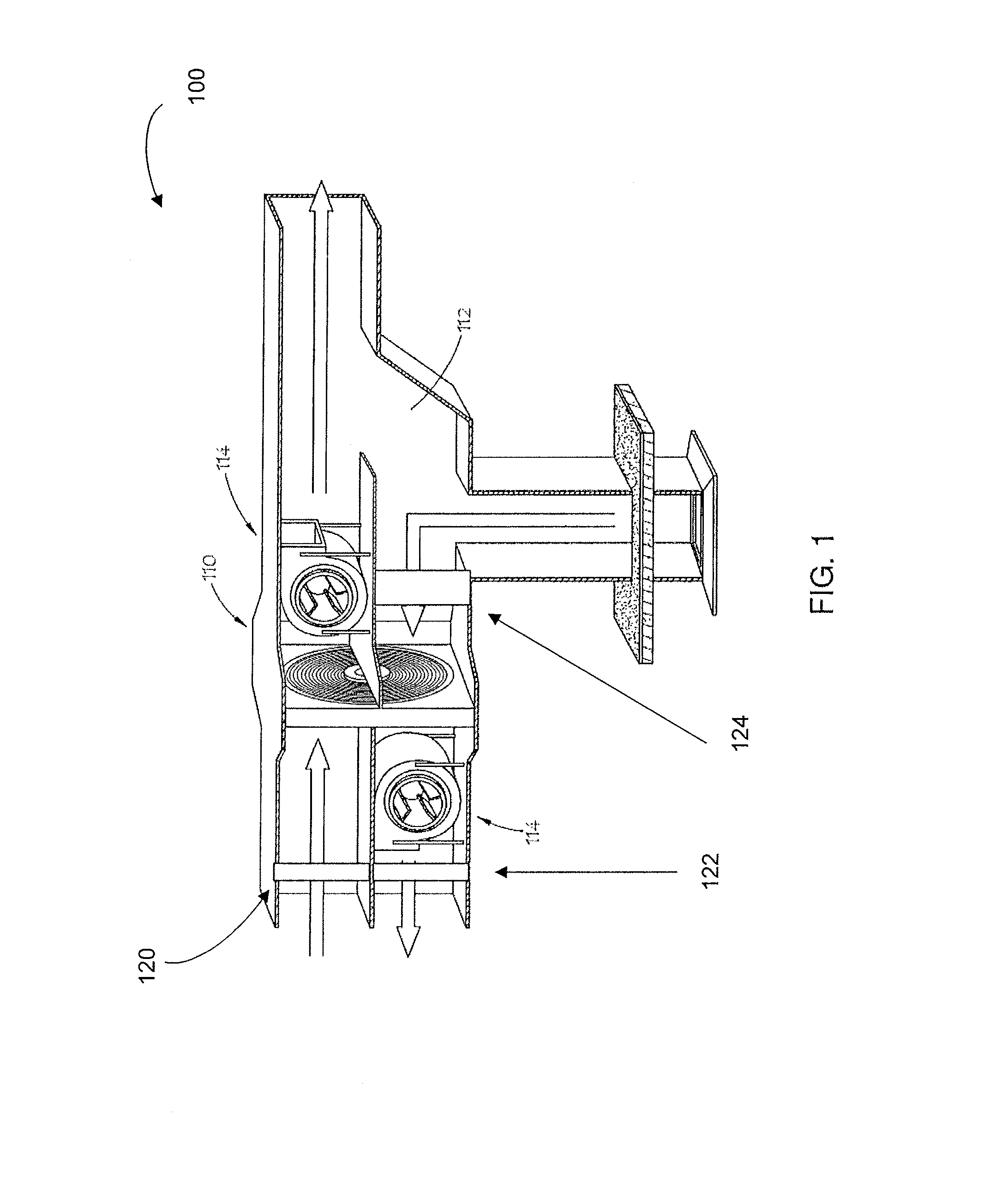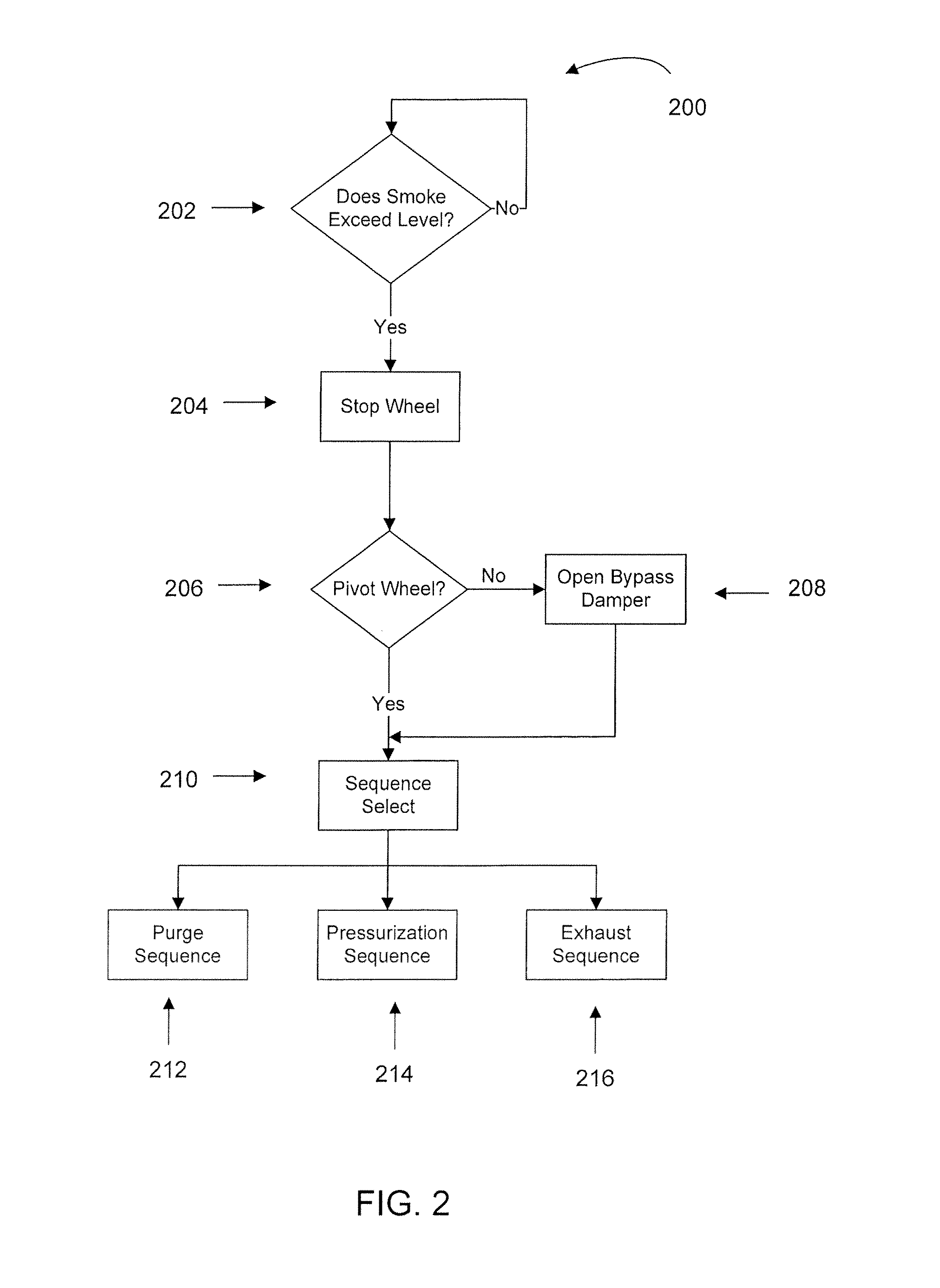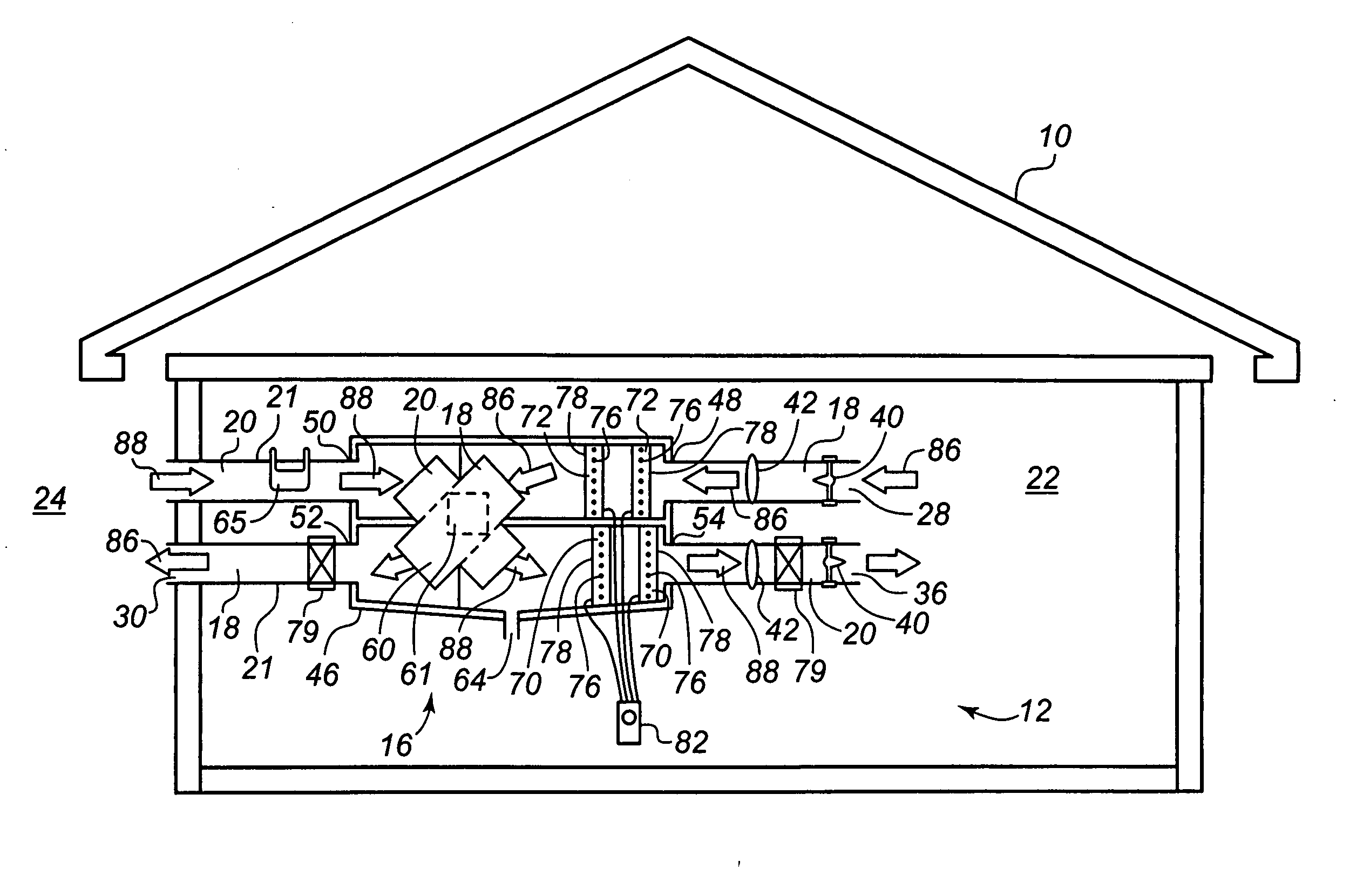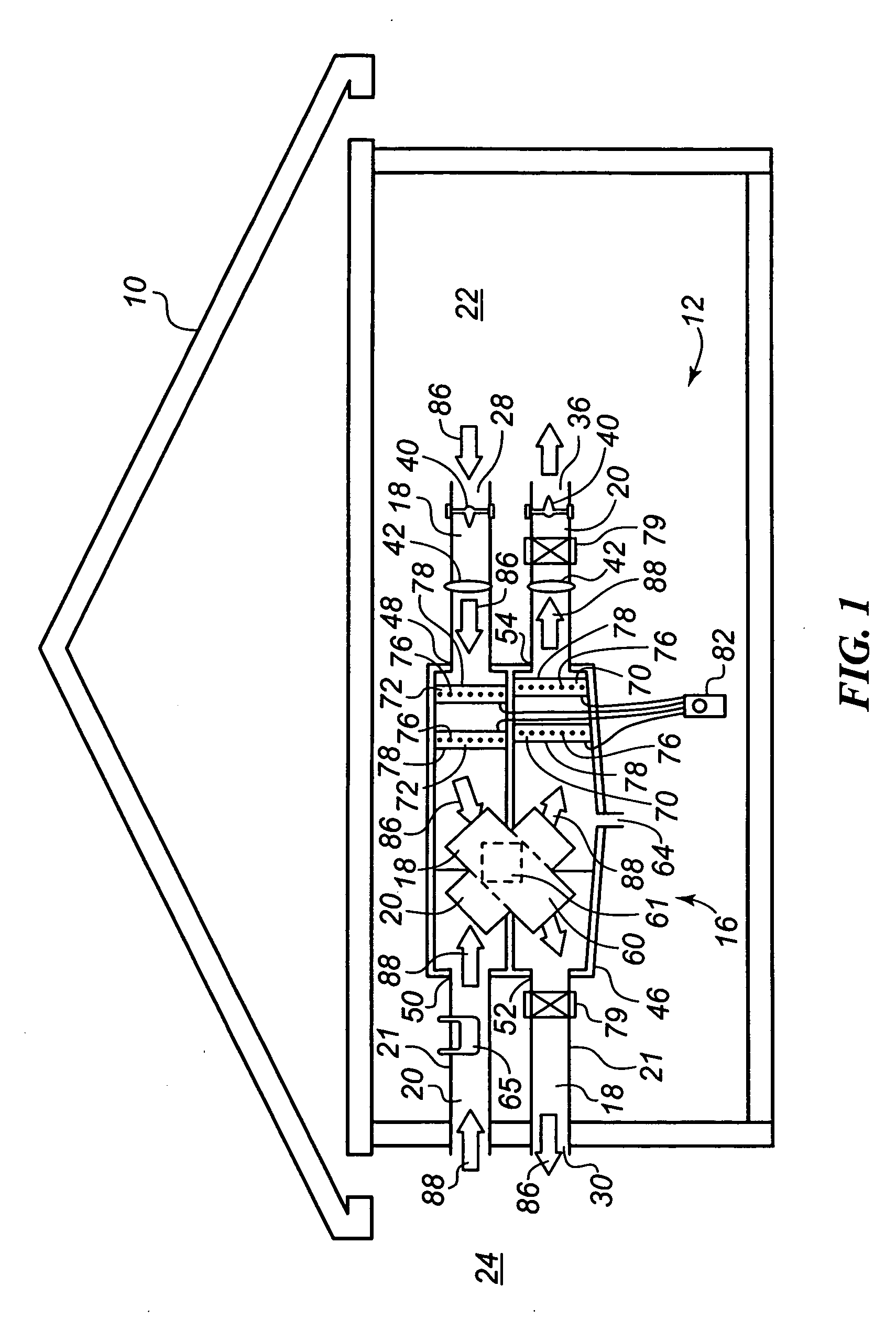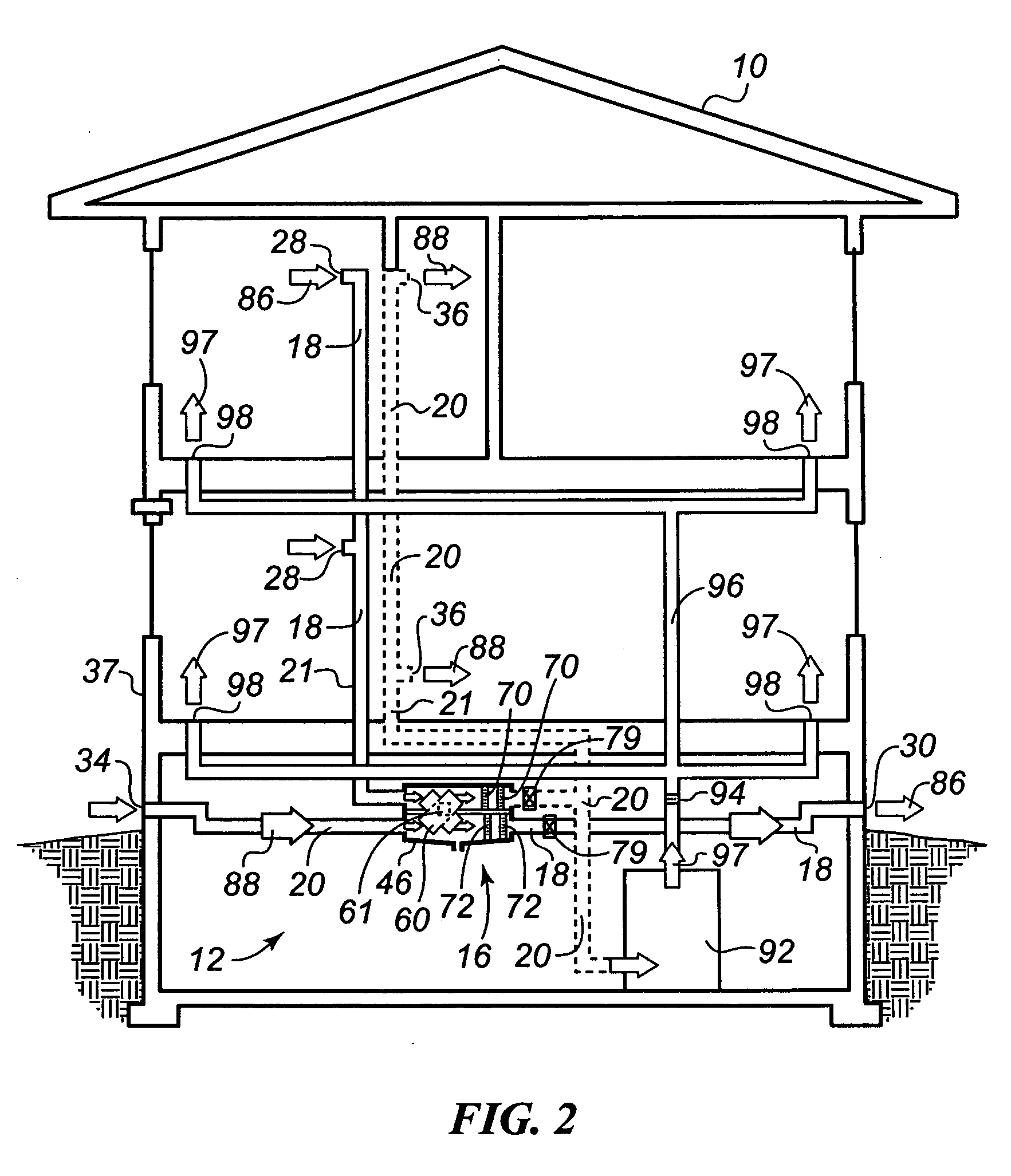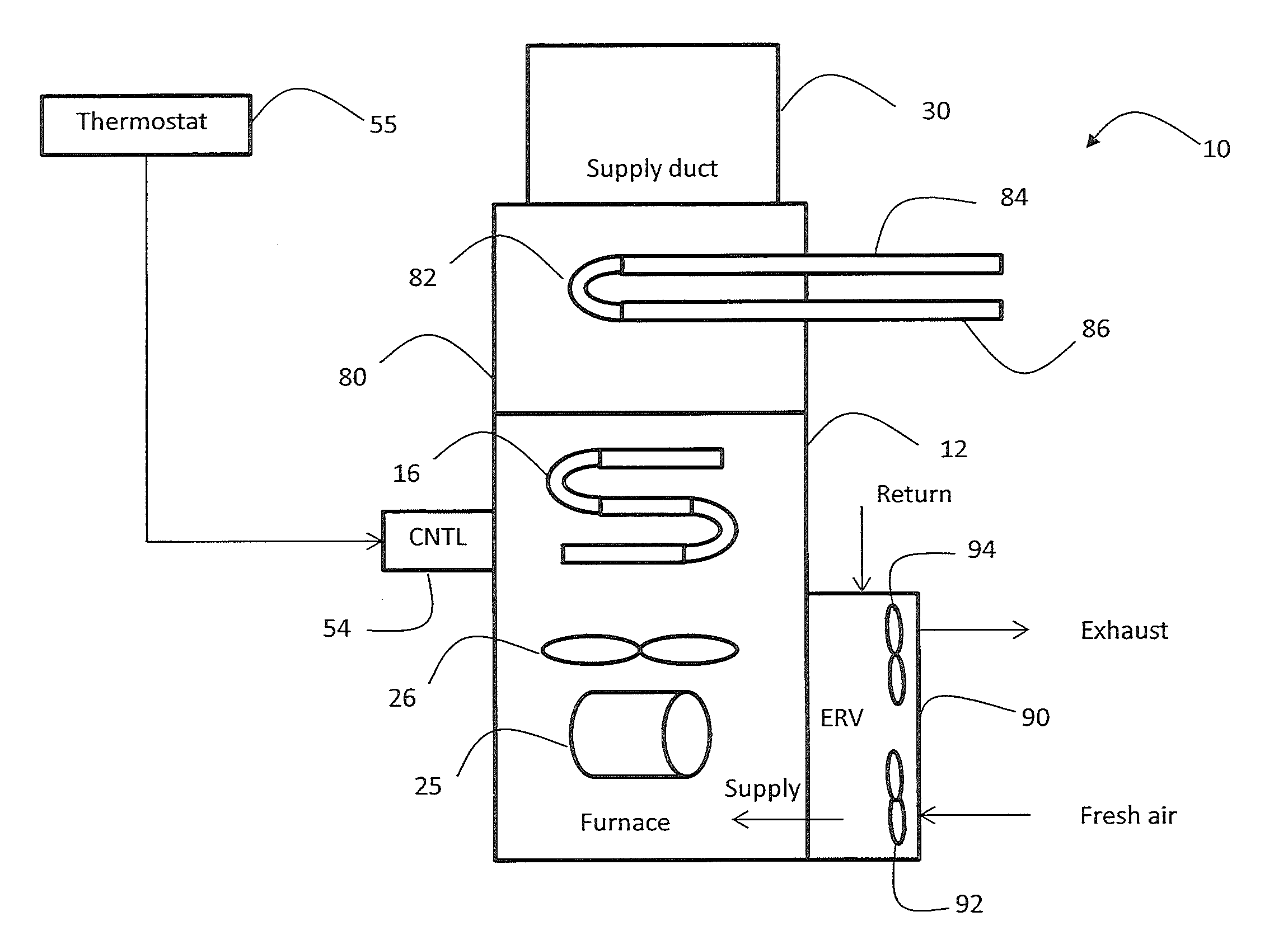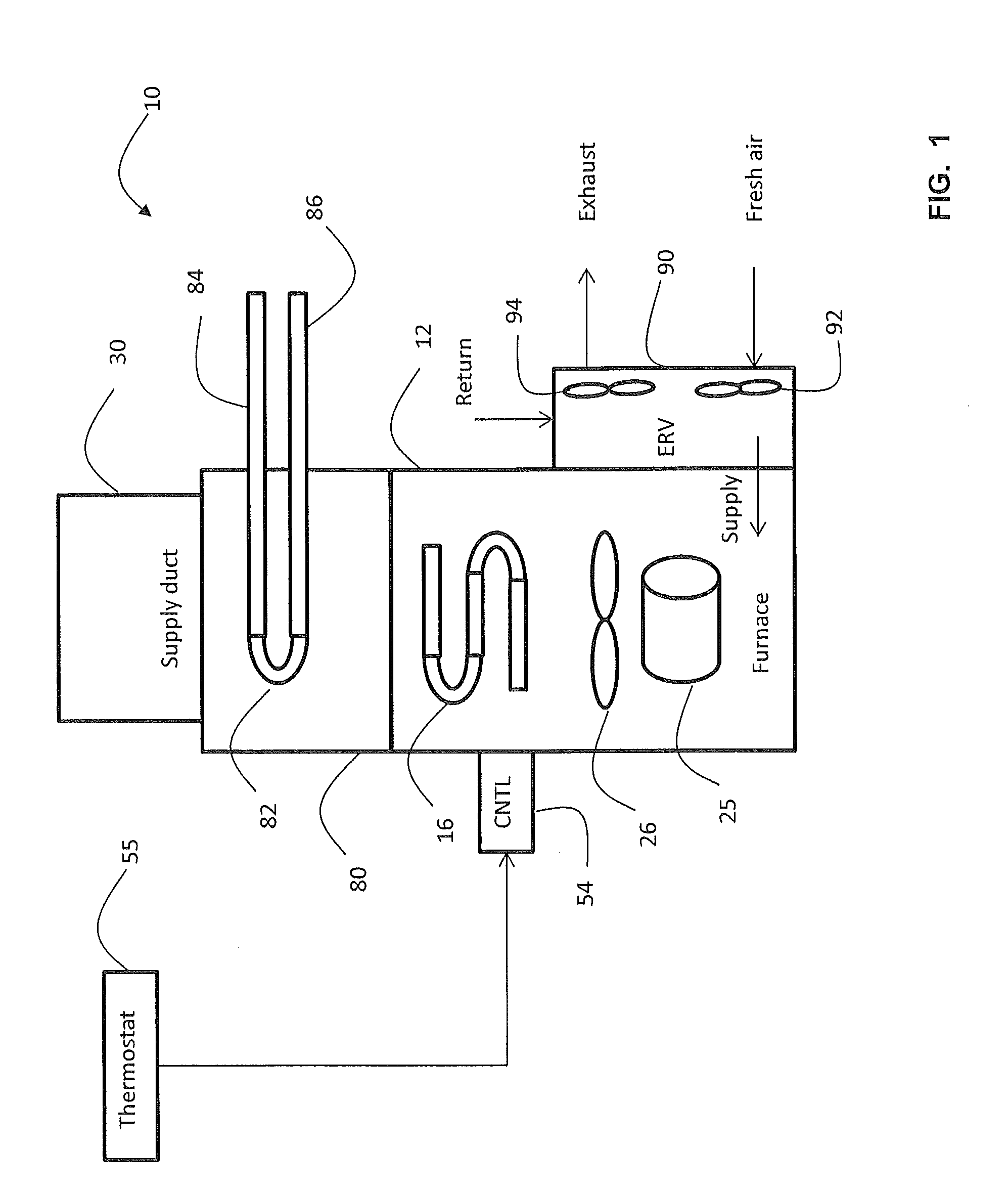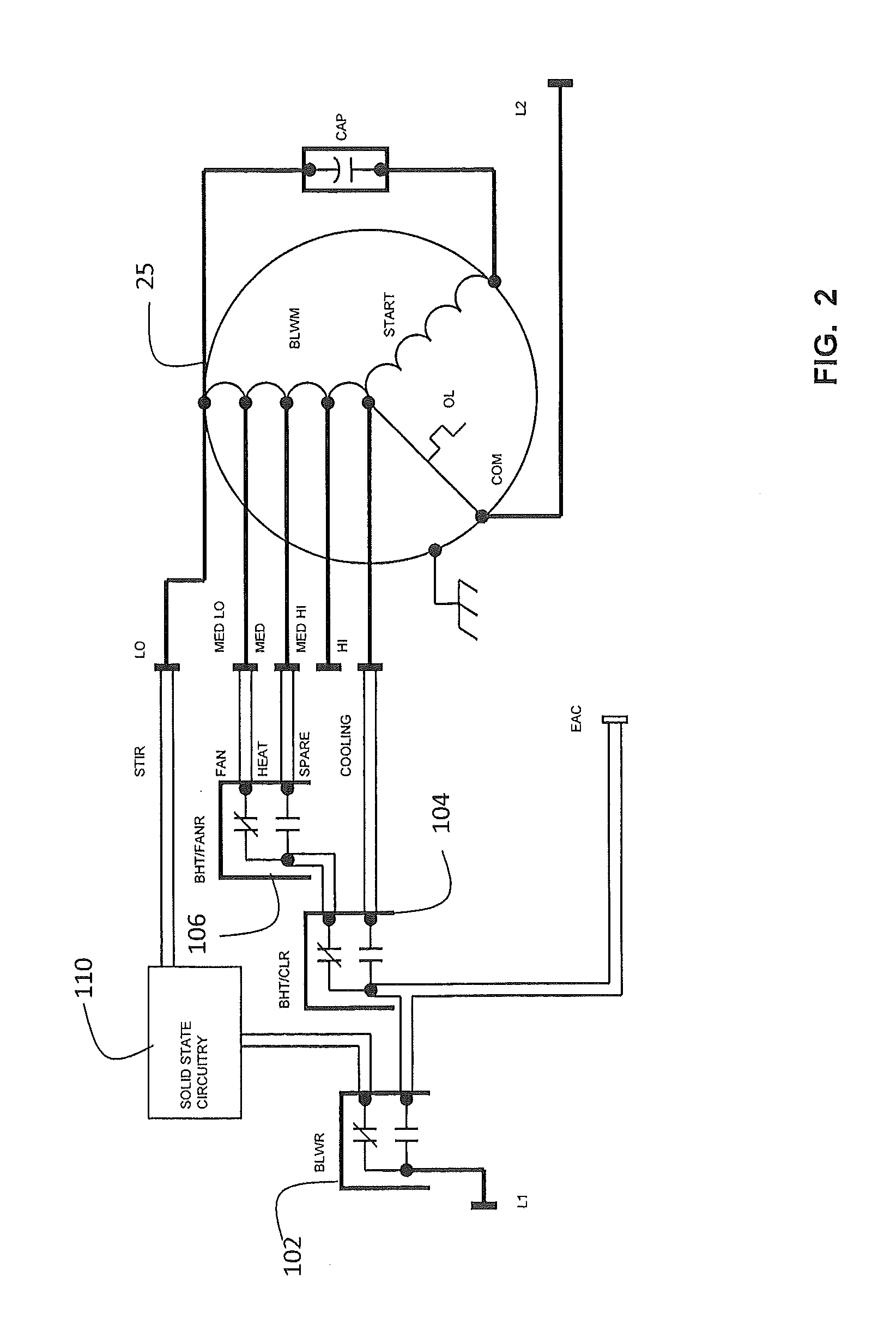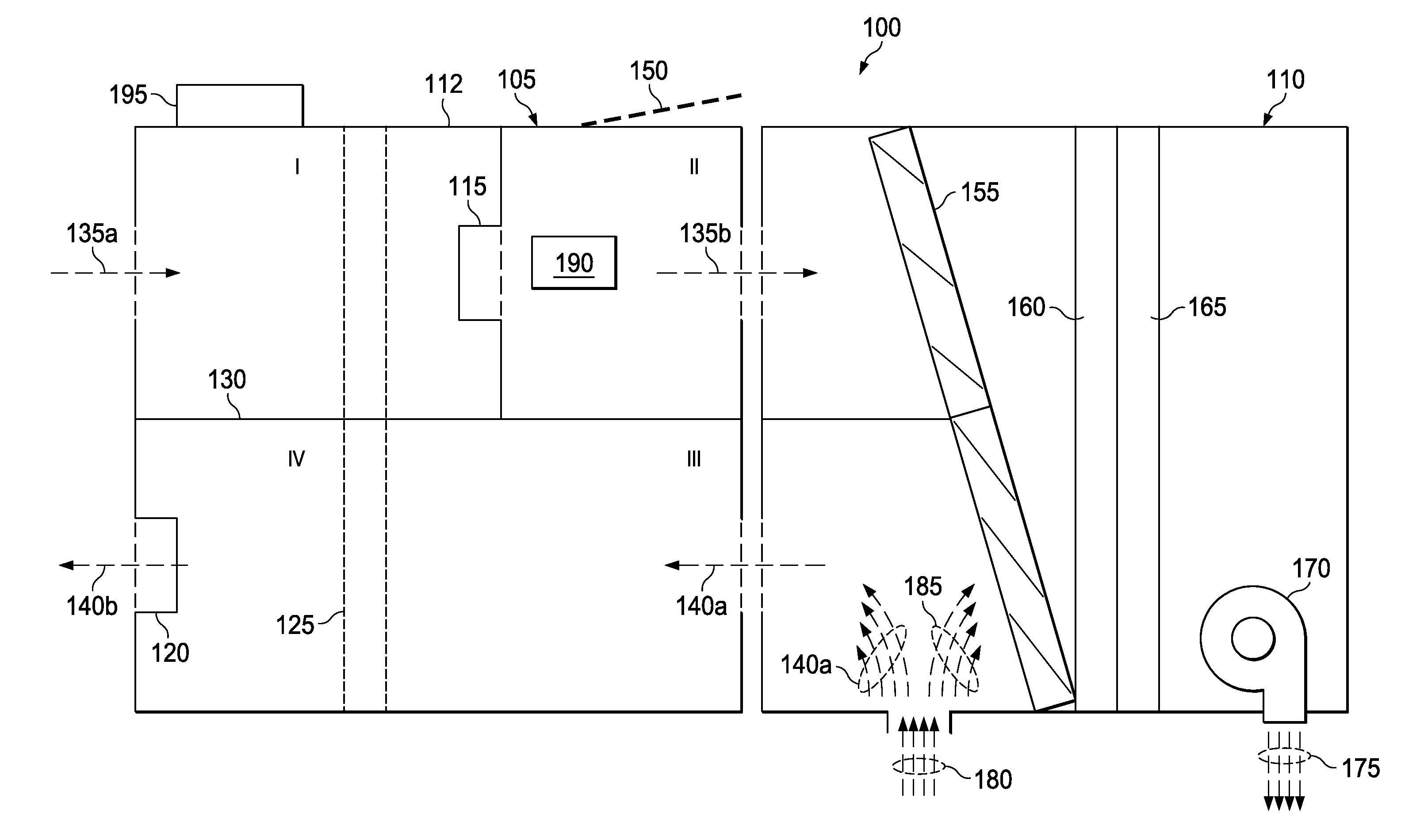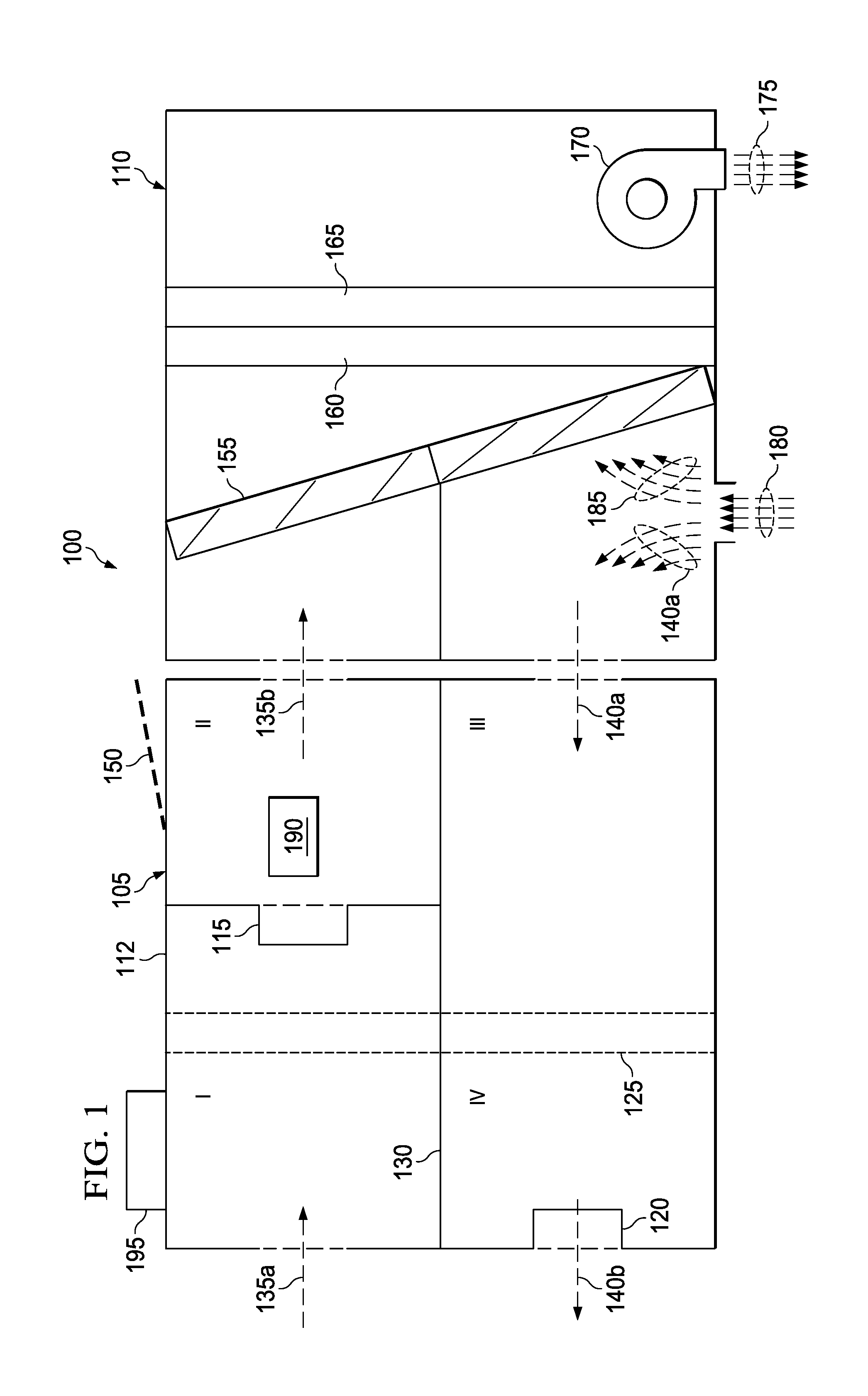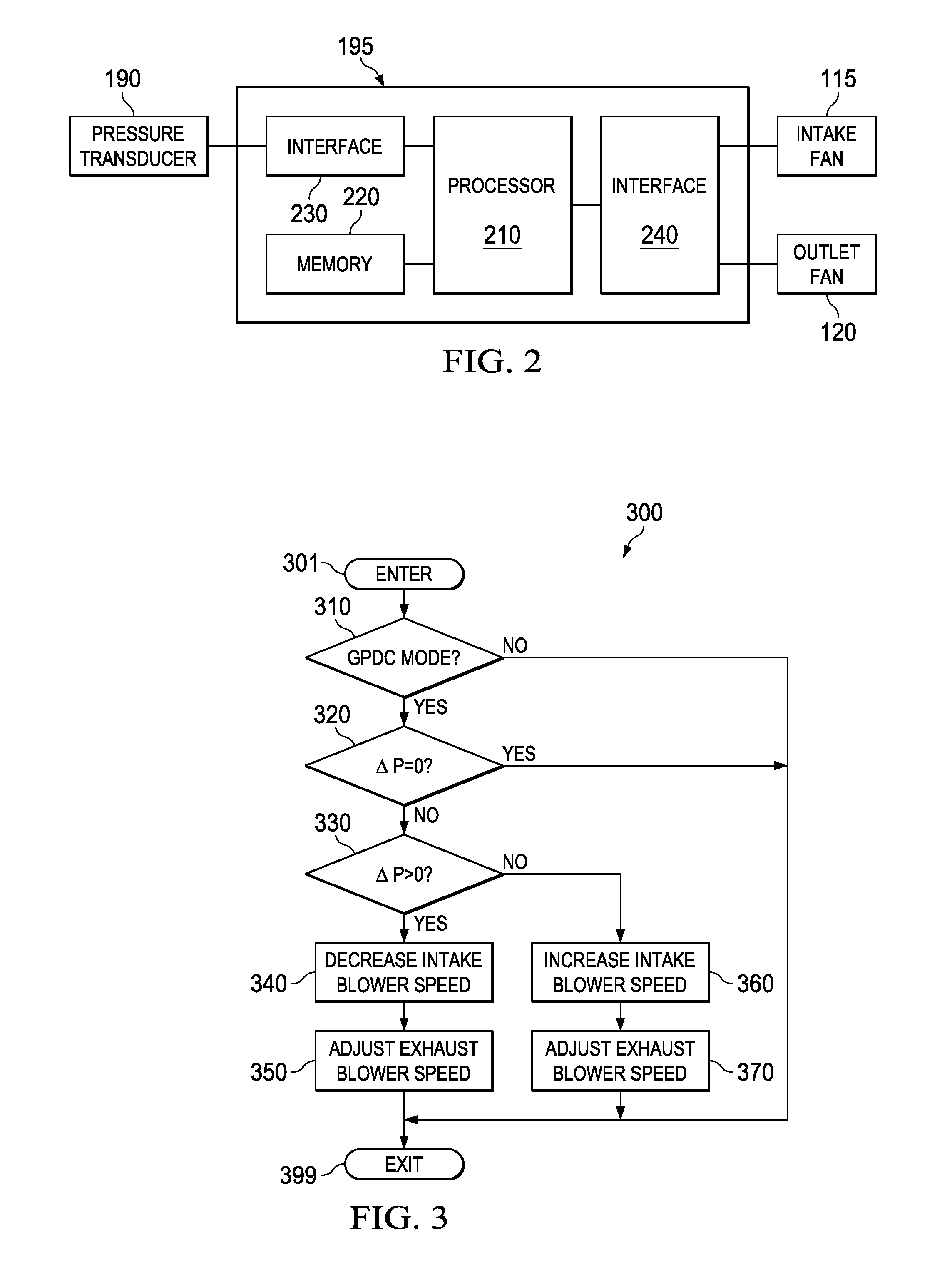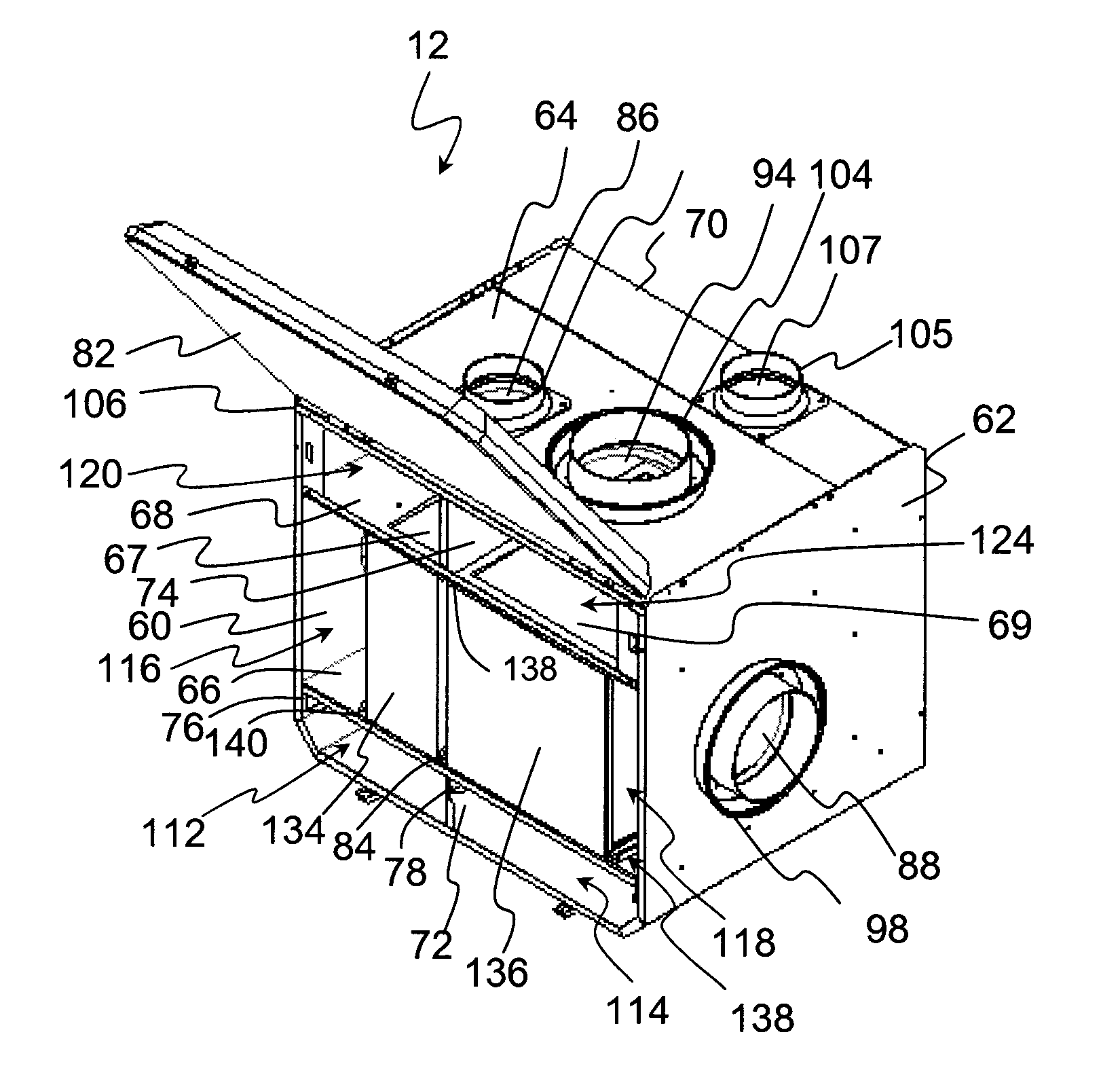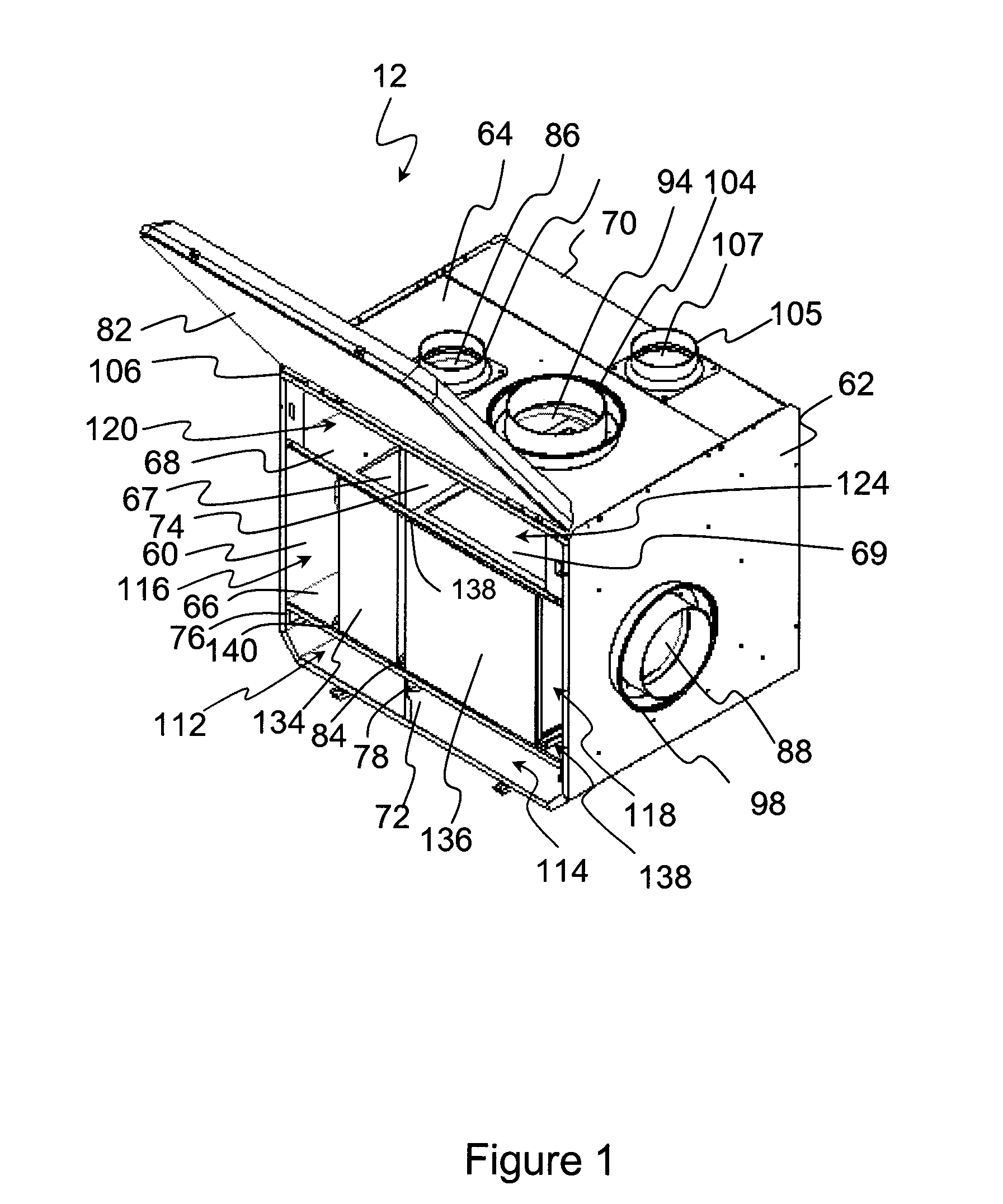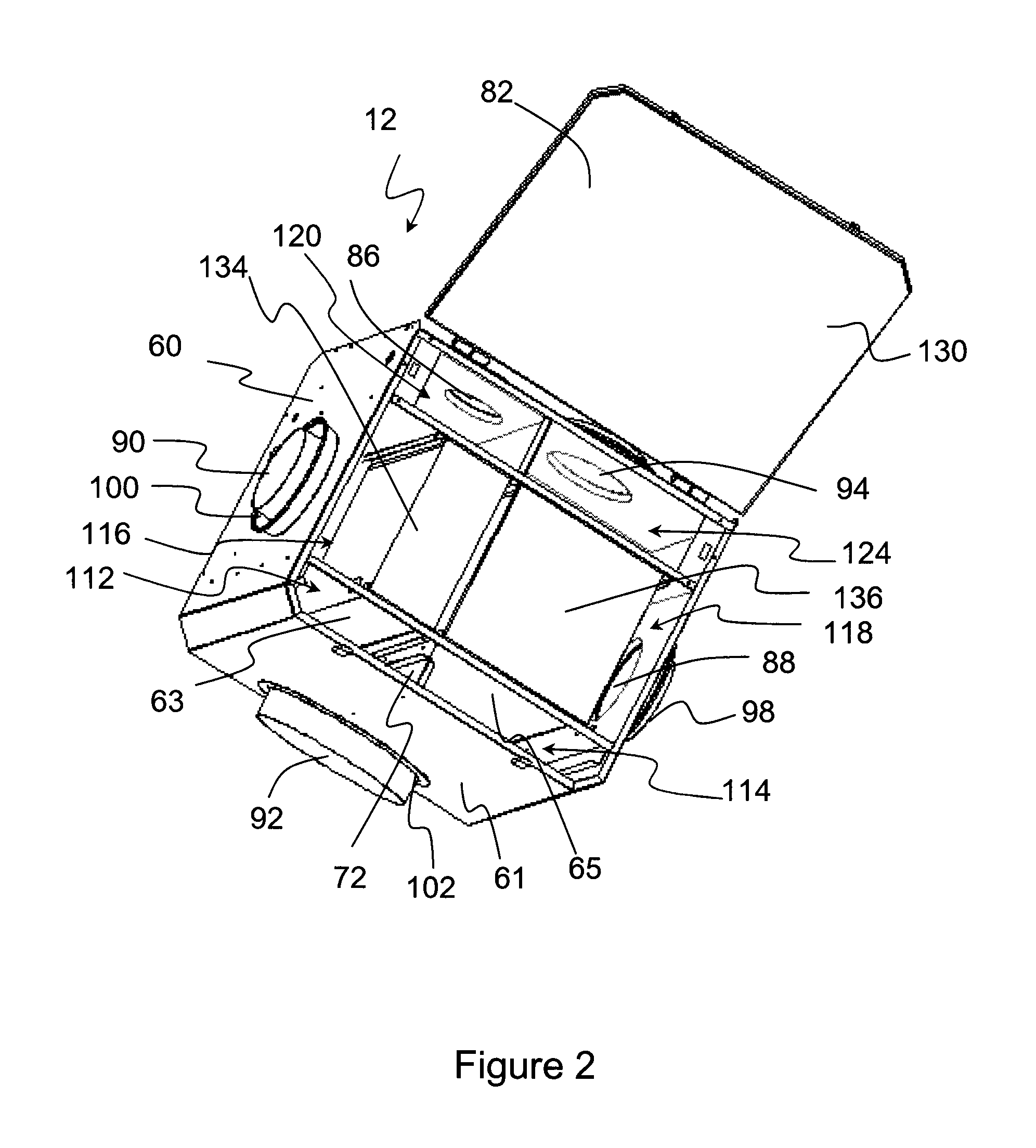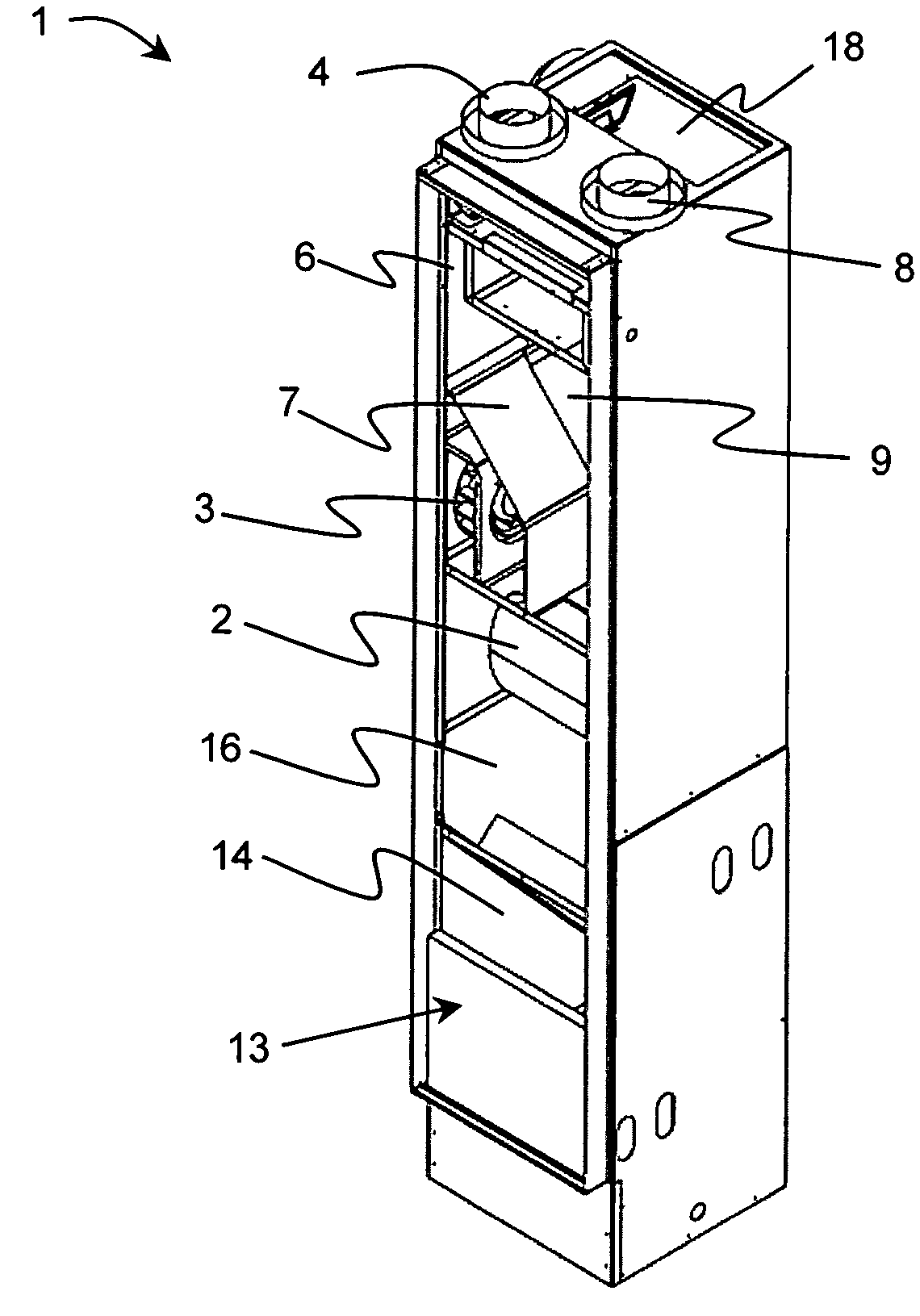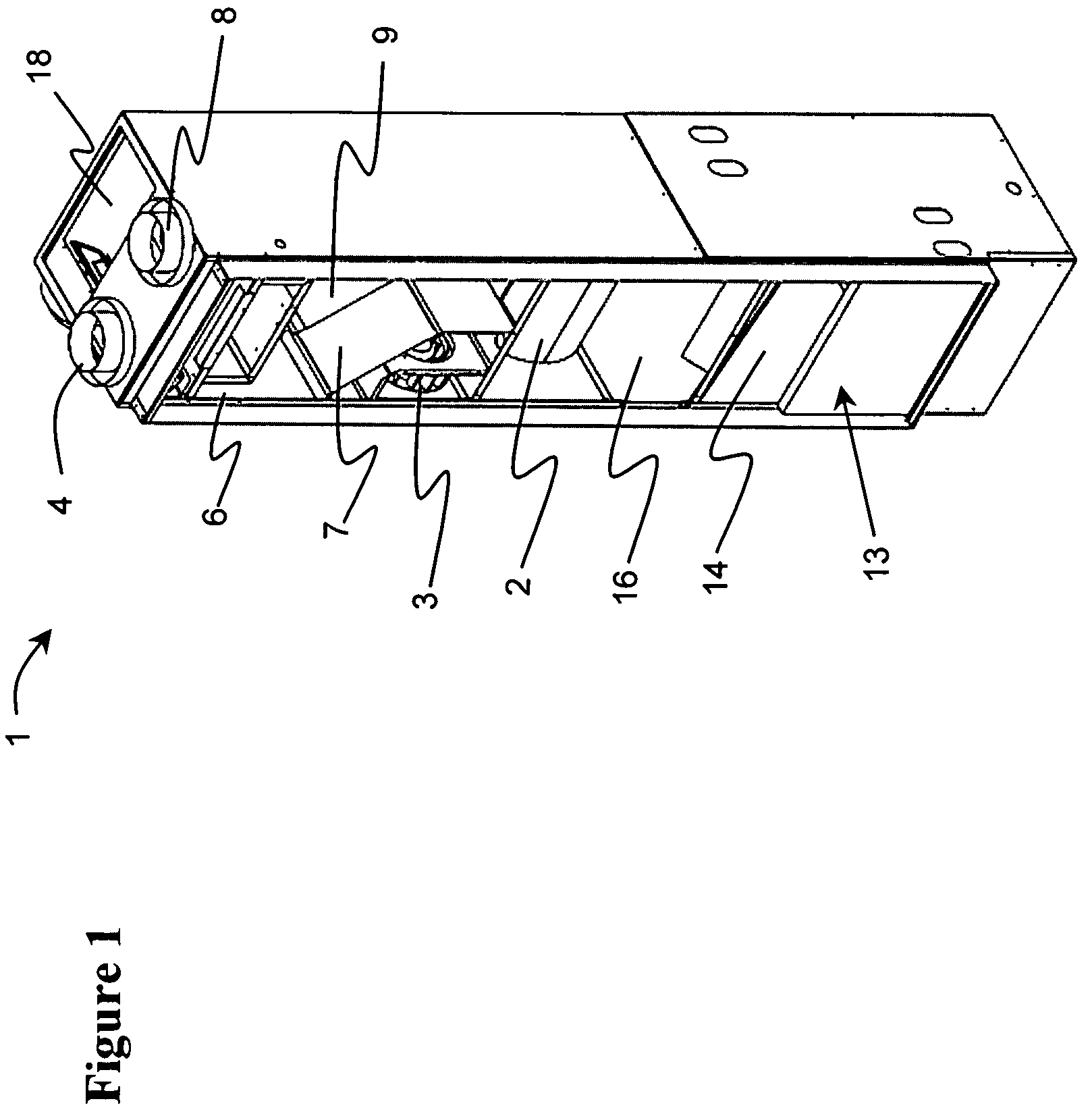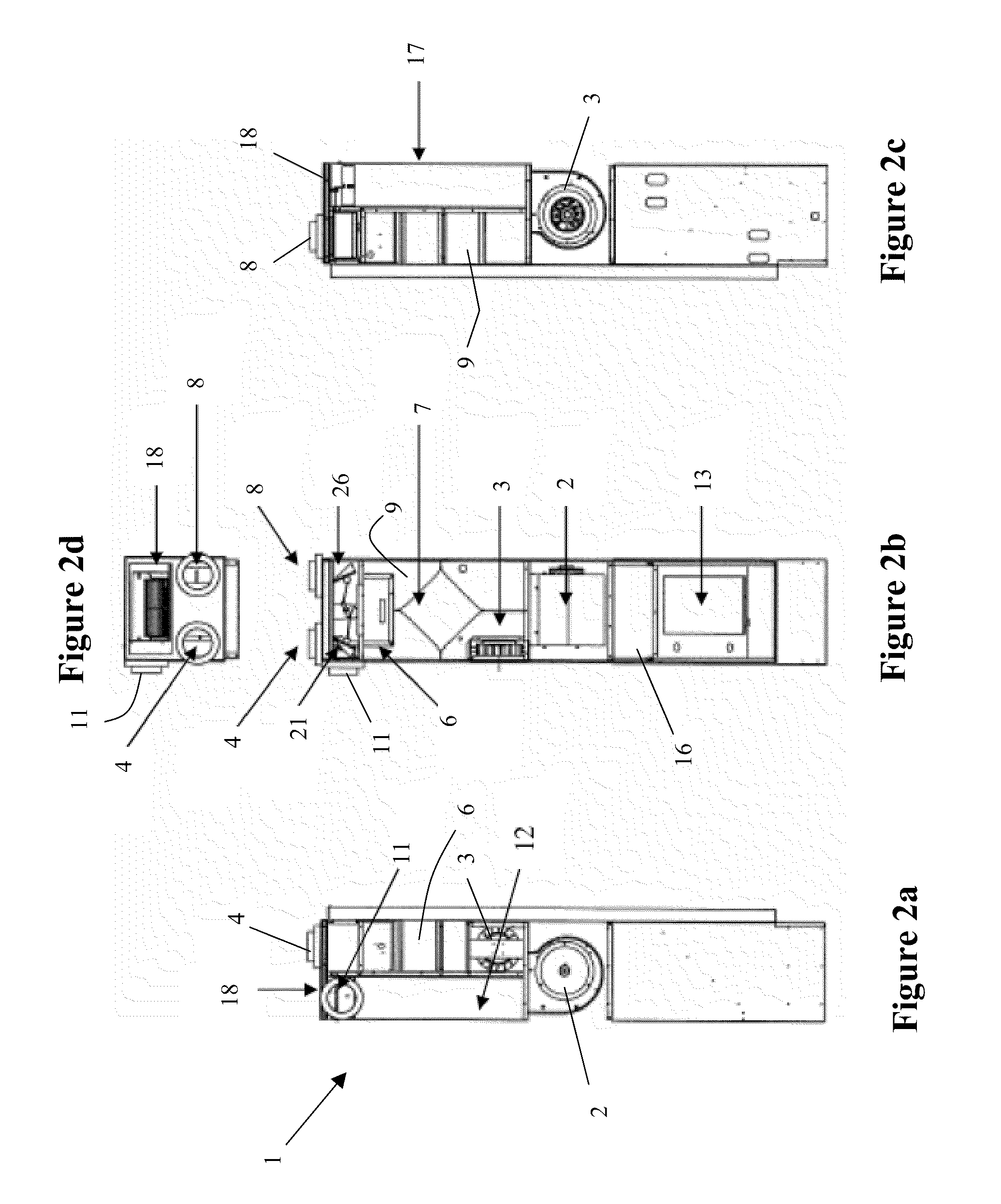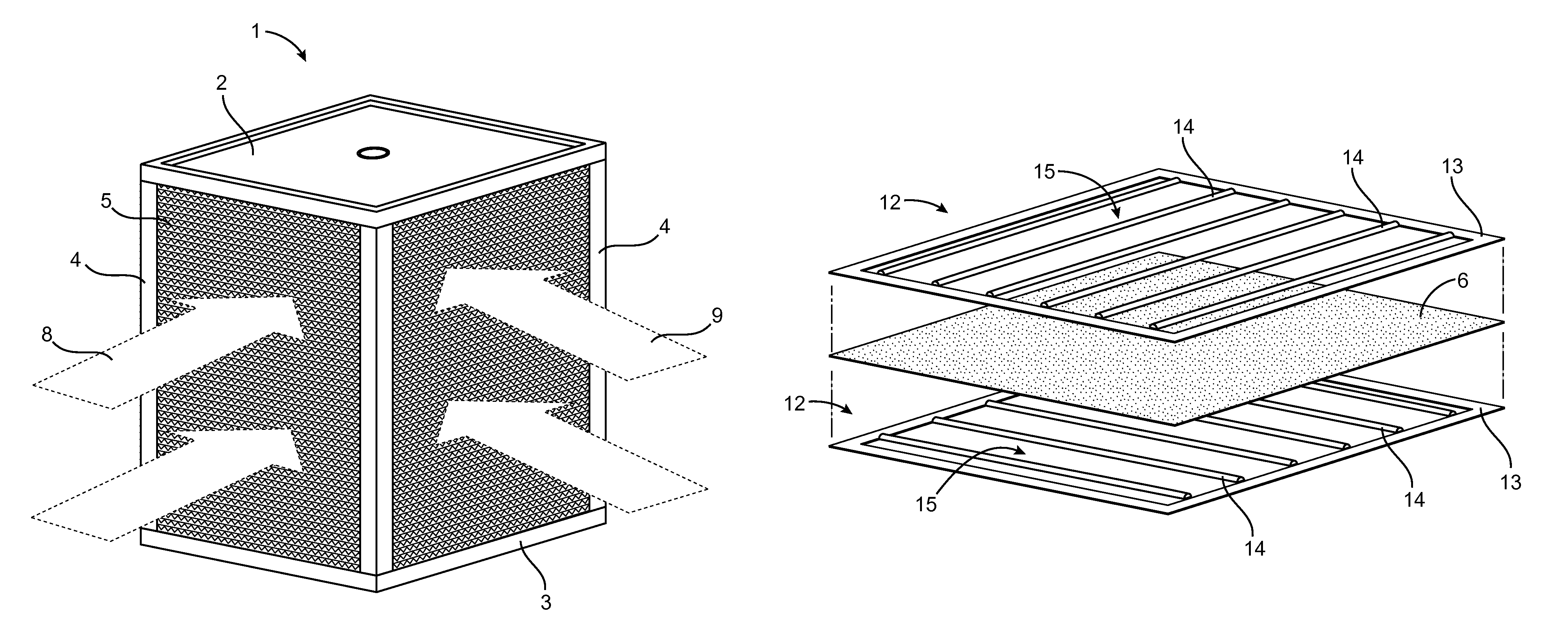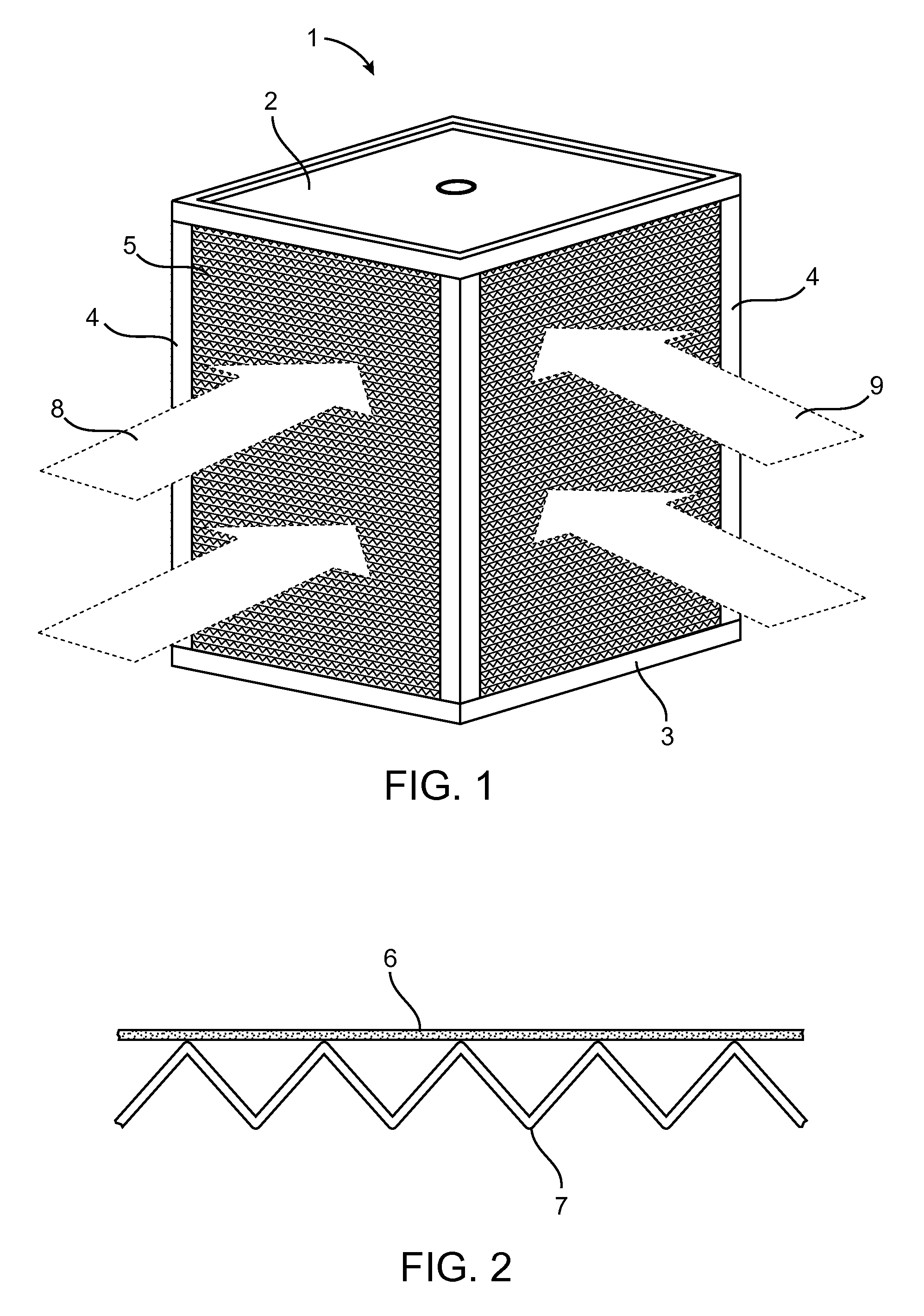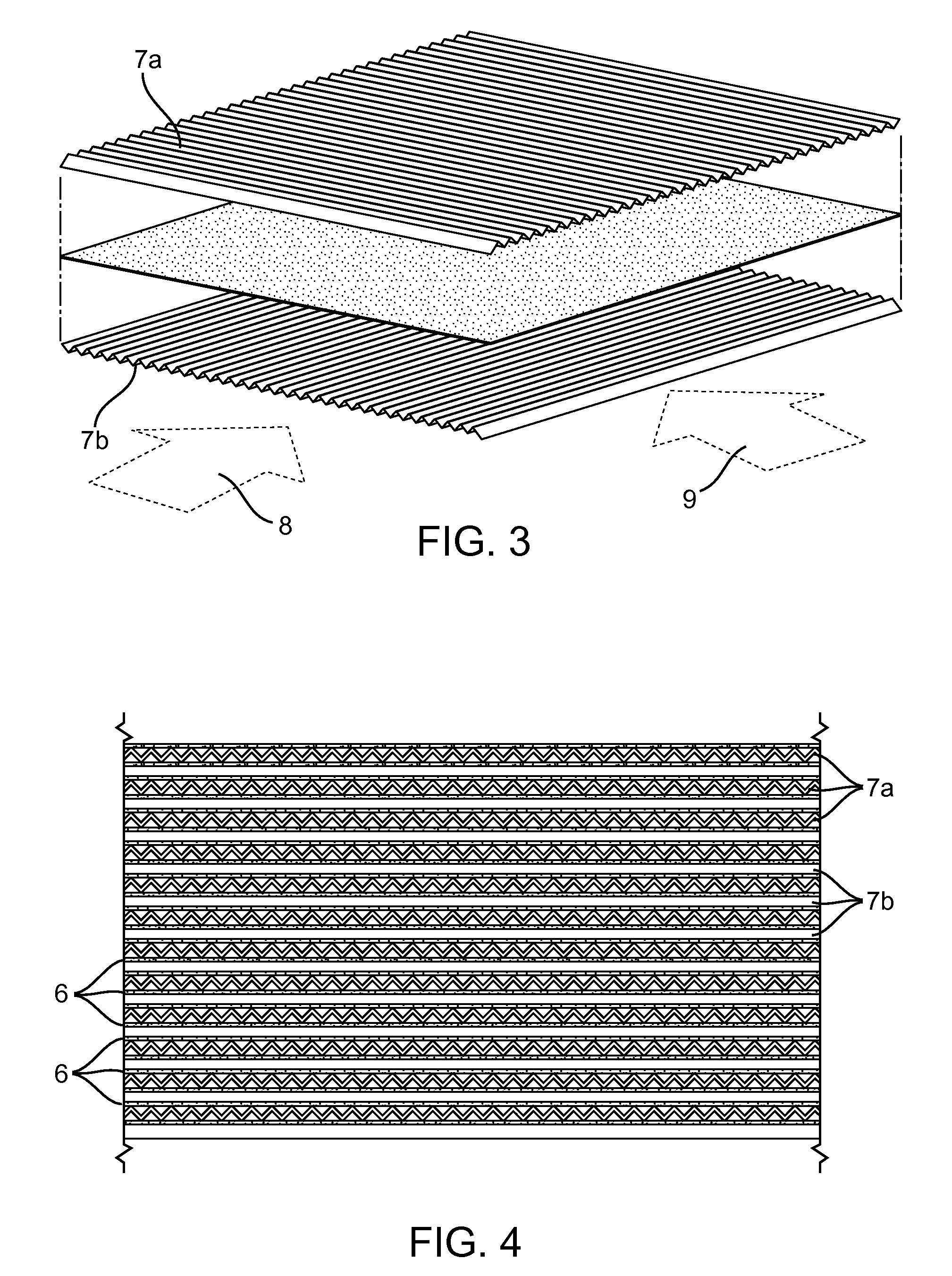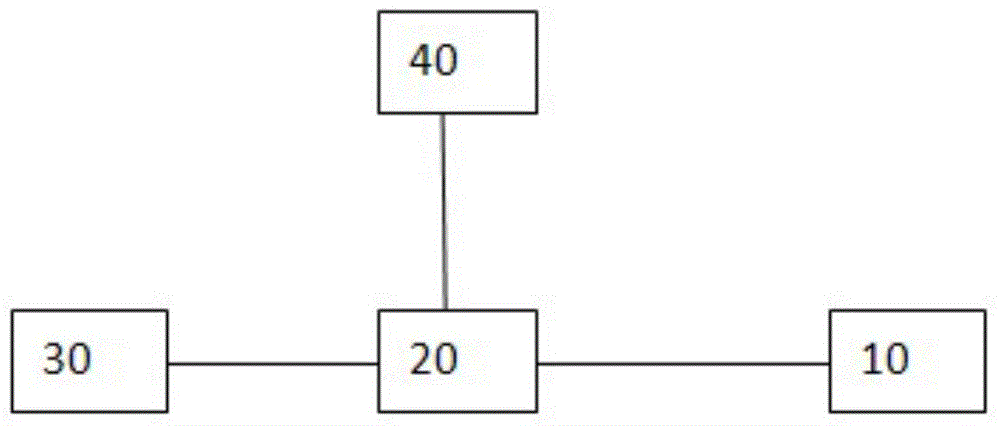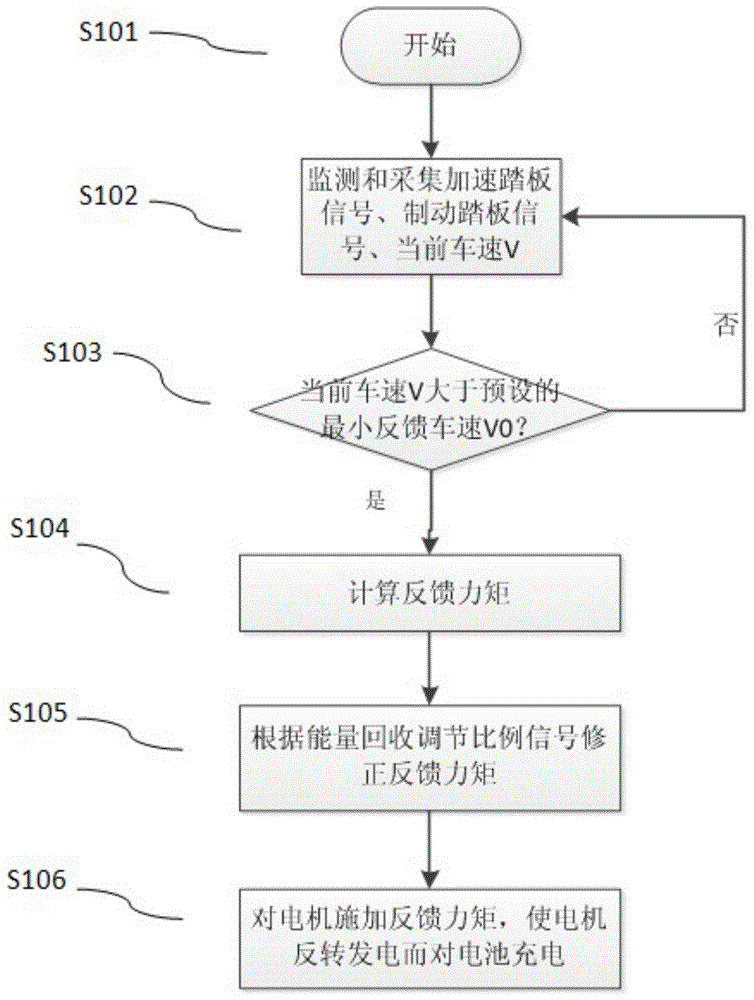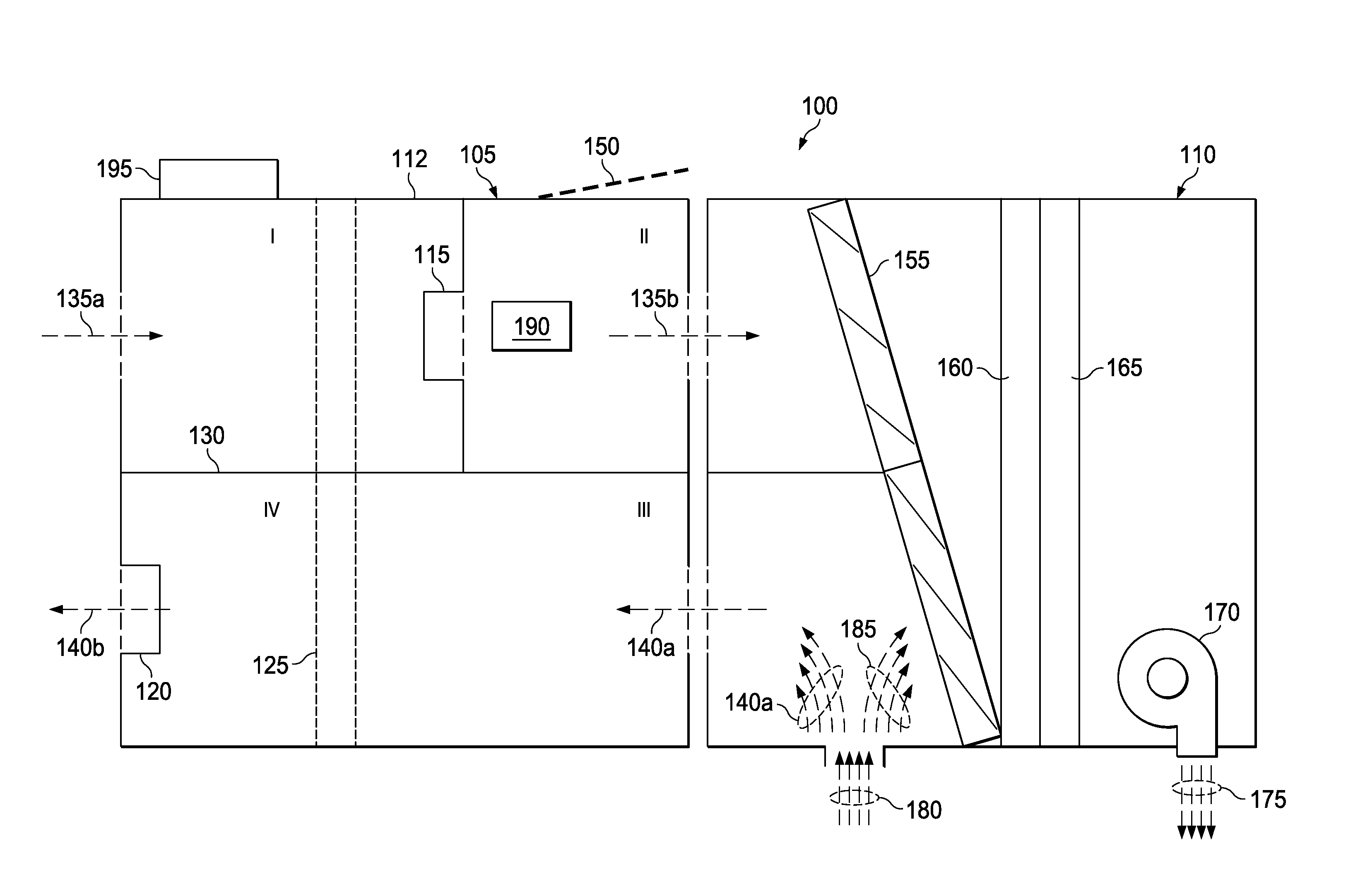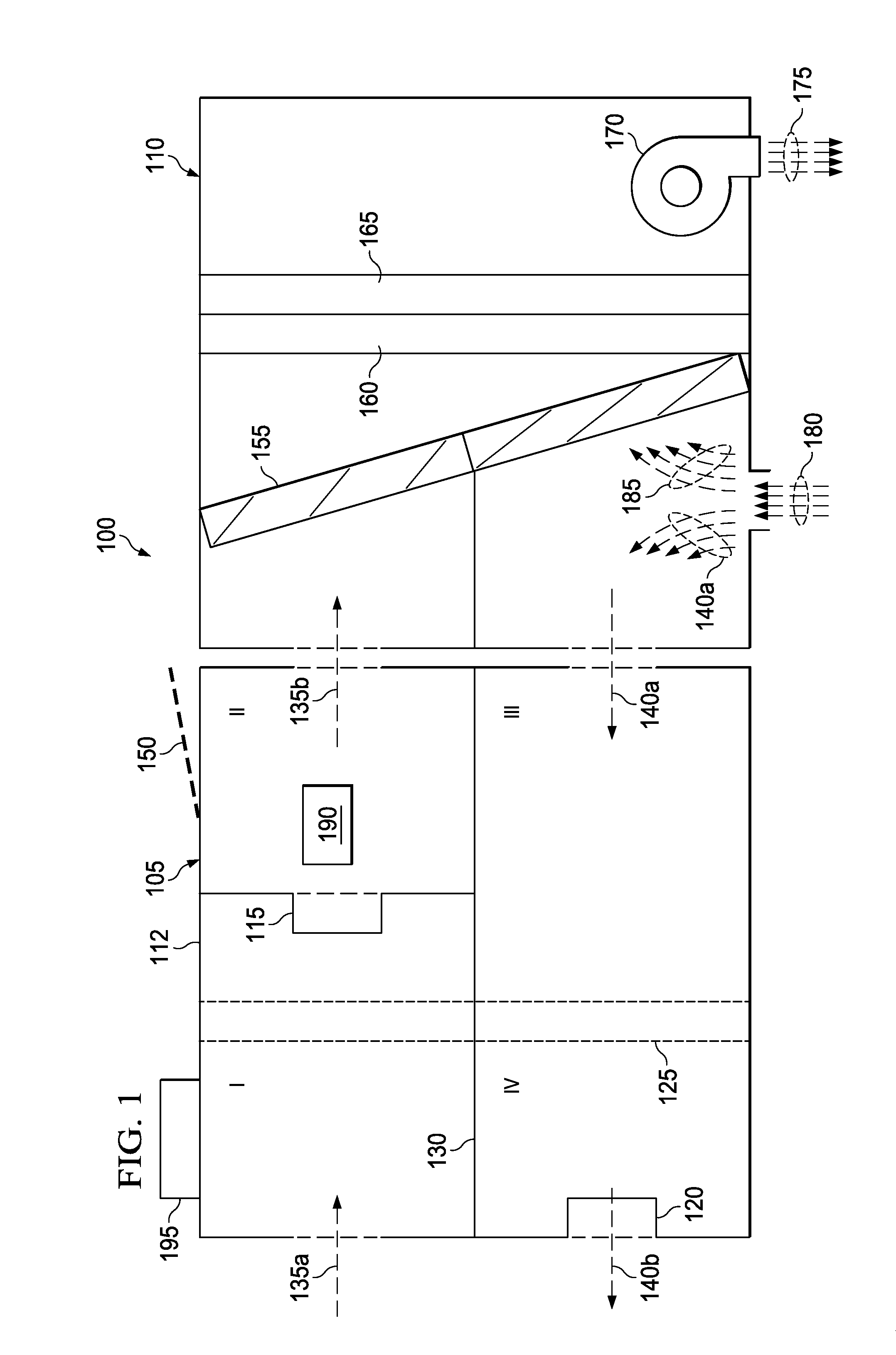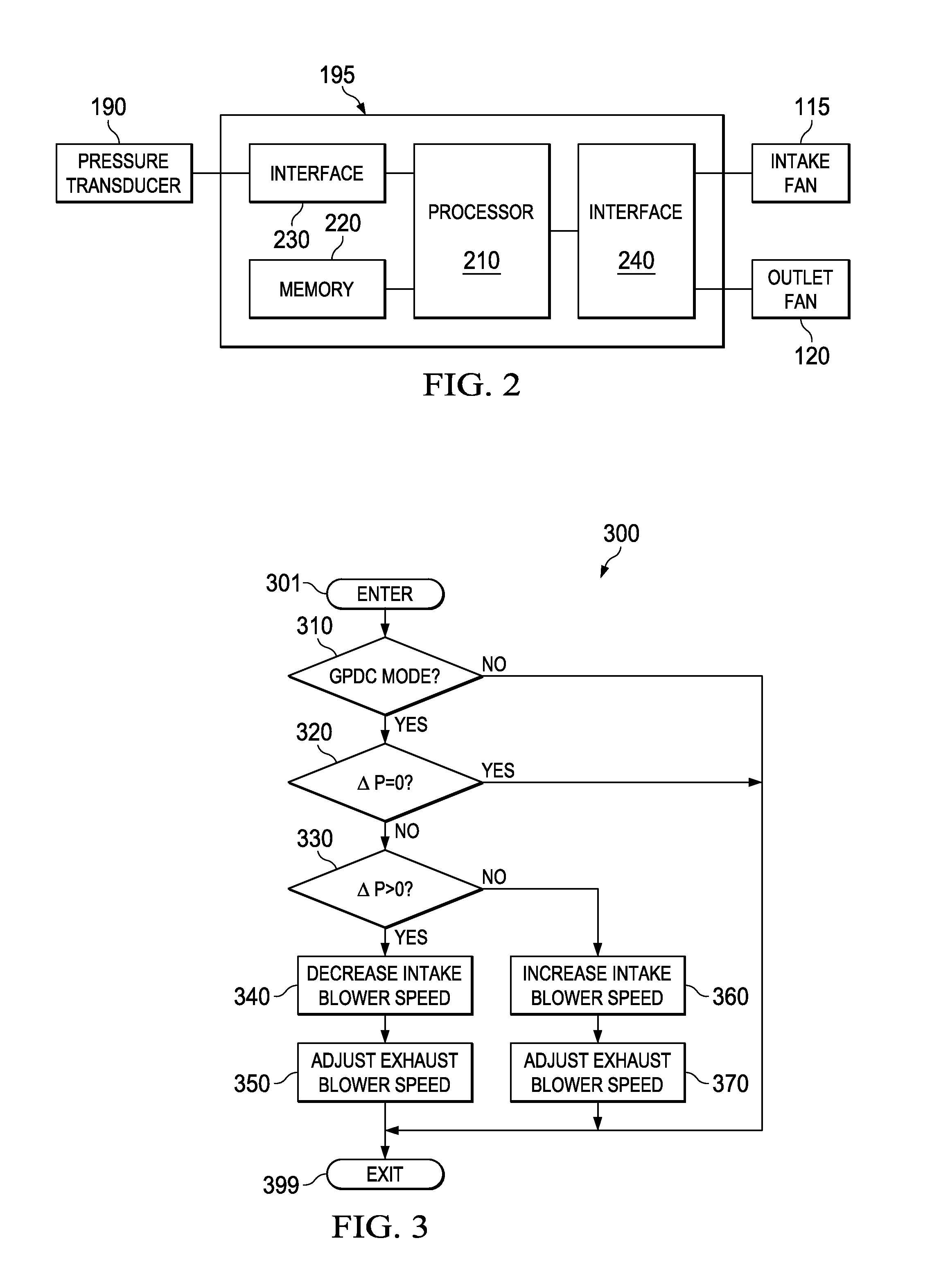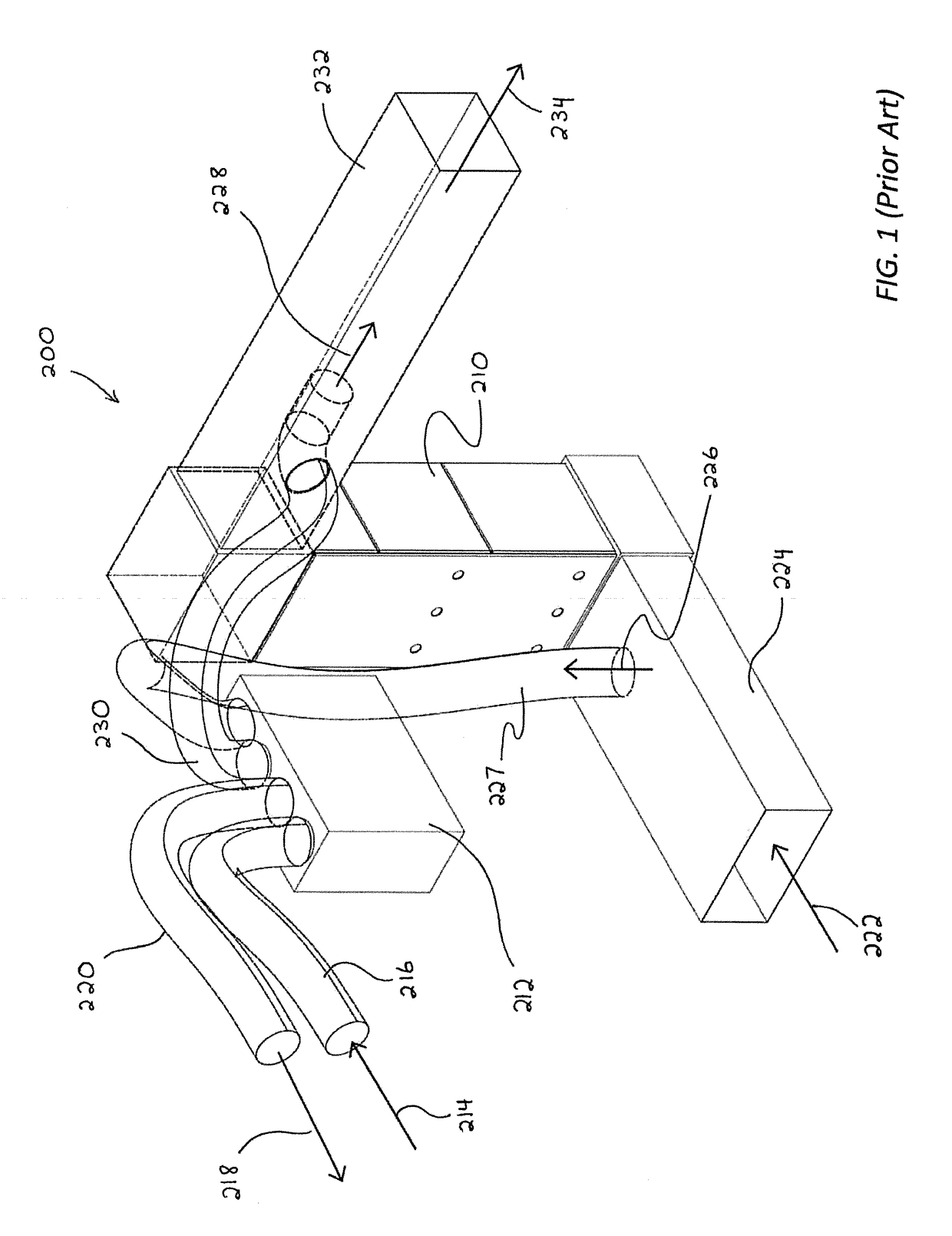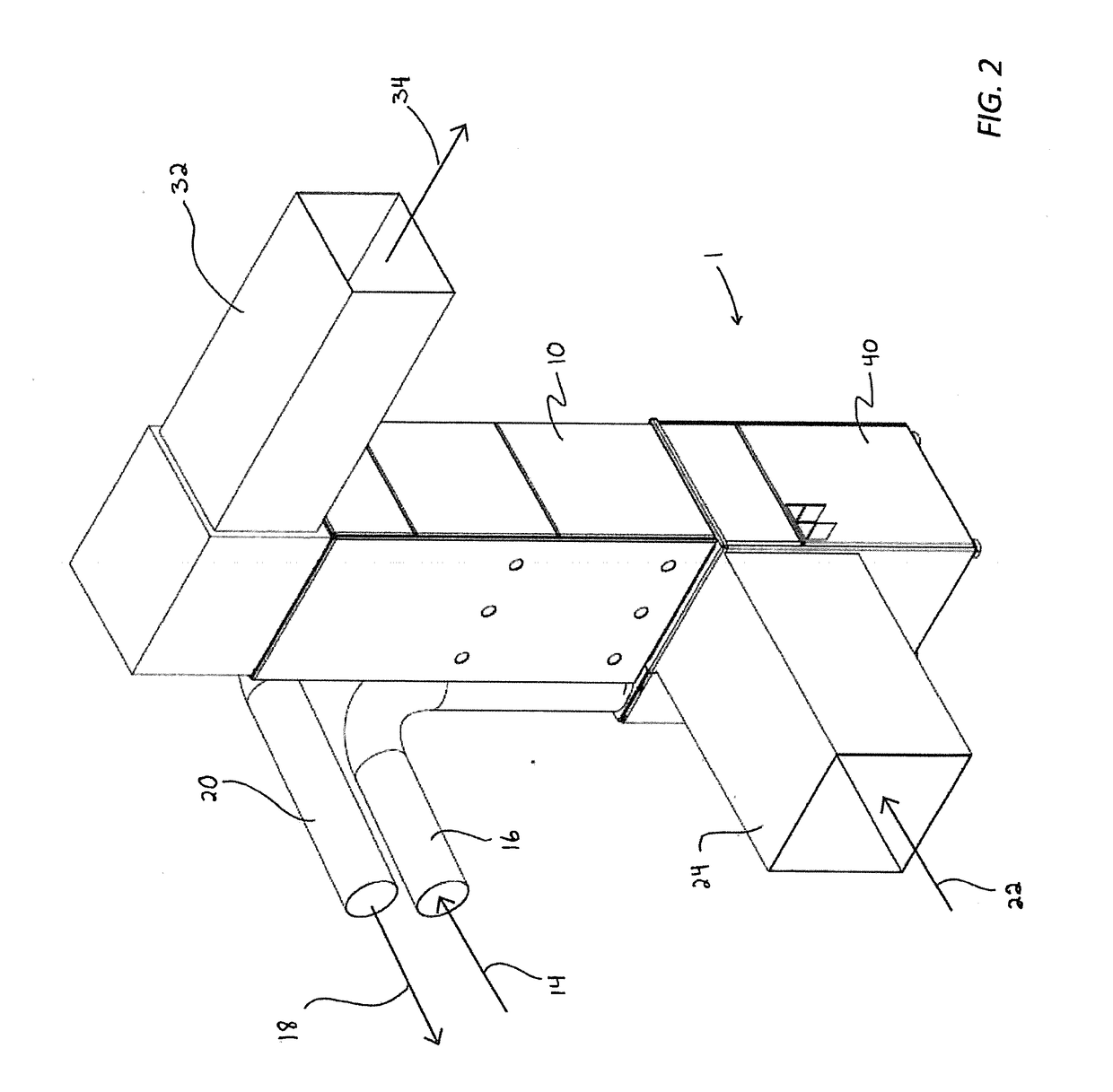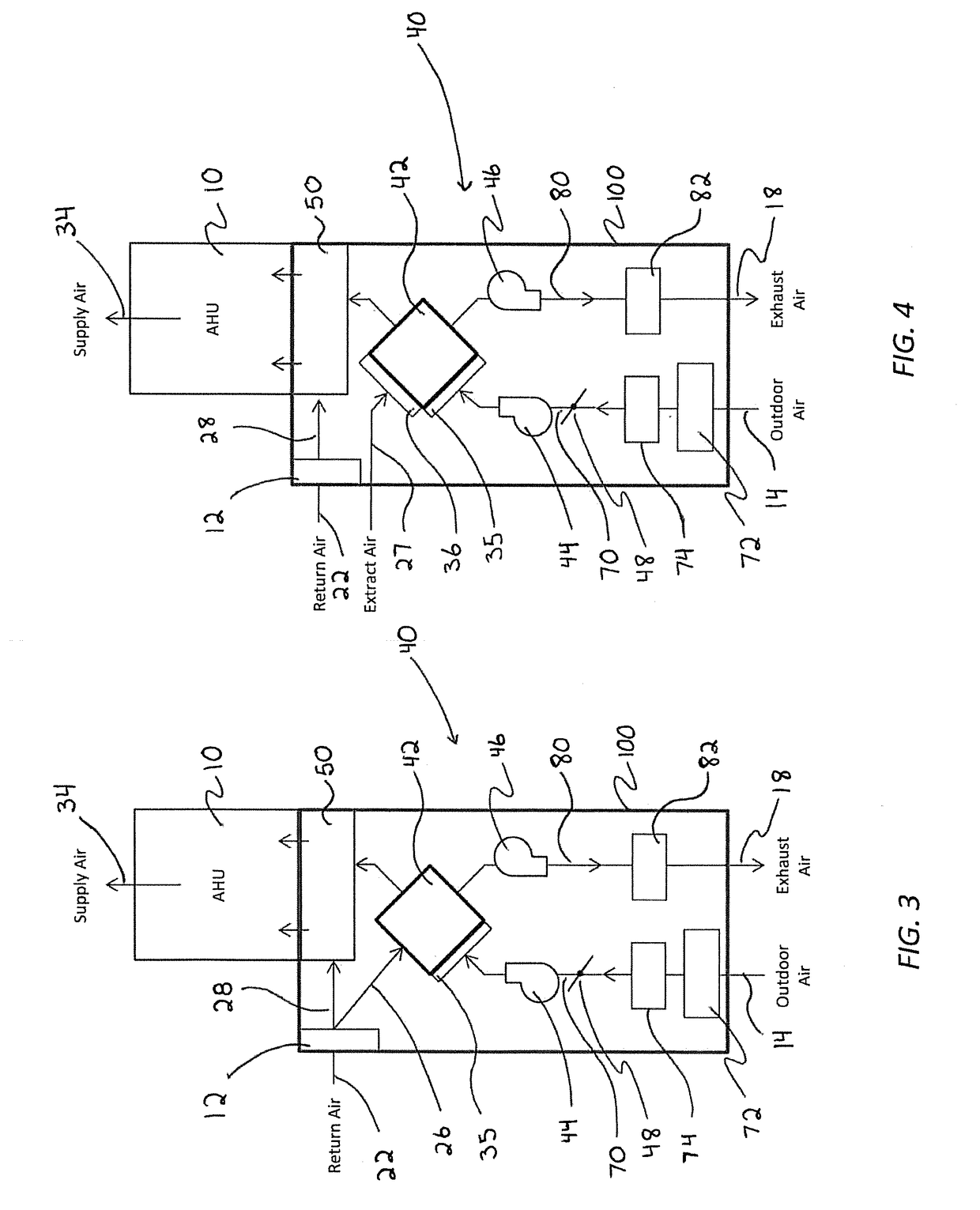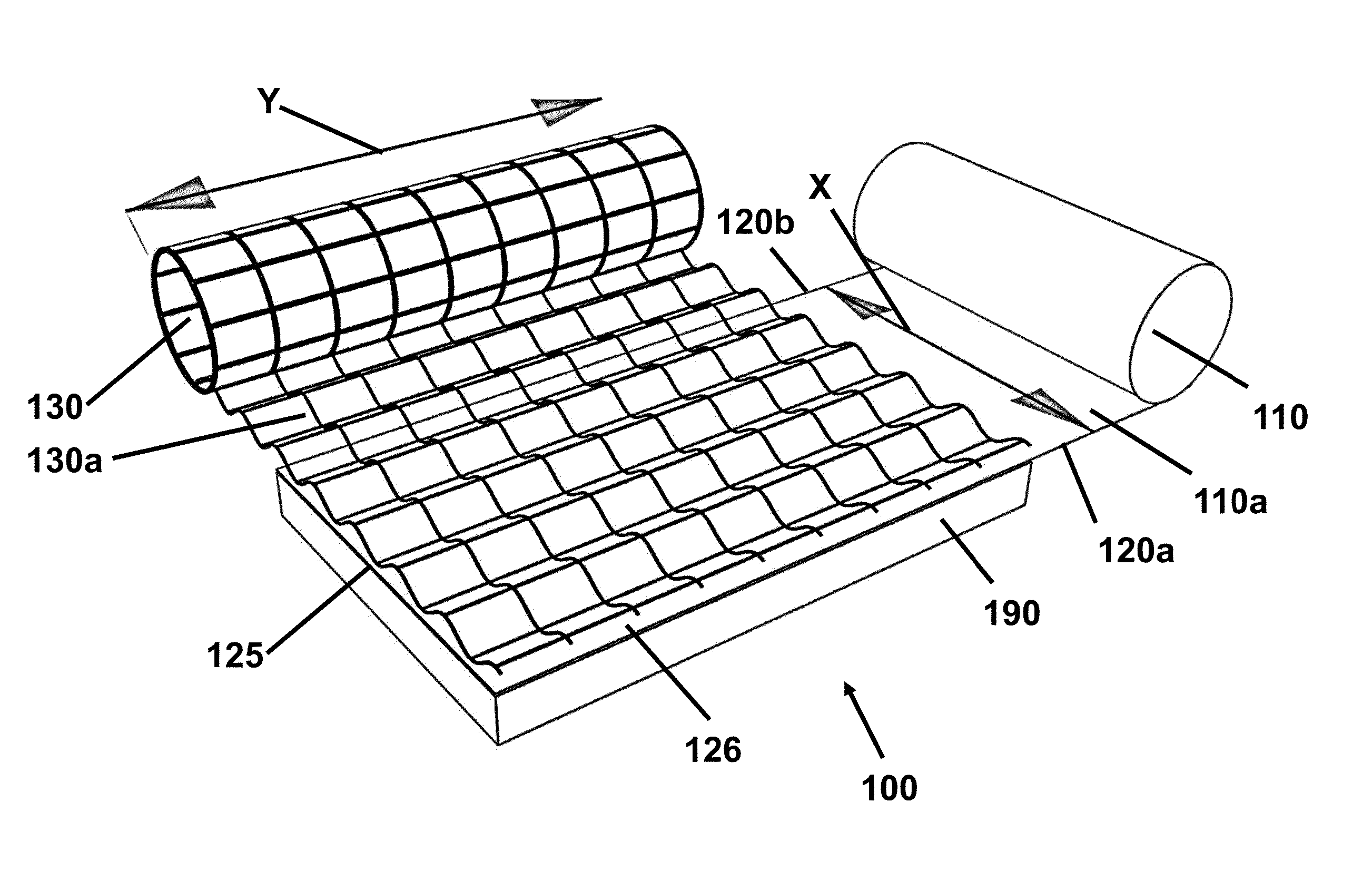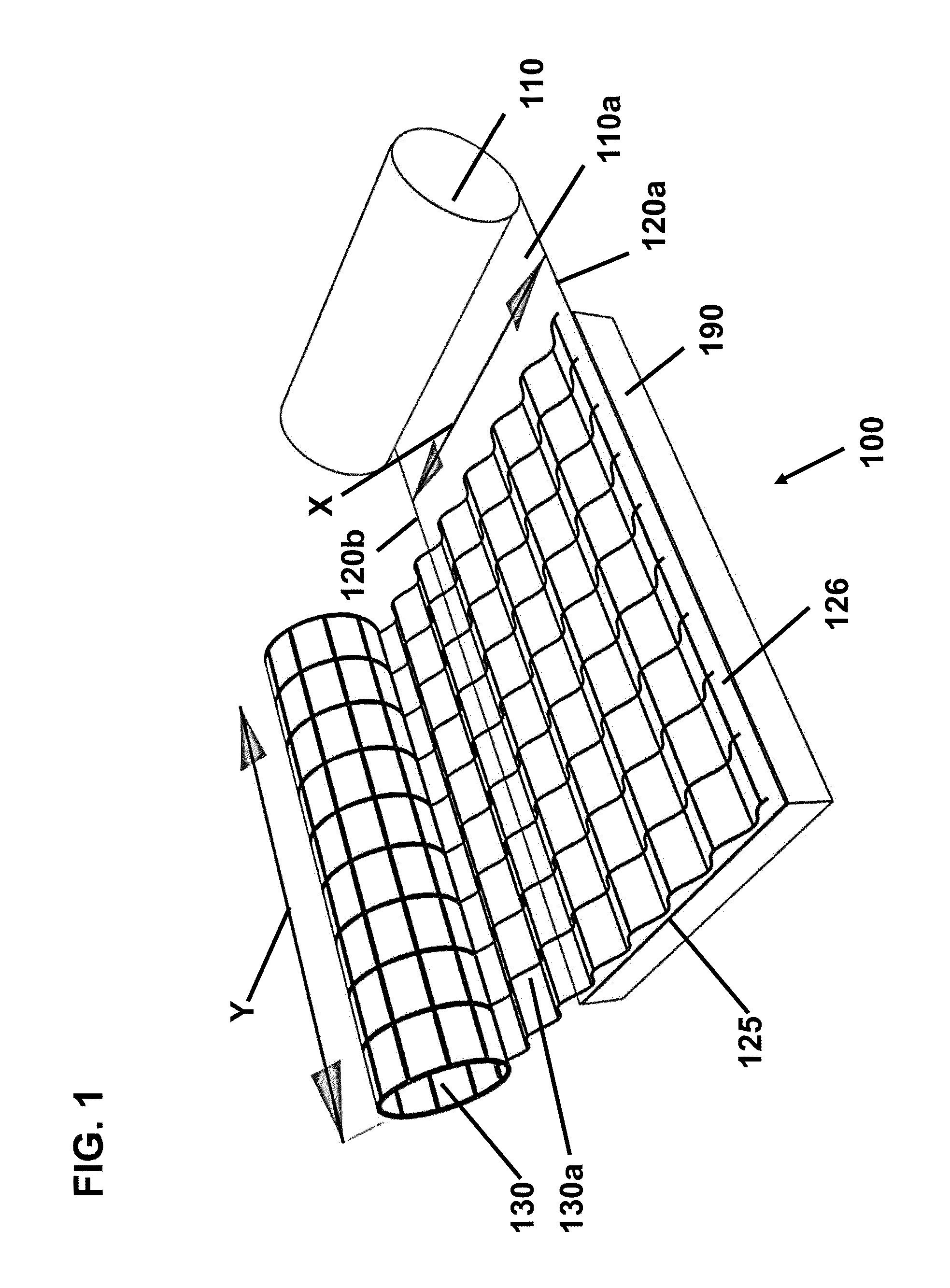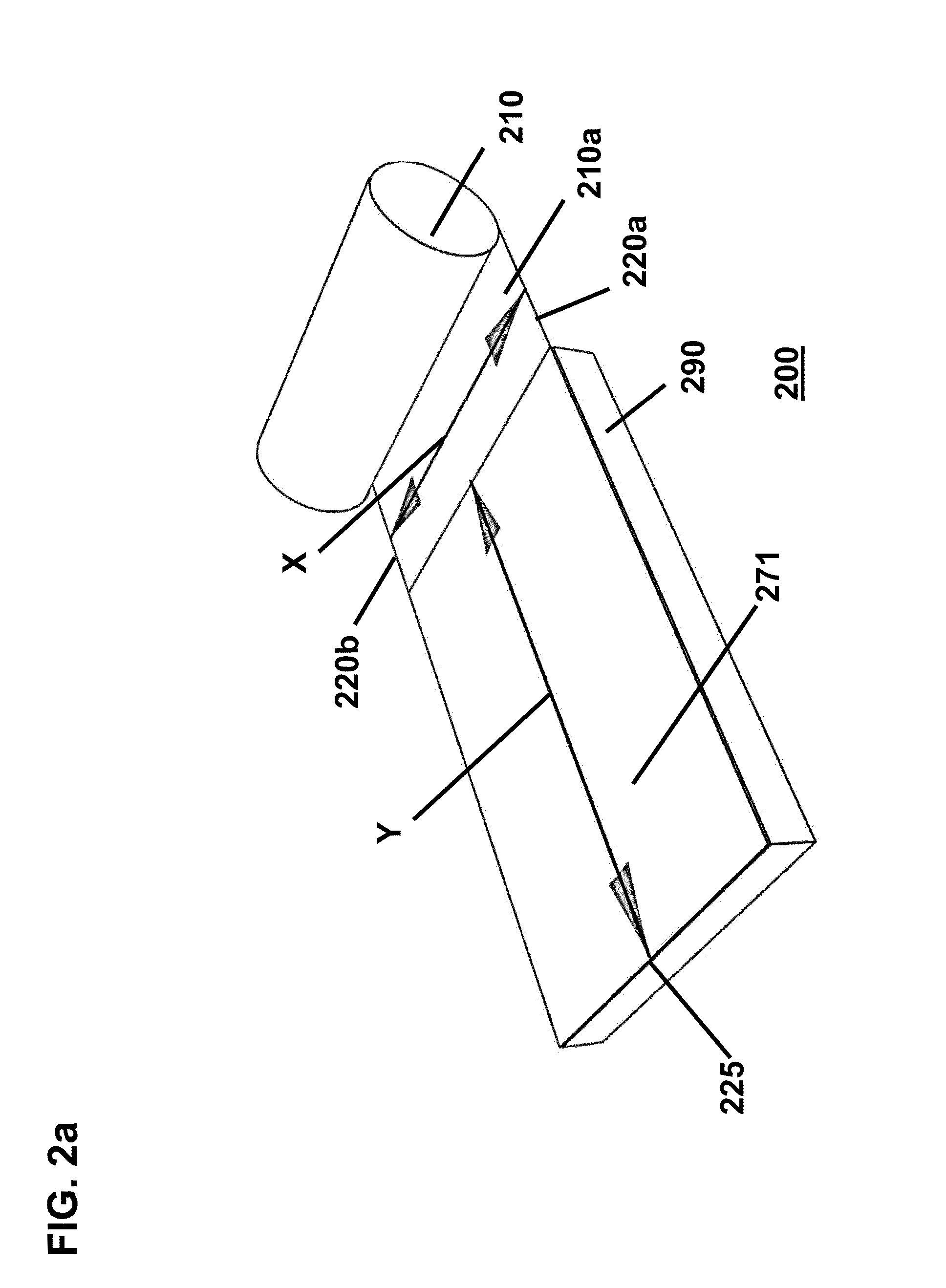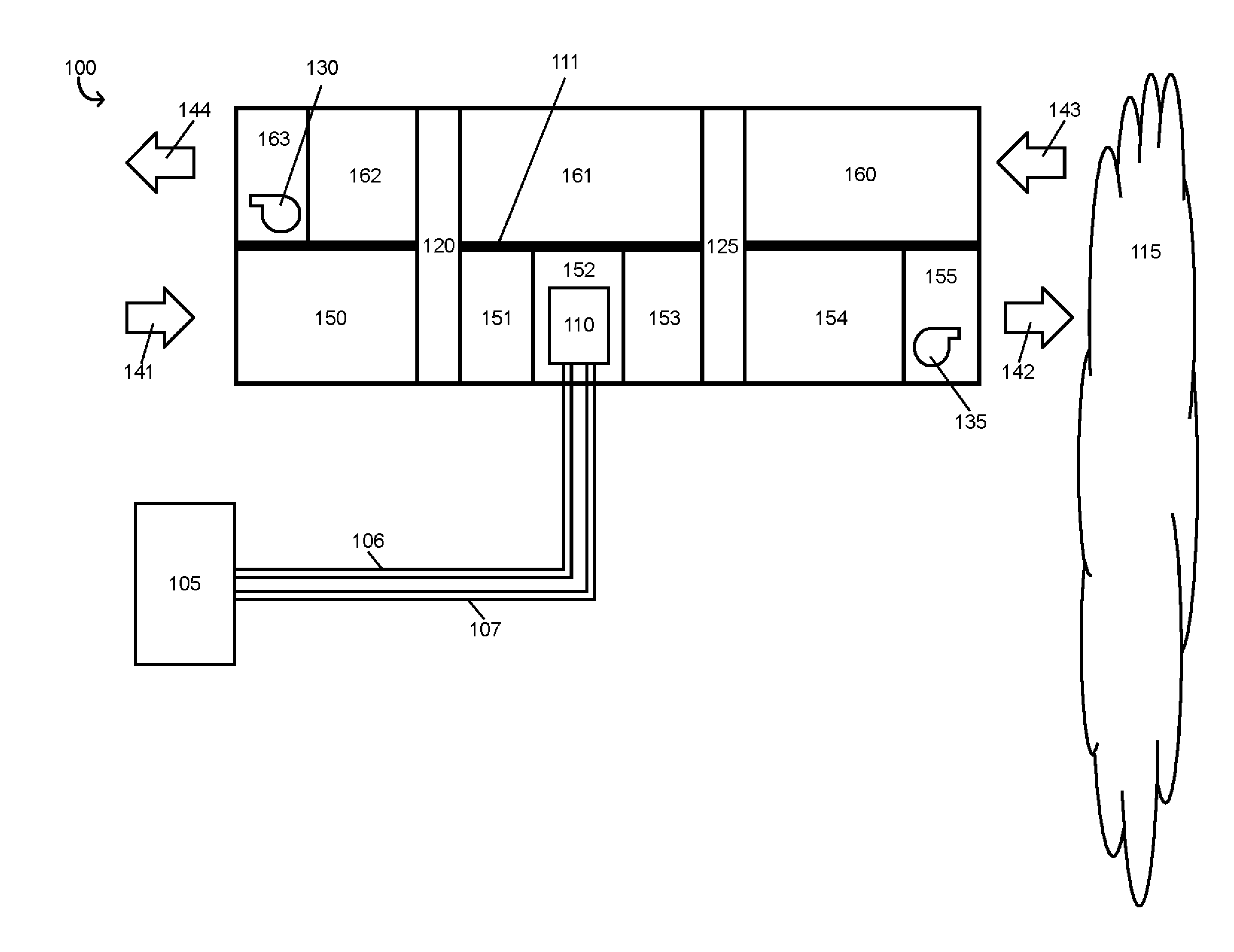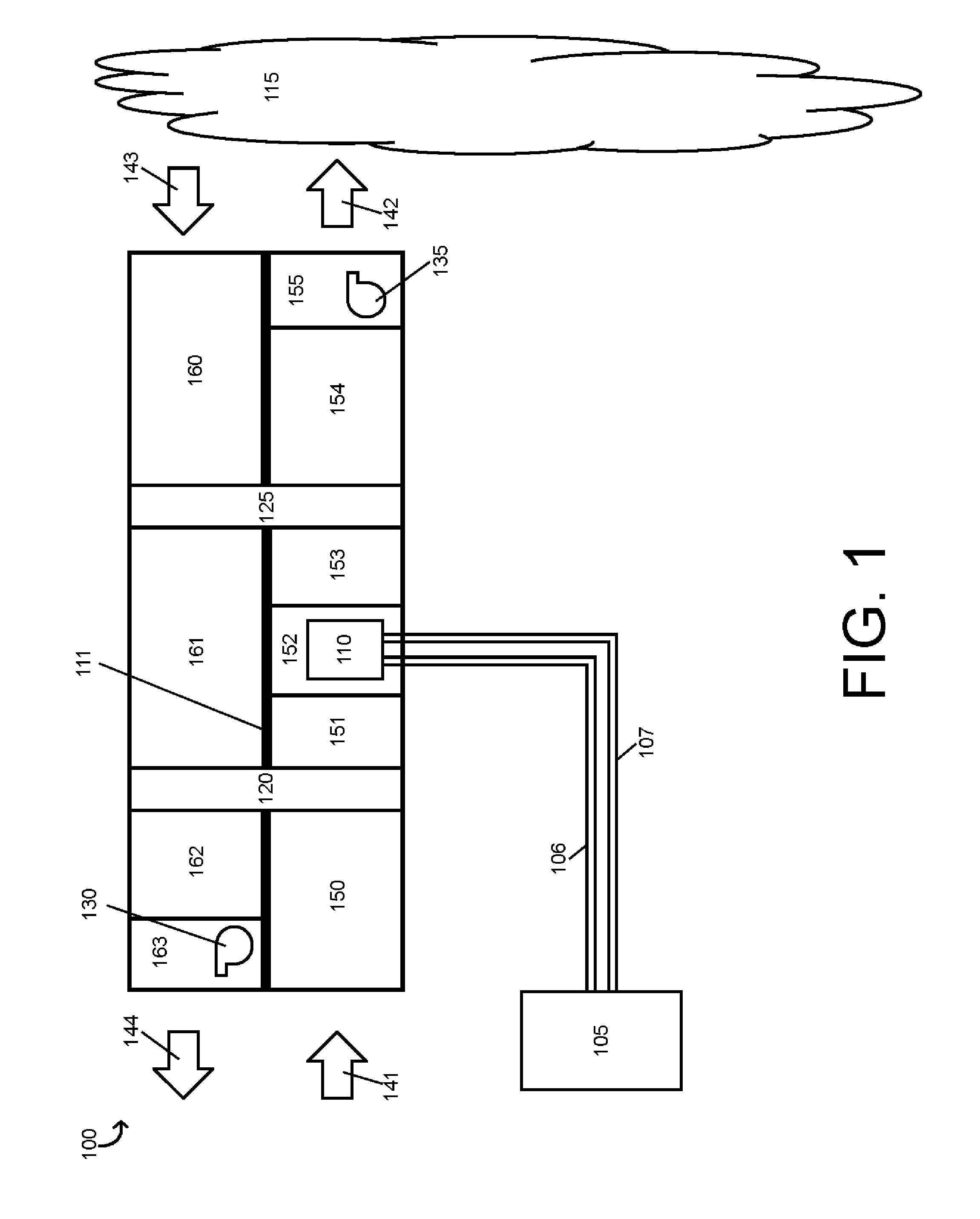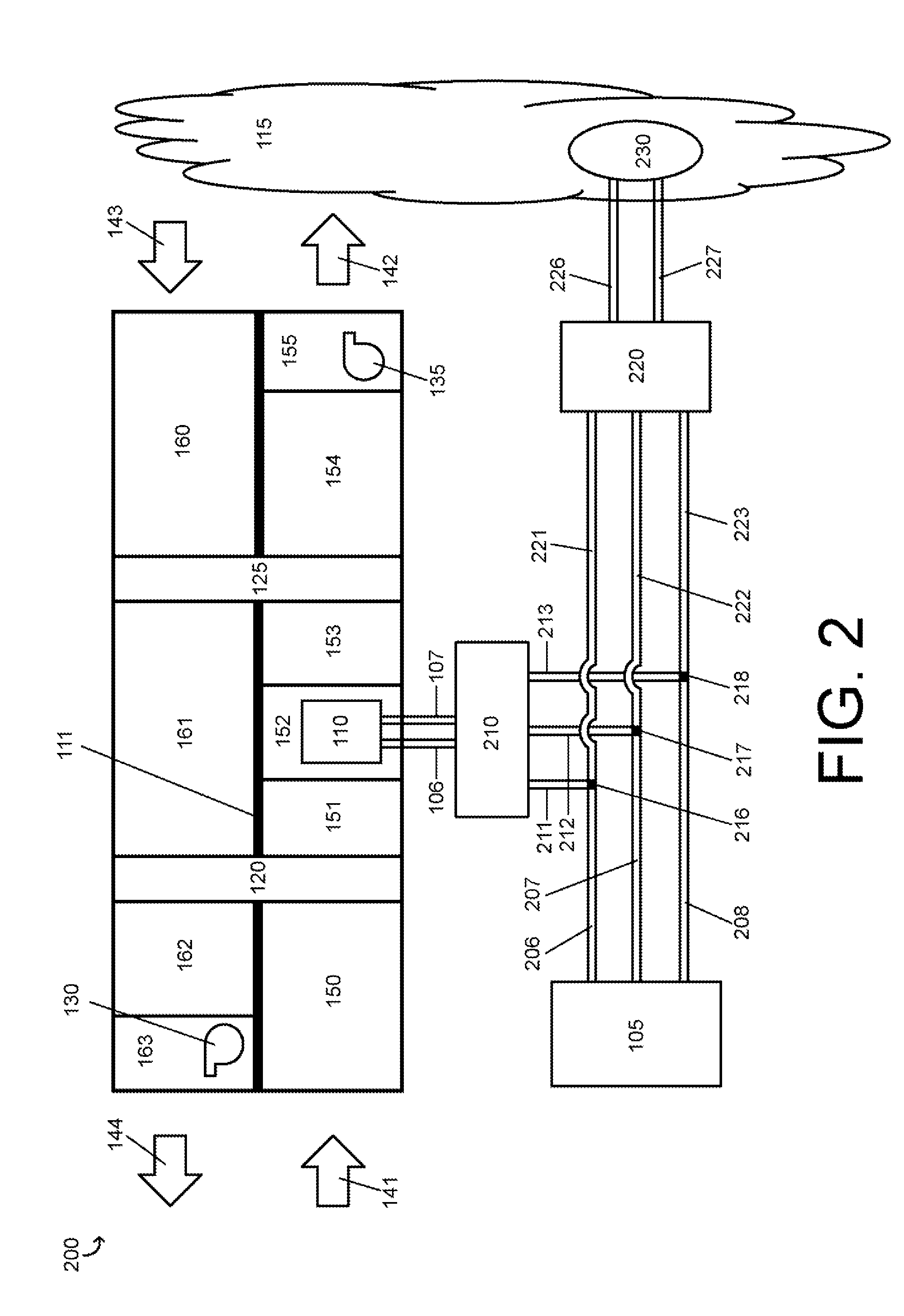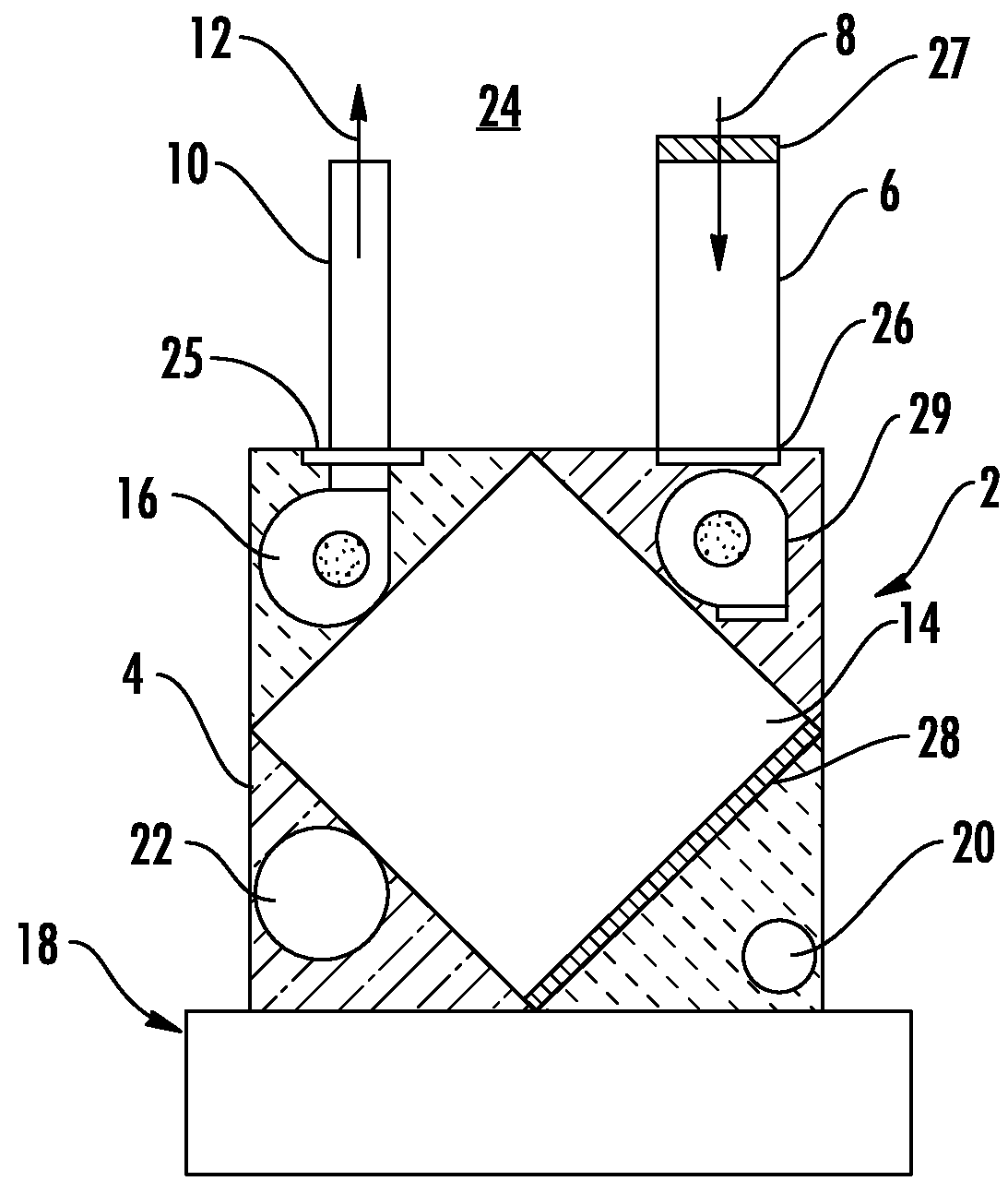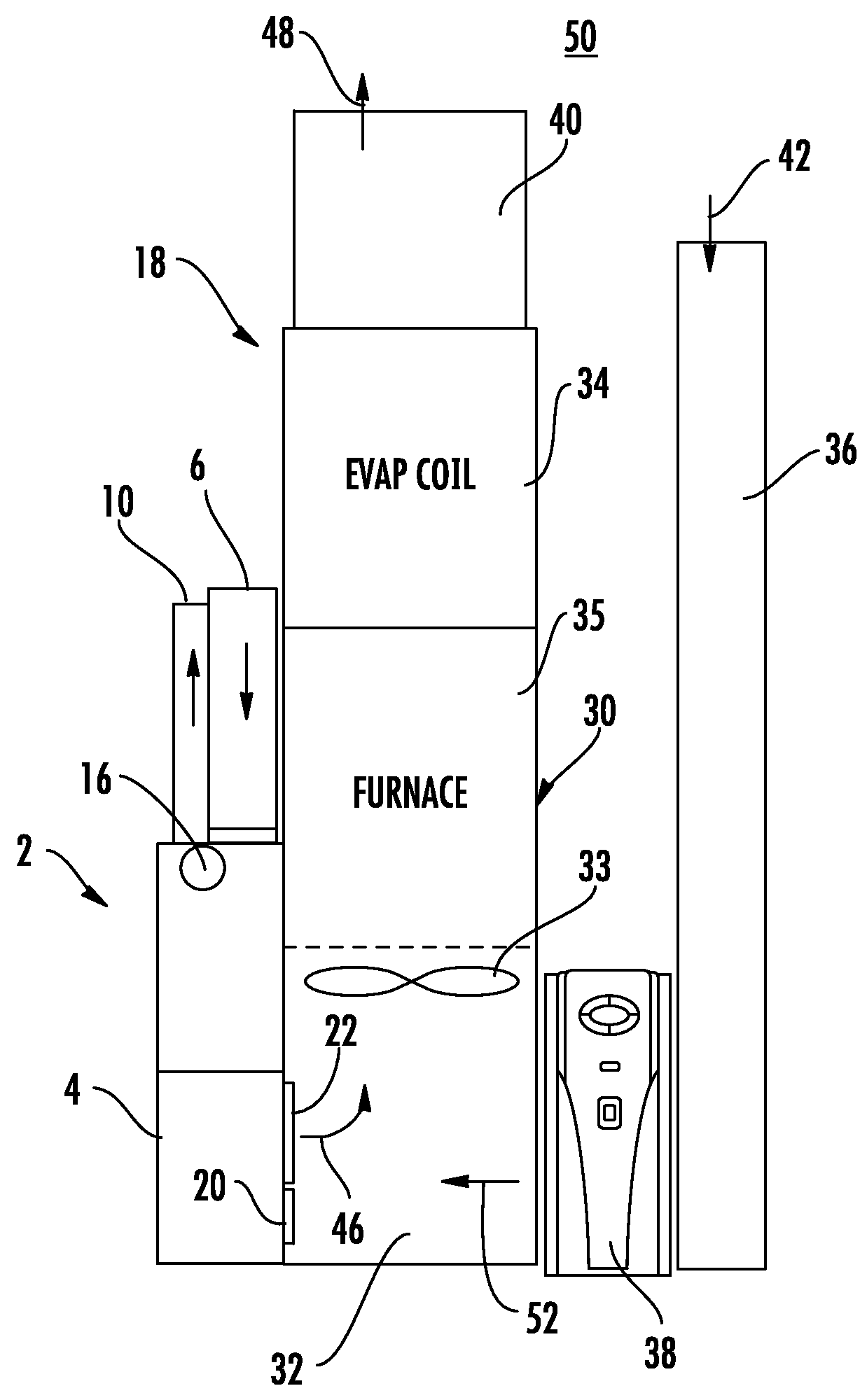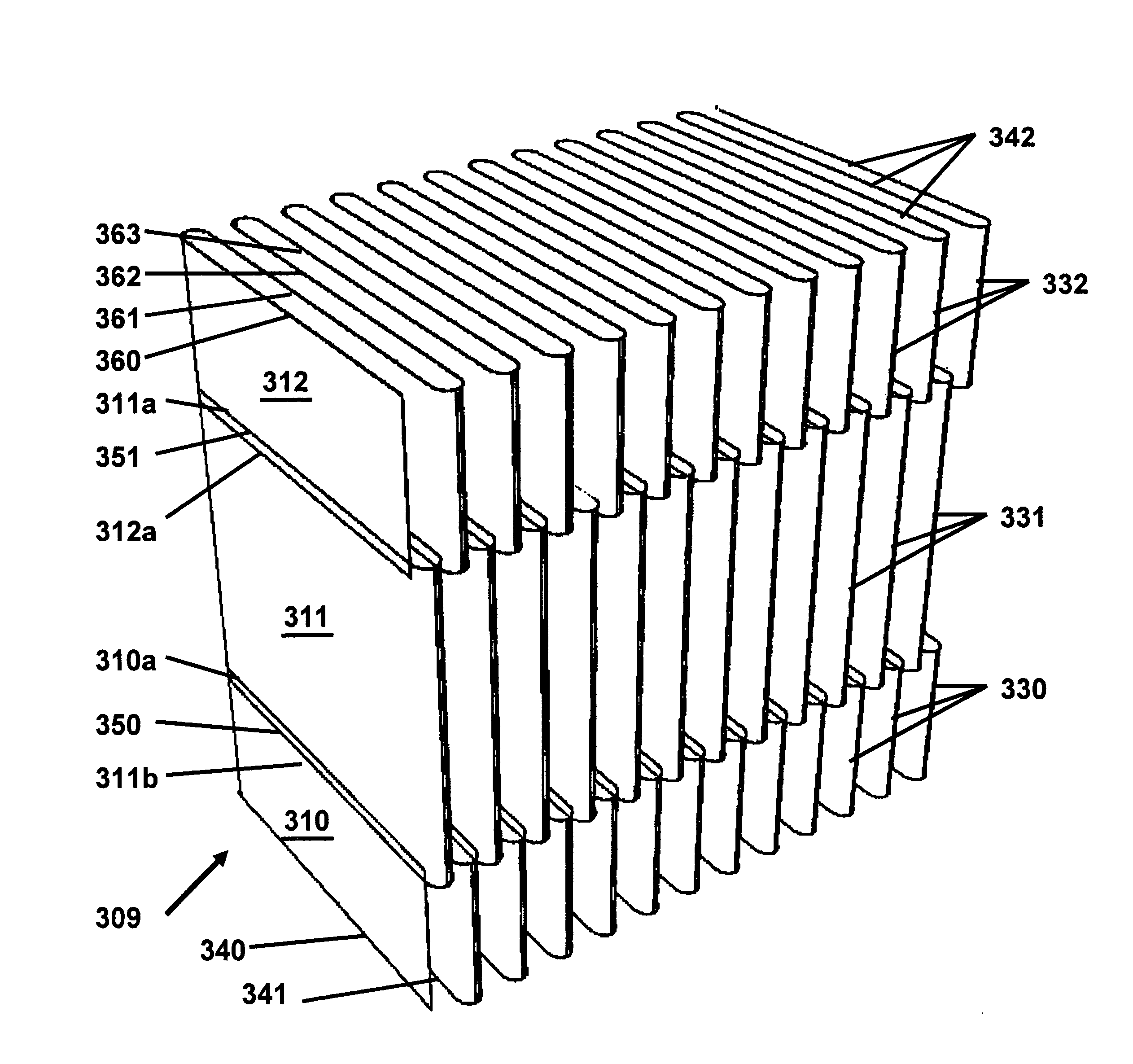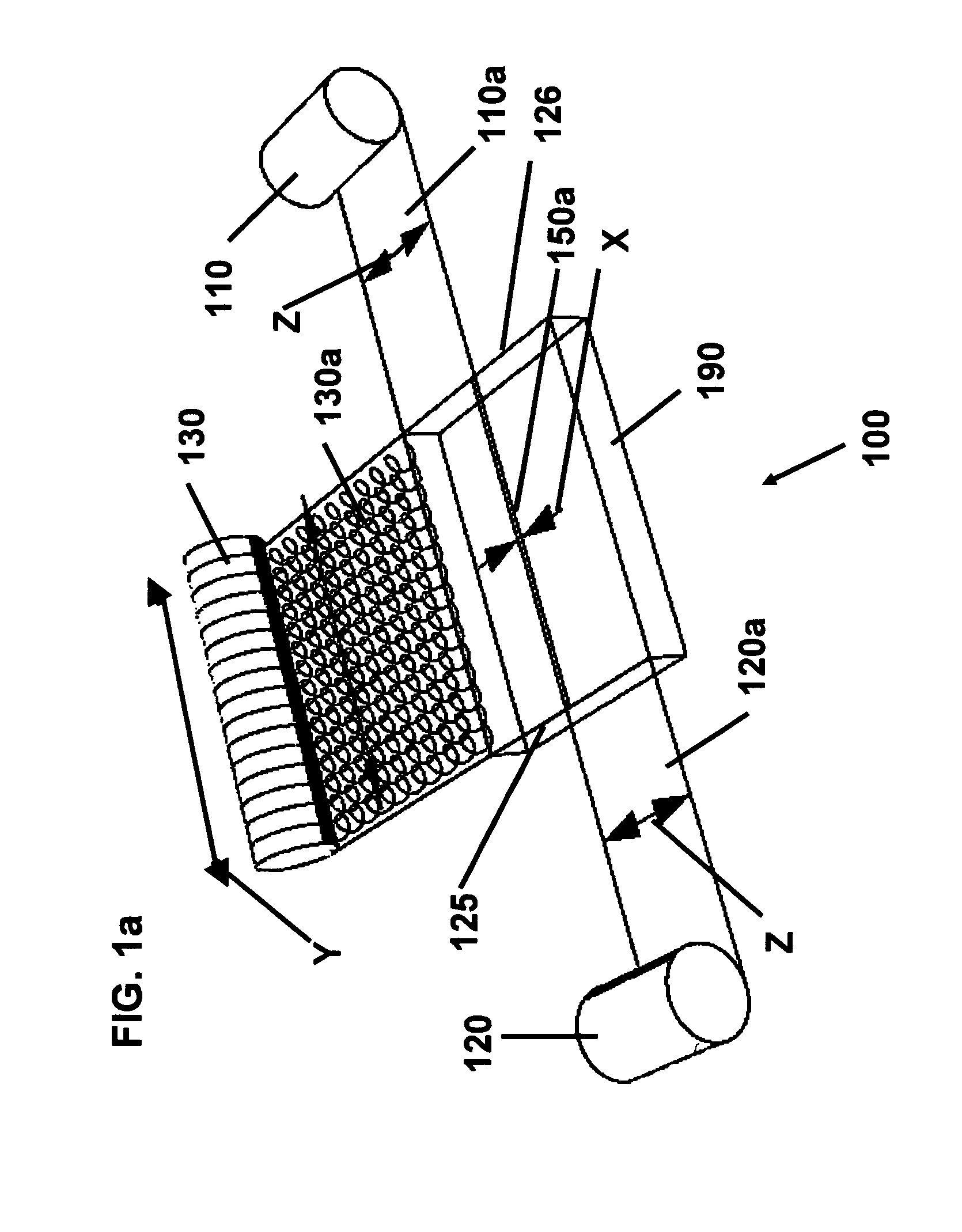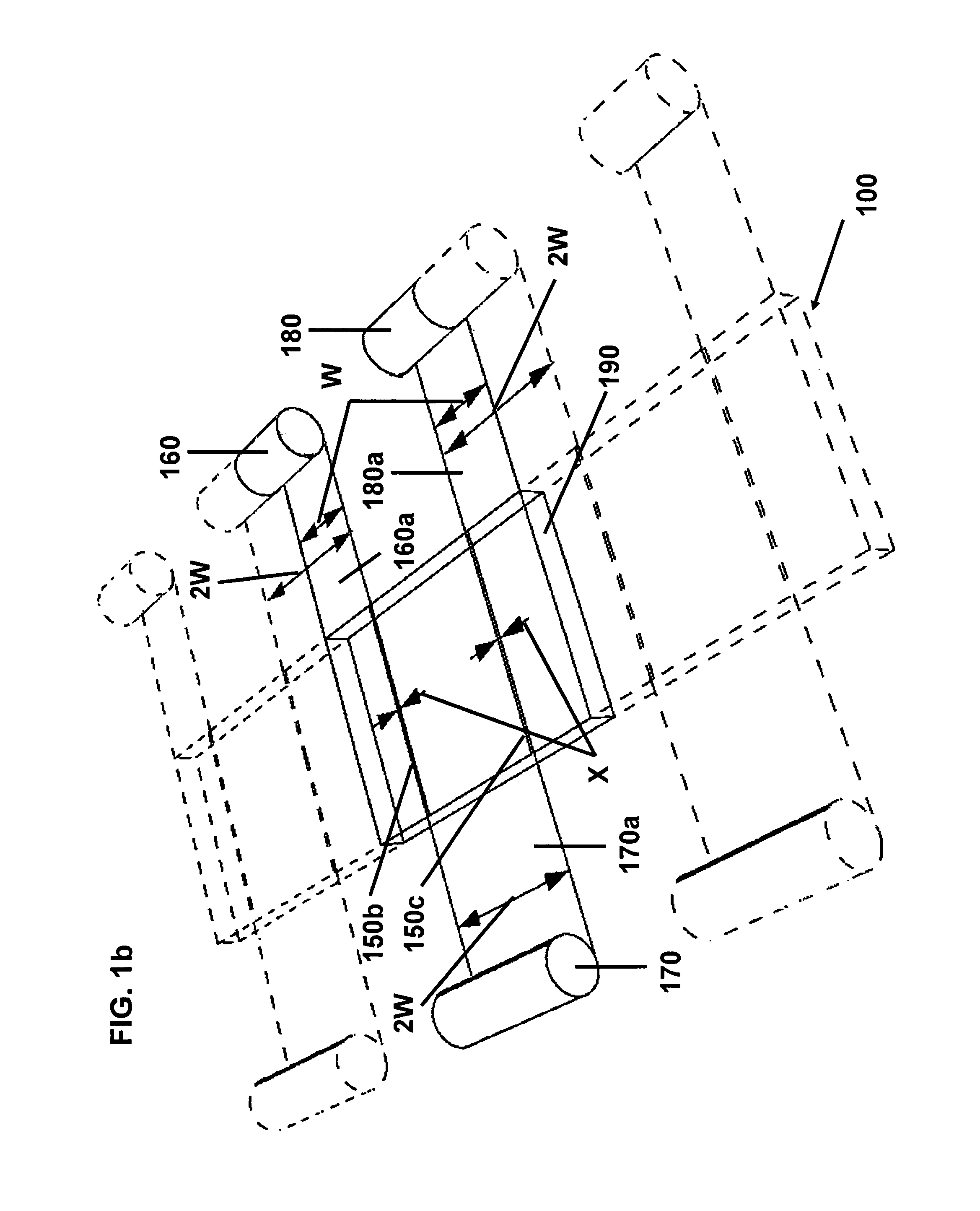Patents
Literature
86 results about "Energy recovery ventilation" patented technology
Efficacy Topic
Property
Owner
Technical Advancement
Application Domain
Technology Topic
Technology Field Word
Patent Country/Region
Patent Type
Patent Status
Application Year
Inventor
Energy recovery ventilation (ERV) is the energy recovery process of exchanging the energy contained in normally exhausted building or space air and using it to treat (precondition) the incoming outdoor ventilation air in residential and commercial HVAC systems. During the warmer seasons, the system pre-cools and dehumidifies while humidifying and pre-heating in the cooler seasons. The benefit of using energy recovery is the ability to meet the ASHRAE ventilation & energy standards, while improving indoor air quality and reducing total HVAC equipment capacity.
Energy Recovery Ventilation Sulfonated Block Copolymer Laminate Membrane
ActiveUS20120073791A1Improved sensible and latent heat exchangeHigh water vapor transport rateEnergy recovery in ventilation and heatingSemi-permeable membranesPolymer scienceEnergy recovery
A core unit for an energy recovery system for exchanging heat and vapor between two independent intake and exhaust airstreams without intermixing thereof, the core unit having a fibrous microporous support substrate and a sulfonated block copolymer having at least one end block A and at least one interior block B wherein each A block contains essentially no sulfonic acid or sulfonate ester functional groups and each B block is a polymer block containing from about 10 to about 100 mol percent sulfonic acid or sulfonate ester functional groups based on the number of monomer units, and wherein the sulfonated block copolymer is laminated on the microporous support substrate
Owner:KRATON POLYMERS US LLC
Heat and energy recovery ventilators and methods of use
InactiveUS20050236150A1Increase heightDomestic cooling apparatusHeating and ventilation casings/coversThermal energyMotor drive
An energy recovery ventilator and method for monitoring and maintaining an environmental condition inside a structure such as a house, building, or dwelling is provided. The ventilator may include a housing having mating halves of a molded polymeric material, first and second chambers disposed within the housing to convey separate first and second streams of air, a heat exchanger configured to intersect the first and second chambers, a first fan to circulate the first air stream through the first chamber, a second fan to circulate the second air stream through the second chamber, and a fan motor driving the first and second fans. The ventilator may also be configured to prevent frost build-up in or on the energy ventilator, to provide efficient cooling, and maintain one or more desired environmental conditions.
Owner:STIRLING TECH INC +1
Flat plate heat and moisture exchanger
ActiveUS20090314480A1Easy to manufactureOperationally efficientFuel cell heat exchangeHeat exchanger casingsHeat and moisture exchangerEnergy recovery
This invention relates in general to air exchange systems and, in particular, to an improved energy recovery ventilator, a cross flow plate core associated therewith and a method of conditioning air for a building. In one aspect, the invention provides a cross flow plate core comprising: a left hand wafer comprising a left hand spacer with a first of a plurality of membranes bonded thereto, the left hand spacer comprising a plurality of parallel curvilinear rails which form channels for receiving a first stream of air; and a right hand wafer comprising a right hand spacer with a second of the plurality of membranes bonded thereto, the right hand spacer comprising a plurality of parallel curvilinear rails which form channels for receiving a second stream of air, wherein the left hand spacer of the left hand wafer is bonded to the top of the membrane of the right hand wafer.
Owner:ZEHNDER VERKAUFS UND VERW
Total room air purification system with air conditioning, filtration and ventilation
ActiveUS7802443B2Easy to installCreate changeEnergy recovery in ventilation and heatingHeat recovery systemsHEPAFiltration
A self-contained air conditioner unit incorporates an energy recovery ventilator portion that brings about several changes of room air per hour with outdoor fresh air. There is an outdoor air intake plenum which furnishes the fresh air and the condenser air for the condenser coil, and a return air plenum. Air from the room return air plenum is HEPA filtered and conducted to the evaporator coil and evaporator fan, and is supplied back into the conditioned space. The energy recovery ventilator has a counterflow heat exchanger core situated between the return air plenum and the fresh air intake plenum, as well as two ventilation fans, one (or both) of which may be of variable or multiple speed. By controlling the fan speeds, it is possible to produce a neutral pressure, a positive or overpressure, or a negative or underpressure in the conditioned space. The unit can be wheeled into place and installed easily by personnel without special training. The unit can be scaled up in size and capacity for a larger room or whole house applications, or scaled down for smaller rooms or window mounting.
Owner:AIR INNOVATIONS
Cross-pleated membrane cartridges, and method and apparatus for making cross-pleated membrane cartridges
ActiveUS20090193974A1High trafficEvenly spacedMechanical working/deformationPaper/cardboard articlesCounter flowWater vapor
A membrane cartridge is manufactured by repeatedly folding and joining two strips of membrane to form a cross-pleated cartridge with a stack of openings or fluid passageways configured in an alternating cross-flow arrangement. The cartridge can be modified for other flow configurations including co-flow and counter-flow arrangements. Methods for manufacturing such cross-pleated membrane cartridges, as well as apparatus used in the manufacturing process are described. Cross-pleated membrane cartridges comprising water-permeable membranes can be used in a variety of applications, including in heat and water vapor exchangers. In particular they can be incorporated into energy recovery ventilators (ERVs) for exchanging heat and water vapor between air streams being directed into and out of buildings.
Owner:CORE ENERGY RECOVERY SOLUTIONS INC
Condensing cycle with energy recovery augmentation
InactiveUS6848261B2Save spaceDomestic cooling apparatusAir-treatment apparatus arrangementsAviationEnergy recovery
A system and method for providing conditioned air to an aircraft cabin. The system combines the benefits of a traditional 4 wheel condensing cycle and dual expansion energy recovery cycles. The energy of a heat load such as aircraft electronic or avionics can be recovered and used in a second turbine while a continuous source of cooling for the heat load is provided for high altitude operation when the first turbine is by-passed. The disclosed invention conditions inlet air using an efficient process that recaptures energy that would otherwise be wasted. Recaptured energy can come from aircraft avionics and from moisture in inlet and cabin air.
Owner:HONEYWELL INT INC
Cross-pleated membrane cartridges, and method and apparatus for making cross-pleated membrane cartridges
ActiveUS8157891B2High trafficEvenly spacedPaper/cardboard articlesDispersed particle filtrationCounter flowWater vapor
A membrane cartridge is manufactured by repeatedly folding and joining two strips of membrane to form a cross-pleated cartridge with a stack of openings or fluid passageways configured in an alternating cross-flow arrangement. The cartridge can be modified for other flow configurations including co-flow and counter-flow arrangements. Methods for manufacturing such cross-pleated membrane cartridges, as well as apparatus used in the manufacturing process are described. Cross-pleated membrane cartridges comprising water-permeable membranes can be used in a variety of applications, including in heat and water vapor exchangers. In particular they can be incorporated into energy recovery ventilators (ERVs) for exchanging heat and water vapor between air streams being directed into and out of buildings.
Owner:CORE ENERGY RECOVERY SOLUTIONS INC
Method of defrosting an energy recovery ventilator unit
InactiveUS20130118188A1Energy recovery in ventilation and heatingMechanical apparatusFrostEngineering
A method of defrosting an energy recovery ventilator unit. The method comprises activating a defrost process of an enthalpy-exchange zone of the energy recovery ventilator unit when an air-flow blockage in the enthalpy-exchange zone coincides with a frost threshold in the ambient environment surrounding the energy recovery ventilator unit. The method also comprises terminating the defrost process, including terminating the defrost process when an operating condition in the vicinity of the enthalpy-exchange zone substantially returns to a pre-frosting operating condition.
Owner:LENNOX IND
Fanless building ventilator
InactiveUS7226497B2Quieter operationMore compact deviceElectrical apparatusLighting and heating apparatusElectricityCorona discharge
A ventilation system for a building is provided. The ventilation system includes a pair of passages between the interior and exterior of the building and at least one corona discharge apparatus for drawing fluid through the passages. The ventilation system may also include an energy recovery ventilator for transferring energy, humidity or the combination of energy and humidity between the fluid flowing through the two passages. Variable flow rates through the passages are provided by varying the voltage to the corona discharge apparatus. In addition, the corona discharge apparatuses may filter the air flowing through the passages.
Owner:RANCO OF DELAWARE
Heat and energy recovery ventilators and methods of use
InactiveUS7841381B2Domestic cooling apparatusHeating and ventilation casings/coversThermal energyFrost
An energy recovery ventilator and method for monitoring and maintaining an environmental condition inside a structure such as a house, building, or dwelling is provided. The ventilator may include a housing having mating halves of a molded polymeric material, first and second chambers disposed within the housing to convey separate first and second streams of air, a heat exchanger configured to intersect the first and second chambers, a first fan to circulate the first air stream through the first chamber, a second fan to circulate the second air stream through the second chamber, and a fan motor driving the first and second fans. The ventilator may also be configured to prevent frost build-up in or on the energy ventilator, to provide efficient cooling, and maintain one or more desired environmental conditions.
Owner:STIRLING TECH INC +1
Method and apparatus for controlling ventilation systems
ActiveUS20100286831A1Increase fan speedReduce fan speedMechanical apparatusLighting and heating apparatusMotor speedAlternating current
An energy recovery ventilation system is described which allows for continuous fan speed control through pulse width modulation of direct current fans. The energy recovery ventilation described is capable of fine motor speed control without the disadvantages of high noise, low efficiency and a fixed number of speeds present in commonly-used speed-varying techniques used with alternating current (AC) fans. This may be accomplished through the use of direct current (DC) fans and pulse width modulation. A controller is used to optimize the ventilation and energy efficiency of the system through the use of several temperature sensors. The energy recovery ventilation also provides a control process for self-optimization of the energy recovery ventilation, in case the supply and exhaust airflows are unequal. An unbalance may be detected by calculating the thermal efficiencies of the exhaust and supply airflows.
Owner:AIR TECH EQUIP
Multilayered structure comprising fine fiber cellulose layer
ActiveUS20150167249A1Increased durabilityKeep for a long timeNon-fibrous pulp additionNatural cellulose pulp/paperFiber diameterCellulose fiber
Provided is a multilayered structure comprising at least one fine cellulose fiber nonwoven fabric layer made of a fine cellulose fiber, wherein the multilayered structure is characterized in that the mean fiber diameter of the fine cellulose fiber forming the fine cellulose fiber non-woven fabric layer is 0.005 to 0.5 μm, and the mean thickness of the multilayered structure is 10 to 200 μm, the density thereof is 0.10 to 0.90 g / cm3, and the permeability resistance thereof is 2000 s / 100 ml or more. Also provided are an energy recovery ventilation sheet made of this multilayered structure, an energy recovery ventilation element using this energy recovery ventilation sheet as a partitioning material for partitioning two types of air flow of different temperature and / or humidity, and a energy recovery ventilator using this energy recovery ventilation element.
Owner:ASAHI KASEI FIBERS CORPORATION
Flat plate heat and moisture exchanger
ActiveUS8235093B2Easy to manufactureInhibit transferFuel cell heat exchangeHeat exchanger casingsHeat and moisture exchangerEnergy recovery
Owner:ZEHNDER VERKAUFS UND VERW
Heat recovery ventilator with defrost
ActiveUS20090133851A1Energy recovery in ventilation and heatingMechanical apparatusInterior spaceAir cycle
A defrost system for a heat recovery ventilator / energy recovery ventilator (HRV / ERV), uses the interior space supply air of an integrated fan coil for defrosting a HRV / ERV core without creating negative pressure in the interior space, which wastes energy, without need of an external fifth port from which to draw defrost air from the interior space, which increases costs, and without re-circulating exhaust air into the interior space. During the defrost cycle, automatically controlled dampers close off the fresh air and exhaust air inputs, and exhaust output, and circulate supply air through the heat exchange core and into to the living space.
Owner:NU AIR VENTILATION SYST
Energy recovery ventilation control system
A control system comprising a temperature sensor, an enthalpy sensor and a processor capable of receiving said temperature and enthalpy signals and further capable of controlling the operation of an energy recovery ventilation wheel based at least in part on said temperature and enthalpy signals.
Owner:AIR DISTRIBUTION TECH IP LLC
Method and apparatus for controlling ventilation systems
ActiveUS8939827B2Increase speedShorten speedMechanical apparatusLighting and heating apparatusMotor speedEnergy recovery ventilation
An energy recovery ventilation system is described which allows for continuous fan speed control through pulse width modulation of direct current fans. The energy recovery ventilation described is capable of fine motor speed control without the disadvantages of high noise, low efficiency and a fixed number of speeds present in commonly-used speed-varying techniques used with alternating current (AC) fans. This may be accomplished through the use of direct current (DC) fans and pulse width modulation. A controller is used to optimize the ventilation and energy efficiency of the system through the use of several temperature sensors. The energy recovery ventilation also provides a control process for self-optimization of the energy recovery ventilation, in case the supply and exhaust airflows are unequal. An unbalance may be detected by calculating the thermal efficiencies of the exhaust and supply airflows.
Owner:AIR TECH EQUIP
Energy recovery ventilation smoke evacuation
A control system, comprising one or more smoke sensors, each configured to measure a level of smoke at a location within a building and to output a smoke level signal based at least in part upon the measured level of smoke. A controller configured to receive the smoke level signals and to control an operation of one or more energy recovery ventilation systems in a first mode of operation to recover energy when the smoke level signal is below a predetermined value and in a second mode of operation to evacuate smoke when the smoke level signal is above the predetermined value.
Owner:AIR DISTRIBUTION TECH IP LLC
Fanless building ventilator
InactiveUS20060114637A1Quieter operationReduce operating costsElectrical apparatusLighting and heating apparatusCorona dischargeEngineering
A ventilation system for a building is provided. The ventilation system includes a pair of passages between the interior and exterior of the building and at least one corona discharge apparatus for drawing fluid through the passages. The ventilation system may also include an energy recovery ventilator for transferring energy, humidity or the combination of energy and humidity between the fluid flowing through the two passages. Variable flow rates through the passages are provided by varying the voltage to the corona discharge apparatus. In addition, the corona discharge apparatuses may filter the air flowing through the passages.
Owner:RANCO OF DELAWARE
Energy Recovery Ventilator With Reduced Power Consumption
ActiveUS20130225060A1Reduce power consumptionEnergy recovery in ventilation and heatingDucting arrangementsMotor driveEnergy recovery
An air conditioning unit includes a passage having a heat exchanger; a blower for blowing air through the passage; a blower motor driving the blower in response to a drive signal; an energy recovery ventilator (ERV), the blower drawing outside air from the ERV; and a controller for adjusting the drive signal in a ventilation mode to reduce power used by the blower motor.
Owner:CARRIER CORP
ERV global pressure demand control ventilation mode
An energy recovery ventilator includes first and second blowers, a pressure transducer and a controller. The first blower is configured to direct a first air stream into a first zone of an enclosure. A second blower configured to direct a second air stream into a second zone of the enclosure. A pressure transducer is configured to determine internal air pressure within the enclosure. A controller is configured to control the first blower and / or the second blower in response to the internal air pressure.
Owner:LENNOX IND
Heat or energy recovery housing and sealing system
InactiveUS20110155343A1Easily brokenMinimal costEnergy recovery in ventilation and heatingEngine sealsThermal energyHermetic seal
A heat and energy recovery ventilator housing comprising at least one means for releasable sealing engagement of the at least one energy core to the housing and for providing an air tight seal between the at least one energy core and an interior of the housing, said sealing means positioned to prevent a leakage between the supply airflow and the exhaust airflow, is described. A sealing system comprising a gasket having a sealing surface and a rail having contact surface, said gasket attachable to an interior of the ventilator housing and said rail attachable to the core at a location in alignment with the gasket, the gasket and the rail, when positioned in alignment, magnetically cooperating thereby forming an airtight seal for preventing an air leakage between the supply airflow and the return airflow within the housing but outside of the core is also described. The ventilator housing and sealing system allows for the easy insertion and removal of a heat or energy recovery ventilator core while maintaining an airtight seal when the core is in place.
Owner:AIR TECH EQUIP
Heat recovery ventilator with defrost
ActiveUS7942193B2Energy recovery in ventilation and heatingMechanical apparatusInterior spaceAir cycle
A defrost system for a heat recovery ventilator / energy recovery ventilator (HRV / ERV), uses the interior space supply air of an integrated fan coil for defrosting a HRV / ERV core without creating negative pressure in the interior space, which wastes energy, without need of an external fifth port from which to draw defrost air from the interior space, which increases costs, and without re-circulating exhaust air into the interior space. During the defrost cycle, automatically controlled dampers close off the fresh air and exhaust air inputs, and exhaust output, and circulate supply air through the heat exchange core and into to the living space.
Owner:NU AIR VENTILATION SYST
Energy recovery ventilation sulfonated block copolymer laminate membrane
ActiveUS9429366B2Improved sensible and latent heat exchangeHigh water vapor transport rateSpace heating and ventilation detailsStationary tubular conduit assembliesPolymer scienceEnergy recovery
A core unit for an energy recovery system for exchanging heat and vapor between two independent intake and exhaust airstreams without intermixing thereof, the core unit having a fibrous microporous support substrate and a sulfonated block copolymer having at least one end block A and at least one interior block B wherein each A block contains essentially no sulfonic acid or sulfonate ester functional groups and each B block is a polymer block containing from about 10 to about 100 mol percent sulfonic acid or sulfonate ester functional groups based on the number of monomer units, and wherein the sulfonated block copolymer is laminated on the microporous support substrate.
Owner:KRATON POLYMERS US LLC
Energy recovery regulation system and energy recovery regulation method for new energy vehicles
ActiveCN104442431ASmooth and comfortable drivingElectrodynamic brake systemsVehicular energy storageNew energyEnergy recovery
The invention discloses an energy recovery regulation system and an energy recovery regulation method for new energy vehicles. The system comprises an energy recovery adjusting device (10), a vehicle control unit (20), a motor controller (30) and a battery management system (40); the energy recovery adjusting device (10) is used for setting energy recovery regulation proportions; the vehicle control unit (20) is used for monitoring and collecting accelerator pedal singles, brake pedal signals and pressure signals of a current speed V and a brake master cylinder, calculating feedback torque and correcting the feedback torque according to the set energy recovery regulation proportions; the motor controller (30) is used for receiving control commands sent by the vehicle control unit (20) and controlling operation of a motor; the battery management system (40) is used for collecting electrical charge values of batteries and managing charging and discharging of the batteries. The energy recovery regulation system and the energy recovery regulation method have the advantages that drivers can adjust the energy recovery proportions according to their habits and road conditions, so that both effective energy recovery and comfort in driving can be achieved.
Owner:BEIQI FOTON MOTOR CO LTD
Erv global pressure demand contol ventilation mode
ActiveUS20130090051A1Energy recovery in ventilation and heatingMechanical apparatusTransducerEngineering
An energy recovery ventilator includes first and second blowers, a pressure transducer and a controller. The first blower is configured to direct a first air stream into a first zone of an enclosure. A second blower configured to direct a second air stream into a second zone of the enclosure. A pressure transducer is configured to determine internal air pressure within the enclosure. A controller is configured to control the first blower and / or the second blower in response to the internal air pressure.
Owner:LENNOX IND
Integrated Heat And Energy Recovery Ventilator System
ActiveUS20190063780A1Minimize potential contaminantEasy to integrateEnergy recovery in ventilation and heatingMechanical apparatusThermal energyControl system
A heat recovery ventilator (HRV) and / or energy recovery ventilator (ERV) that integrates with a residential capacity air handling unit (AHU) is embodied in a small footprint HRV or ERV unit that connects directly to the return side of an AHU and to outdoor air inlet and exhaust ducts. The ventilator includes a control system incorporating a processor and sensors that control the operation of the system to provide desired ventilation flow rates under varying conditions.
Owner:STEVEN WINTER ASSOCS
Multiple Opening Counter-flow Plate Exchanger and Method of Making
InactiveUS20130248160A1Improve sealing propertiesShorten construction timeMetal-working apparatusStationary tubular conduit assembliesCounter flowWater vapor
A multiple opening, counter-flow plate type exchanger is manufactured by repeatedly folding and joining one strip of membrane to form a core composed of a multitude of membrane layers with a plurality of inlet and outlet openings or fluid passageways configured in an alternating counter-flow arrangement. Methods for manufacturing such multiple opening cores are described. An integrated, modular, and stackable plastic manifold that is formed by ultrasonically welding plastic sheet stock is described. Multiple opening cores comprising water-permeable membranes can be used in a variety of applications, including heat and water vapor exchangers. In particular, they can be incorporated into energy recovery ventilators (ERVs) for exchanging heat and water vapor between air streams directed into and out of buildings, automobiles, or other Industrial processes.
Owner:ENERGY WALL
High efficiency ventilation system
ActiveUS20150135755A1Easy transferImprove efficiencyEnergy recovery in ventilation and heatingHeat recovery systemsEnergy recoveryProcess engineering
A high efficiency ventilation system may include a partition configured to separate a supply air stream and a return air stream, an energy recovery ventilator, a heat recovery ventilator, a refrigerant flow controlling condensing unit, and a direct expansion coil. The refrigerant flow controlling condensing unit may be configured to send a refrigerant to the direct expansion coil and configured to receive a refrigerant from the direct expansion coil. The direct expansion coil may be disposed between the energy recovery ventilator and the heat recovery ventilator. The high efficiency ventilation system may be configured to supply ventilation air to a controlled environment at a particular temperature and a particular humidity.
Owner:LEADER INVESTMENTS LLC
Energy recovery ventilator
ActiveUS10041743B2Minimizes ingestionAvoid flowEnergy recovery in ventilation and heatingRecuperative heat exchangersFresh airEngineering
An energy recovery system includes a heating or cooling system and an energy recovery ventilator operably connected to a component of the heating or cooling system. The energy recovery ventilator includes a supply port extending into the component to provide a supply of fresh airflow from the energy recovery ventilator to the component for use by the component. A return port extends into the component configured to receive a flow of stale air from the component while minimizing ingestion of the fresh air flow from the component into the return port. A method of operating an energy recovery system includes flowing a flow of fresh air from an energy recovery ventilator through a supply port into a component of a heating or cooling system. Stale air is flowed from the component through a return port into the energy recovery ventilator.
Owner:CARRIER CORP
Counter-flow membrane plate exchanger and method of making
ActiveUS9562726B1Improve sealing propertiesShorten construction timeRecuperative heat exchangersHeat exchange apparatusCounter flowWater vapor
A counter-flow plate type exchanger is manufactured by repeatedly folding and joining at least two strips of membrane to form a counter-pleated core with a stack of openings or fluid passageways configured in an alternating counter-flow arrangement. Methods for manufacturing such counter-pleated cores are described. Counter-pleated cores comprising water-permeable membranes can be used in a variety of applications, including heat and water vapor exchangers. In particular, they can be incorporated into energy recovery ventilators (ERVs) for exchanging heat and water vapor between air streams directed into and out of buildings, automobiles, or other Industrial processes.
Owner:ENERGY WALL
Features
- R&D
- Intellectual Property
- Life Sciences
- Materials
- Tech Scout
Why Patsnap Eureka
- Unparalleled Data Quality
- Higher Quality Content
- 60% Fewer Hallucinations
Social media
Patsnap Eureka Blog
Learn More Browse by: Latest US Patents, China's latest patents, Technical Efficacy Thesaurus, Application Domain, Technology Topic, Popular Technical Reports.
© 2025 PatSnap. All rights reserved.Legal|Privacy policy|Modern Slavery Act Transparency Statement|Sitemap|About US| Contact US: help@patsnap.com
